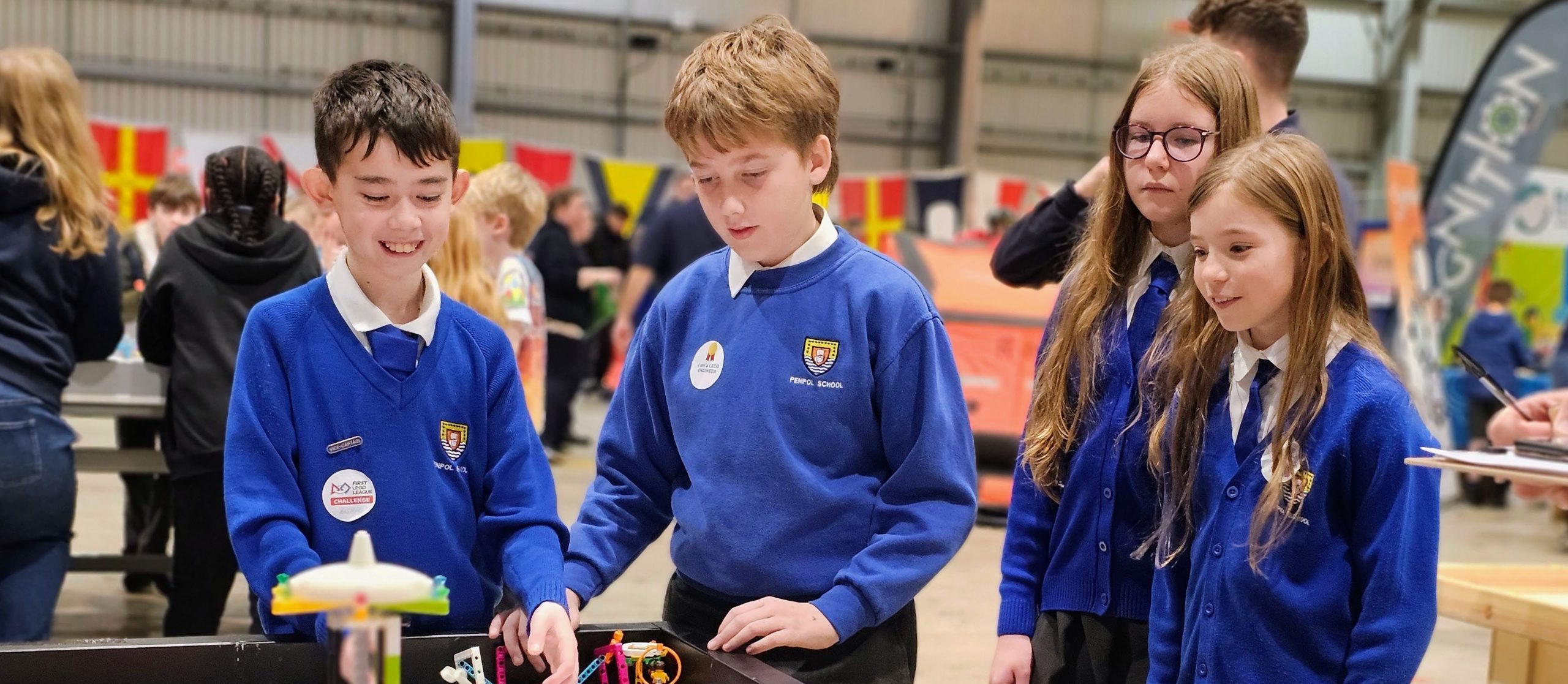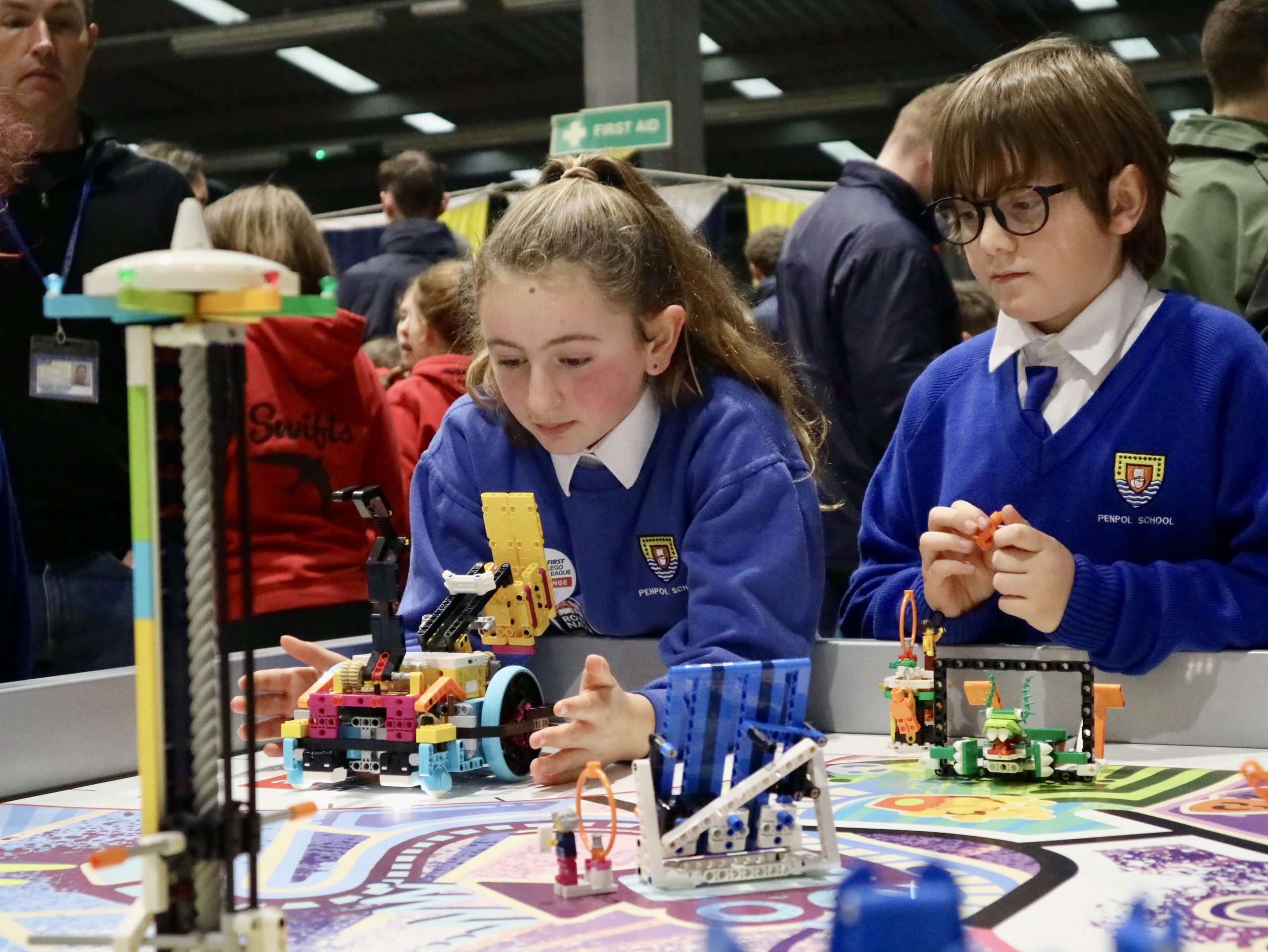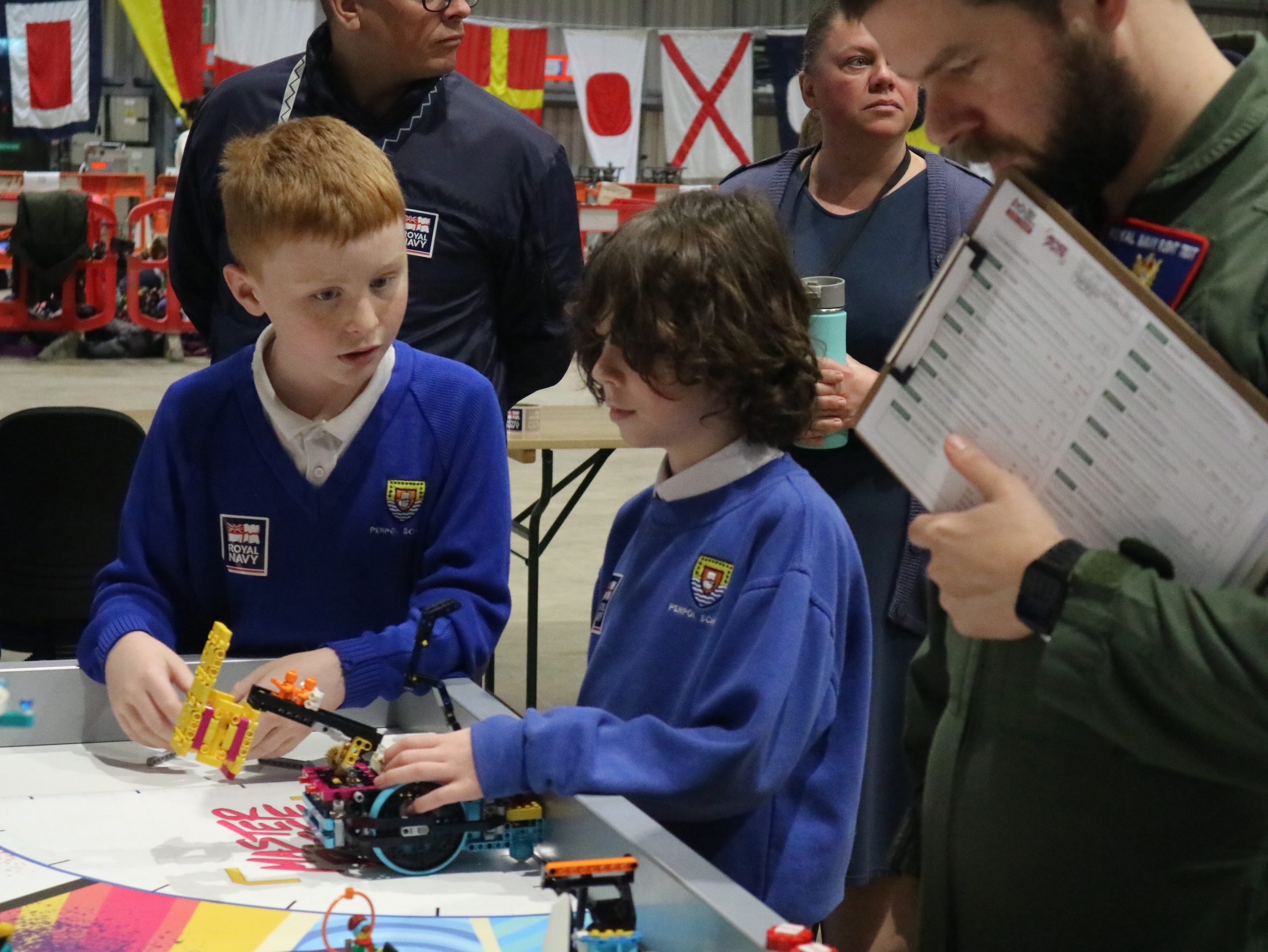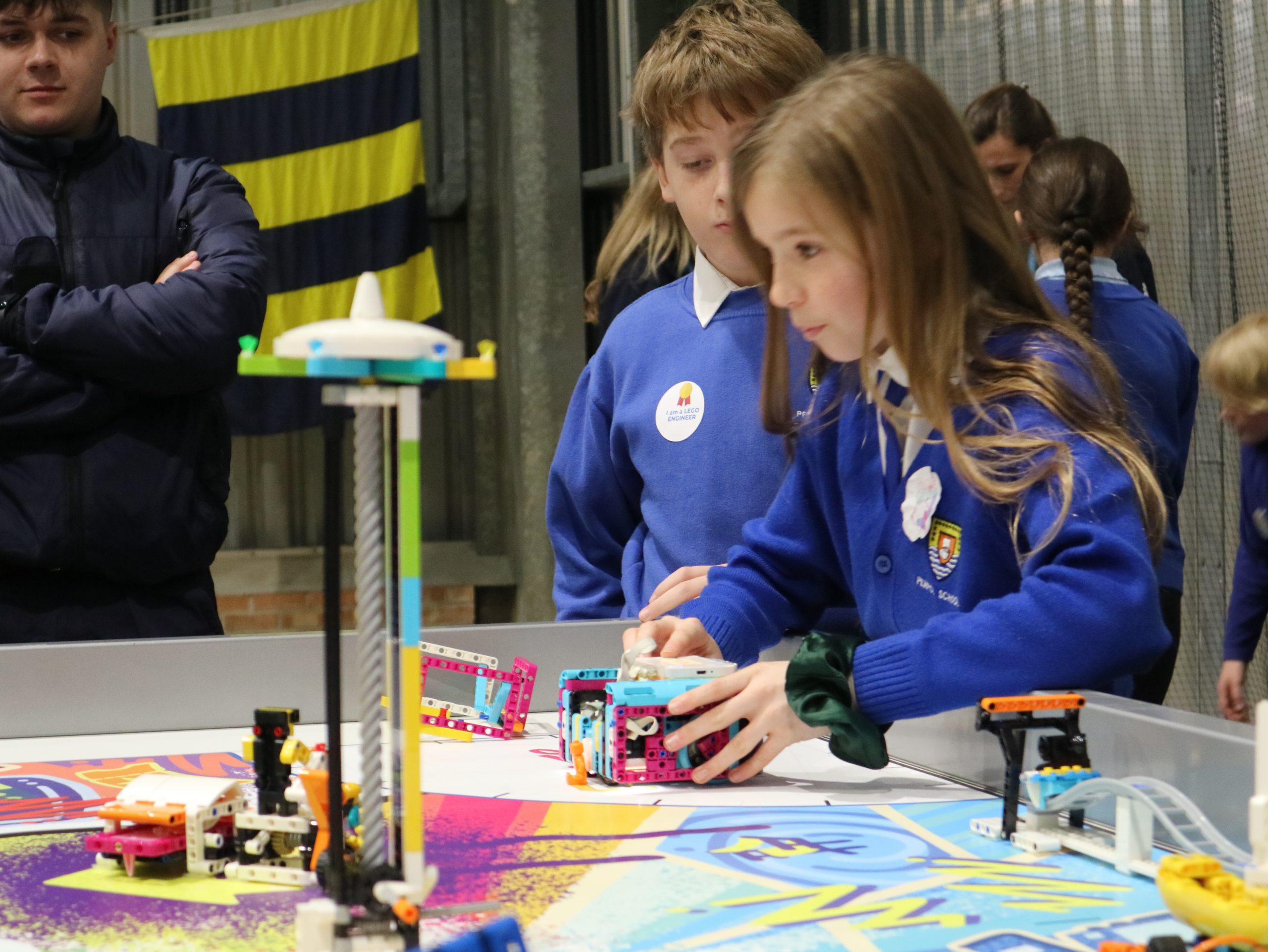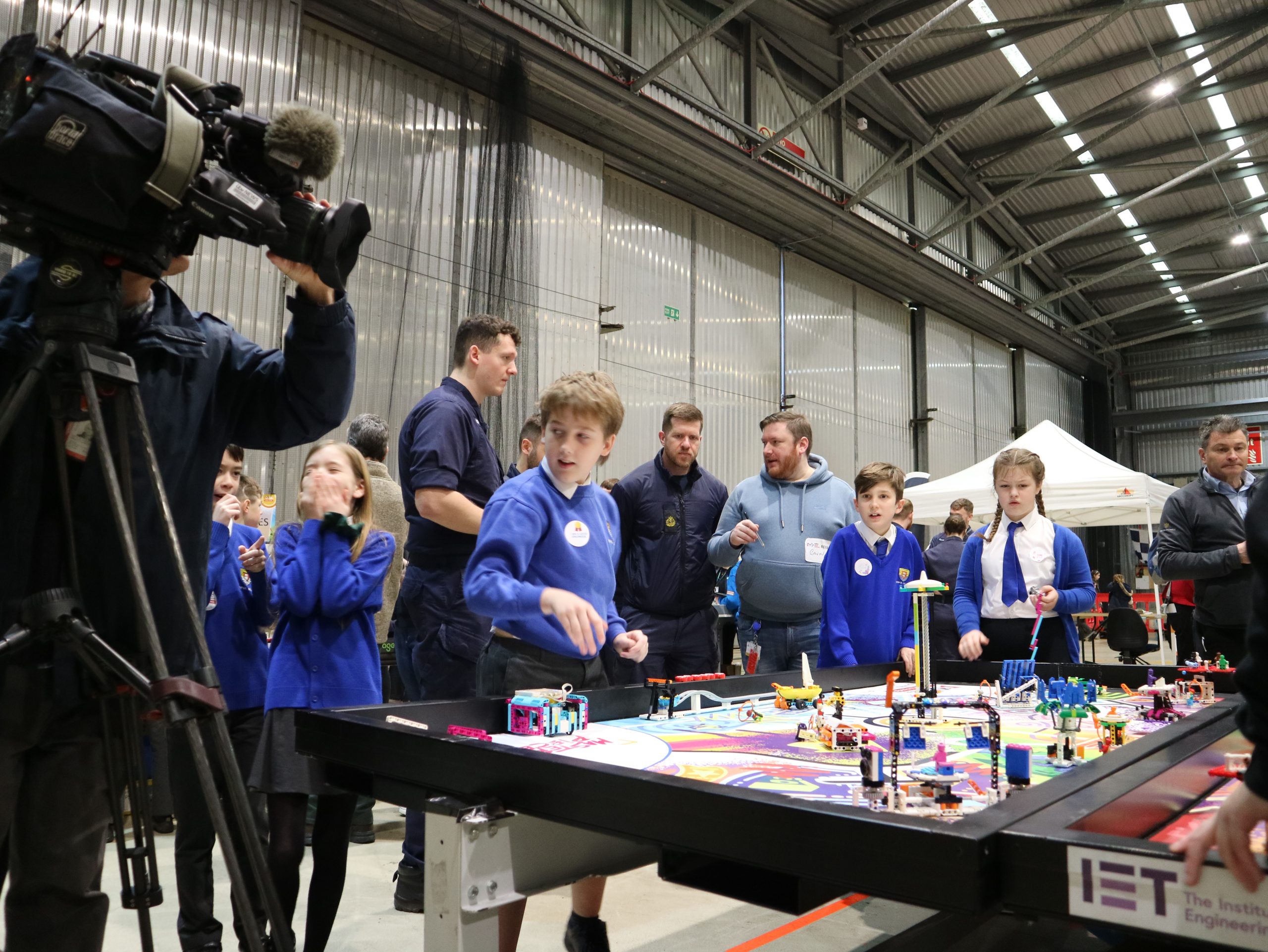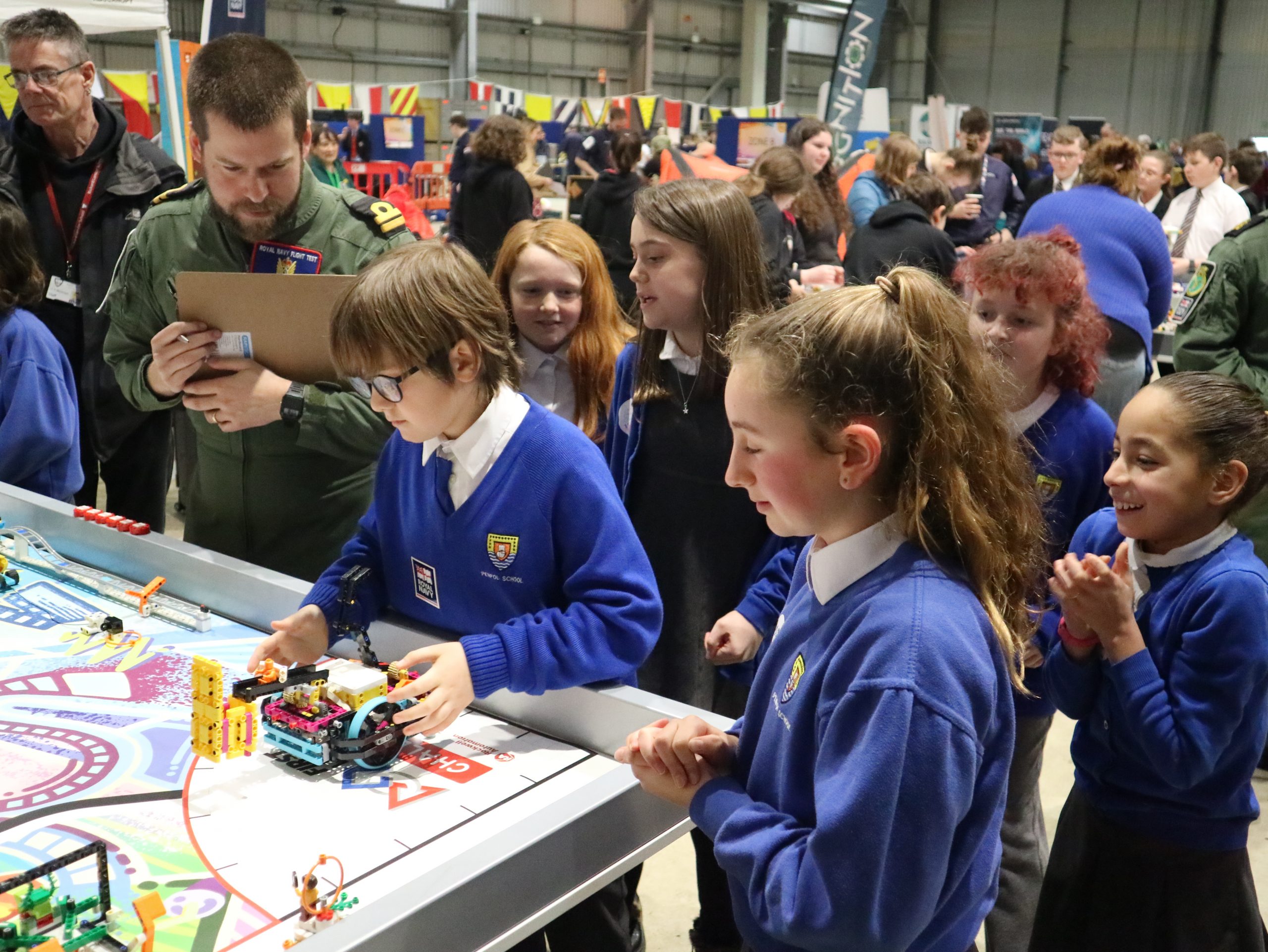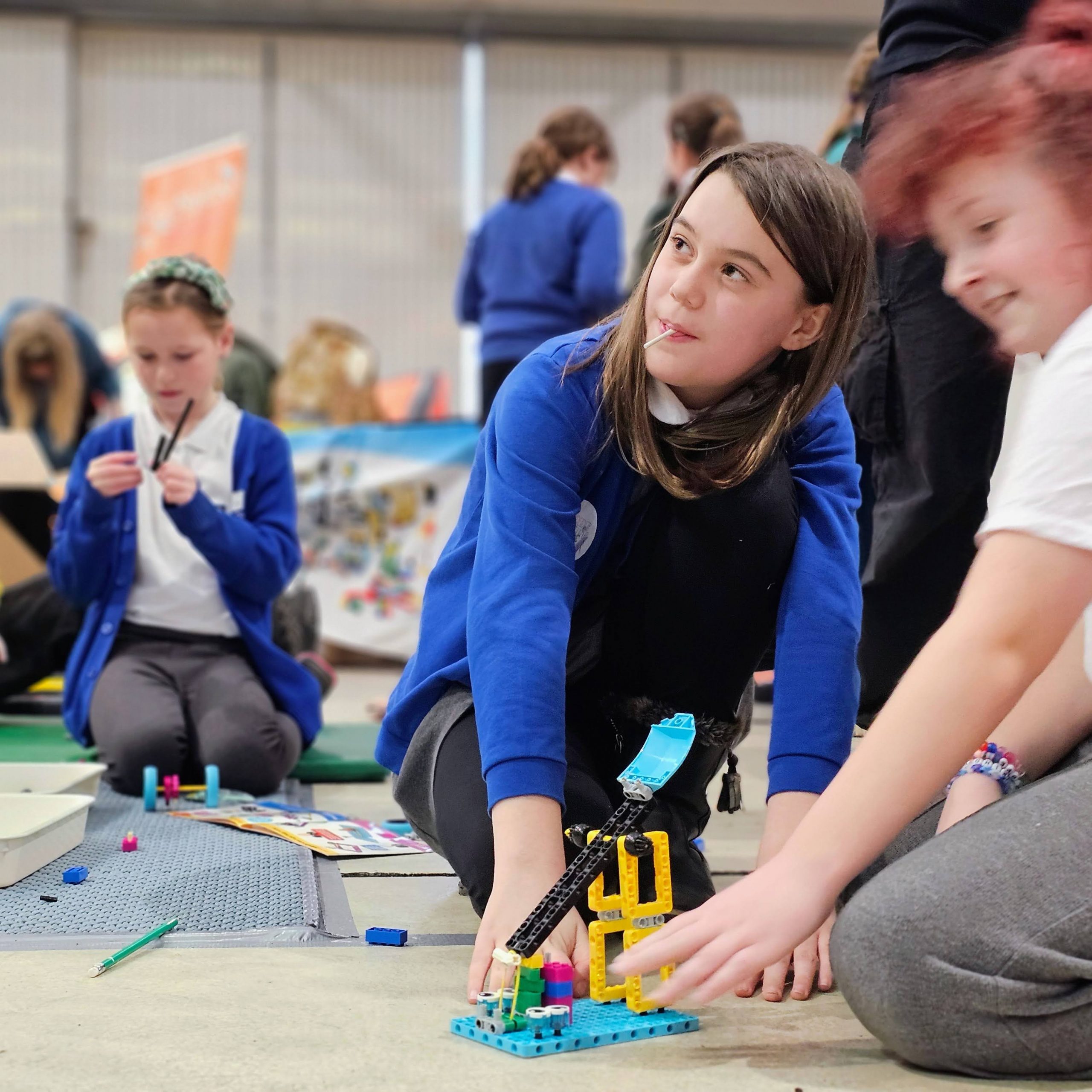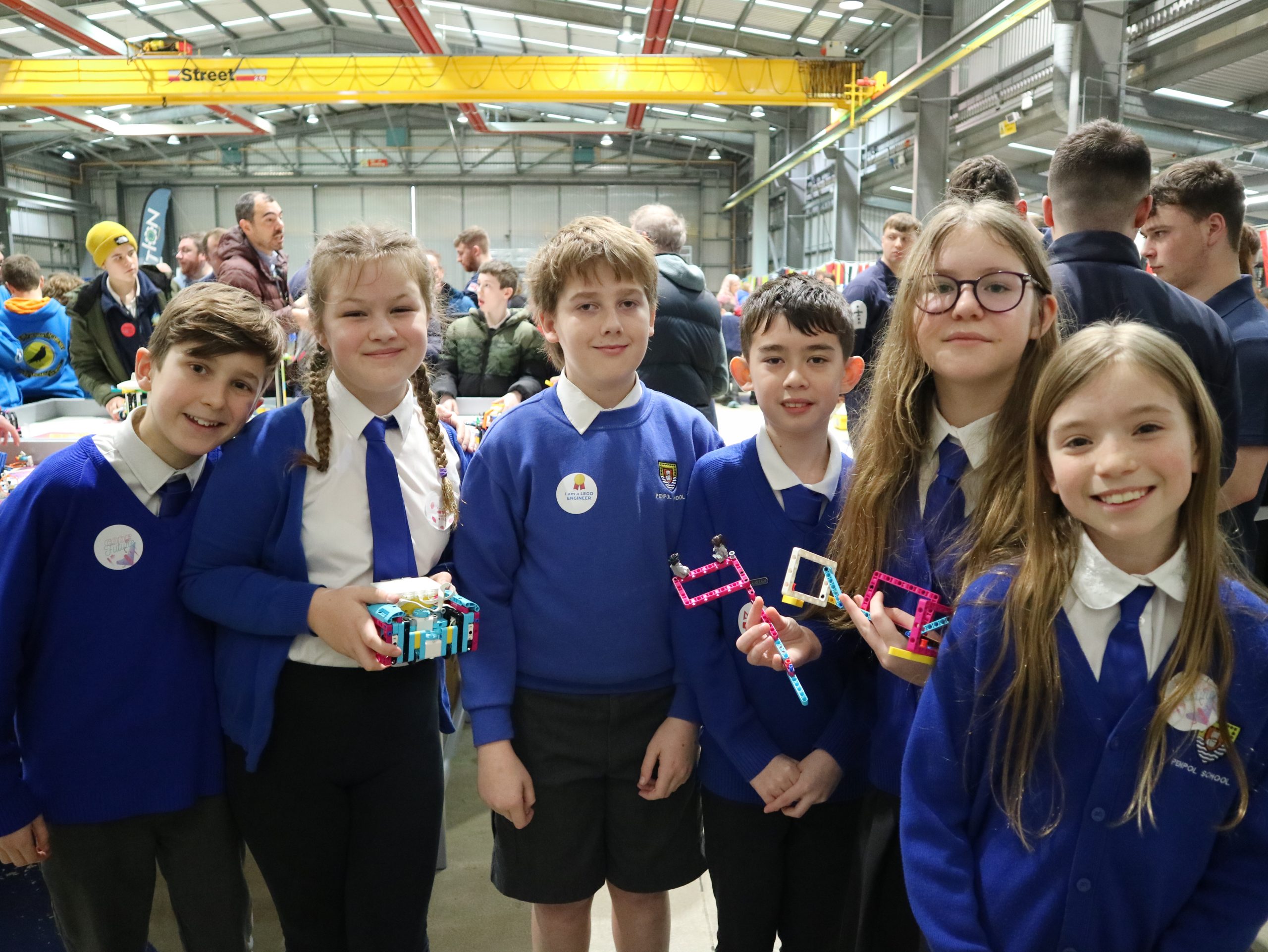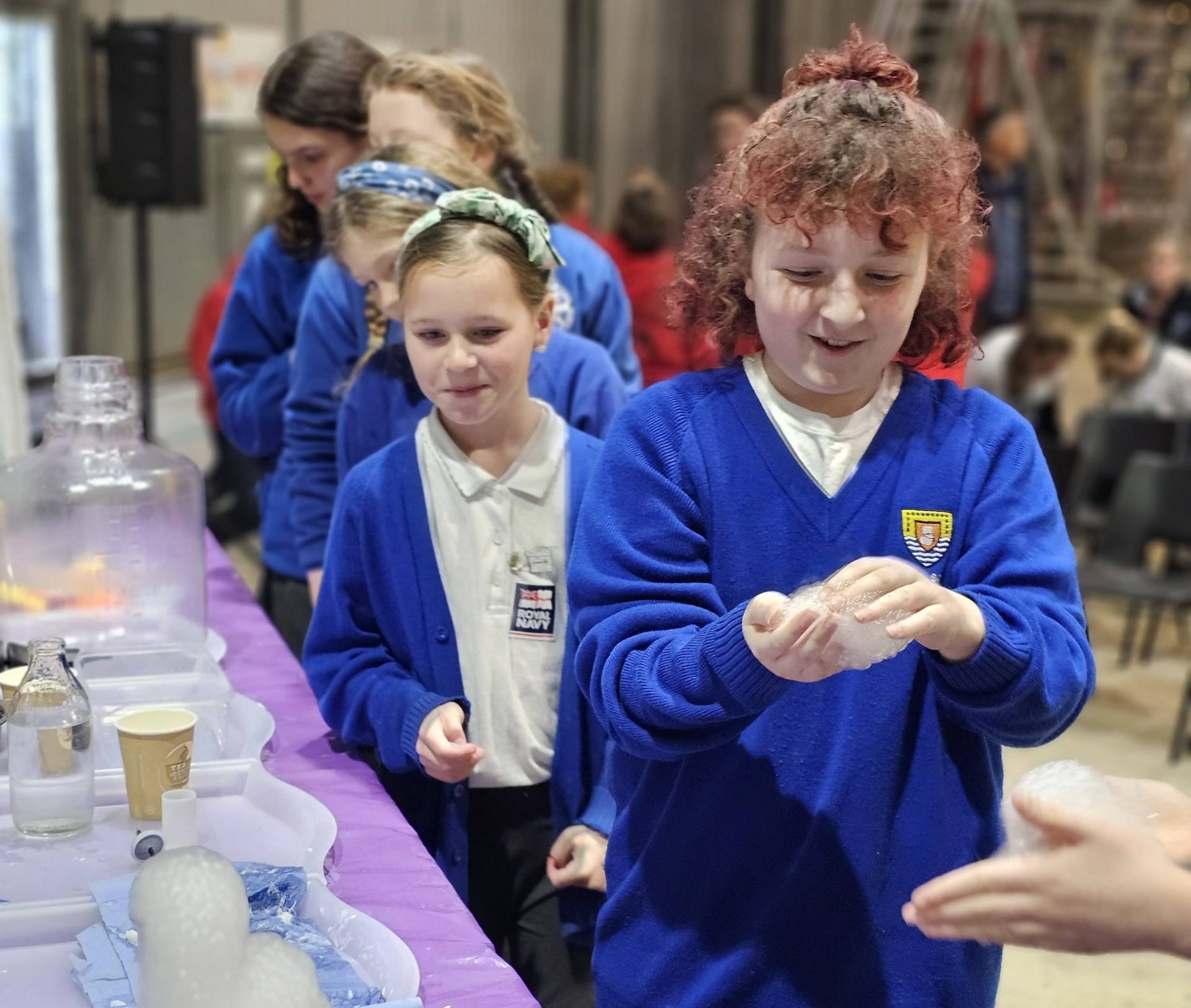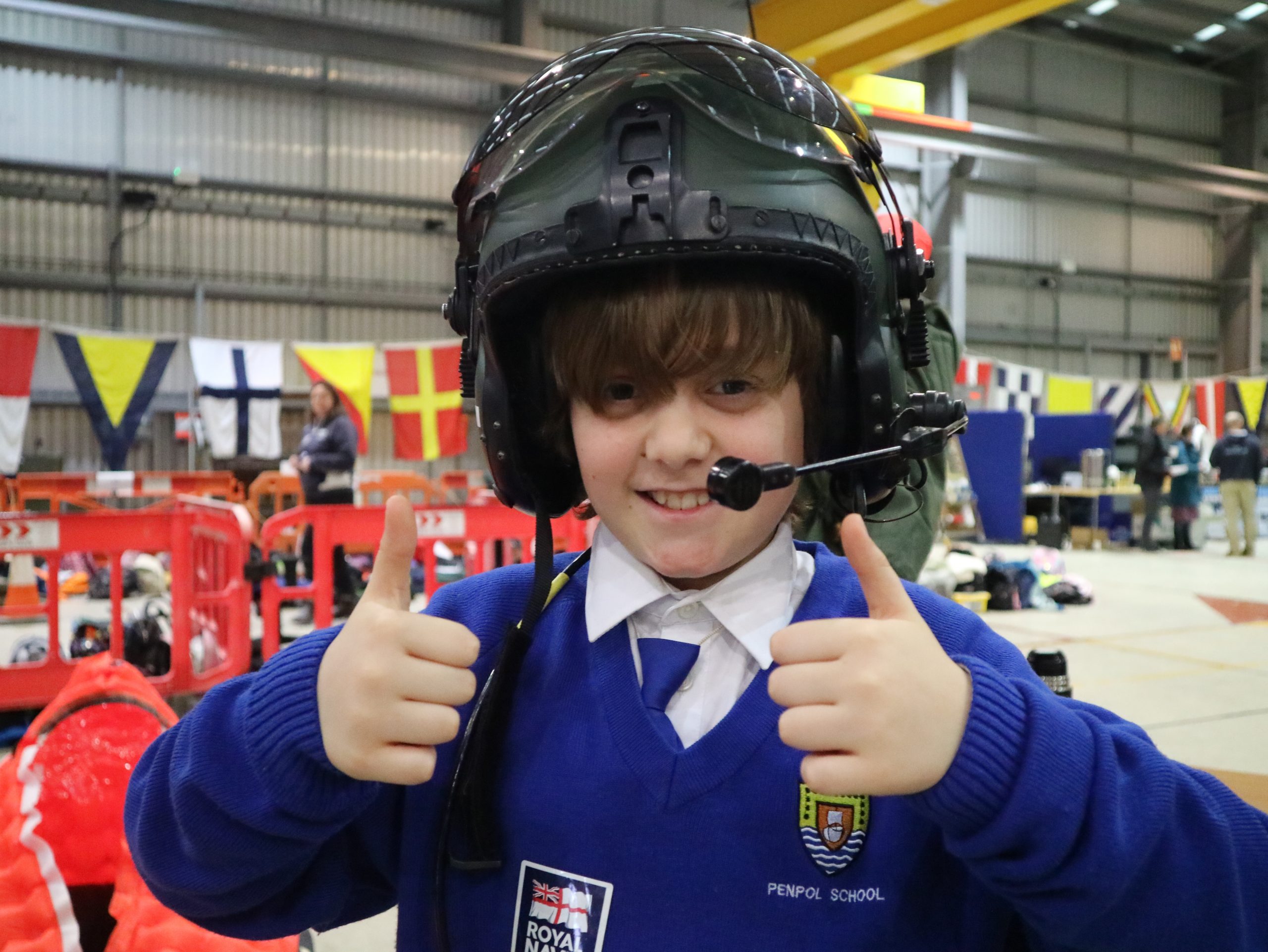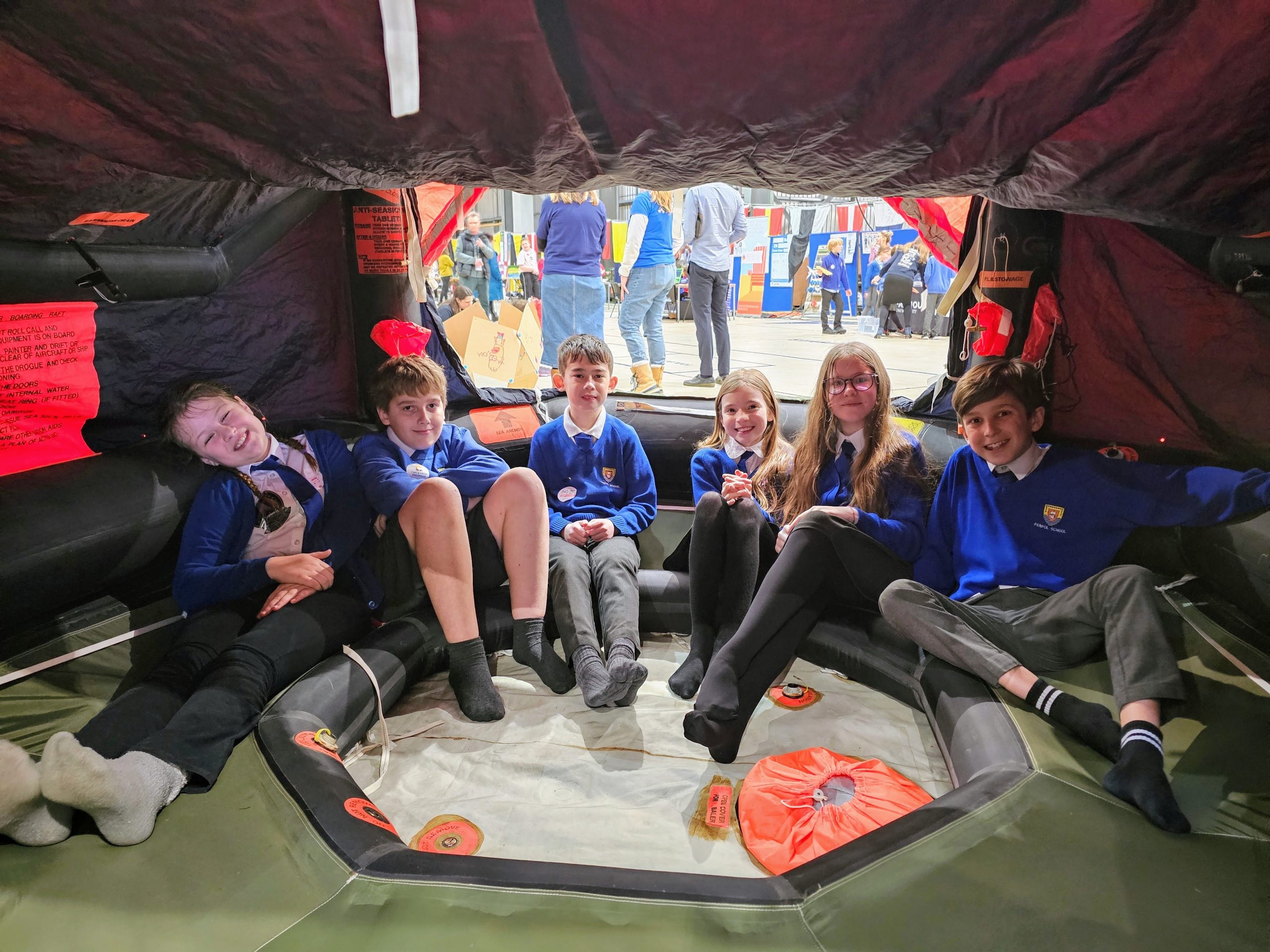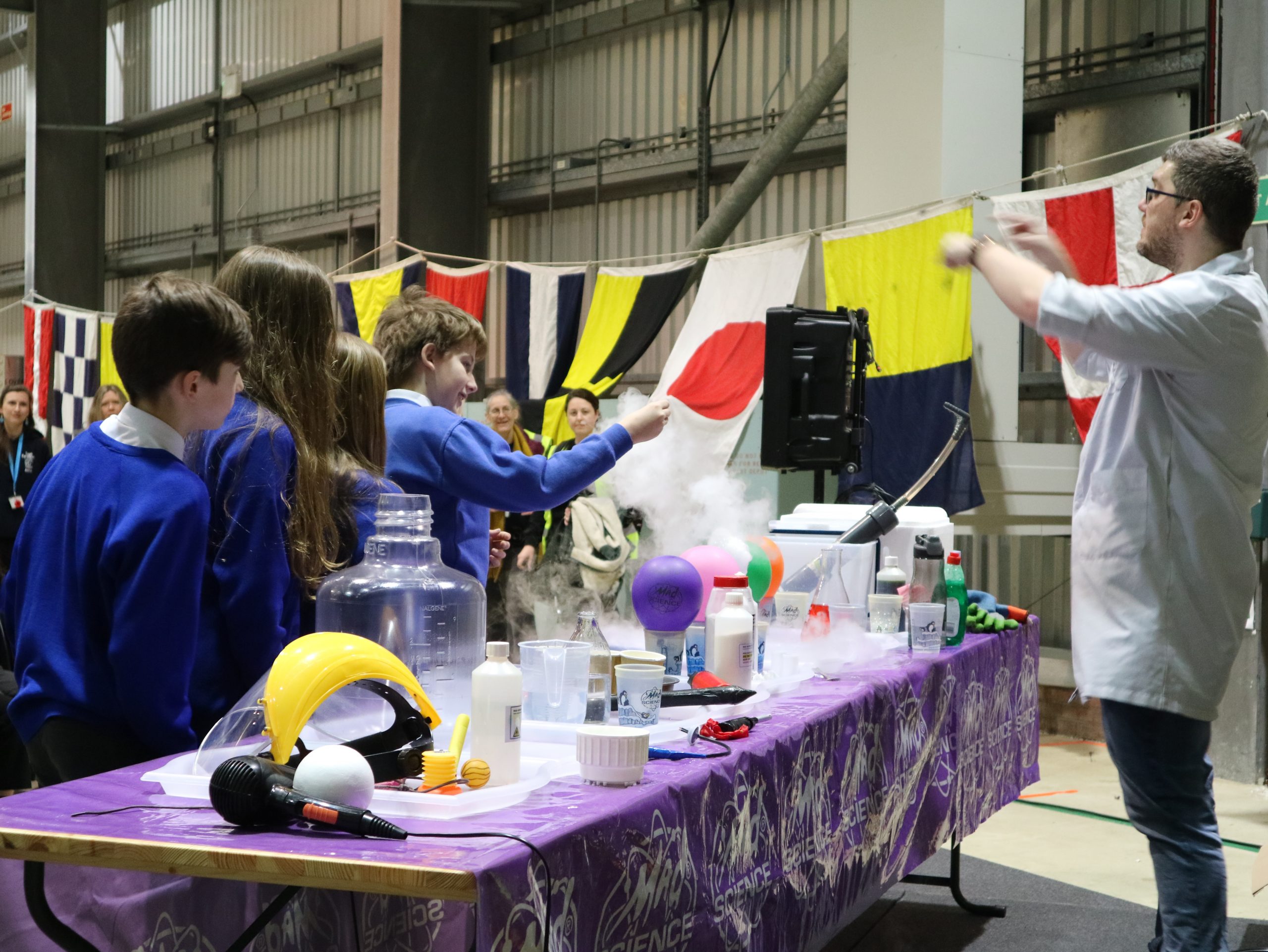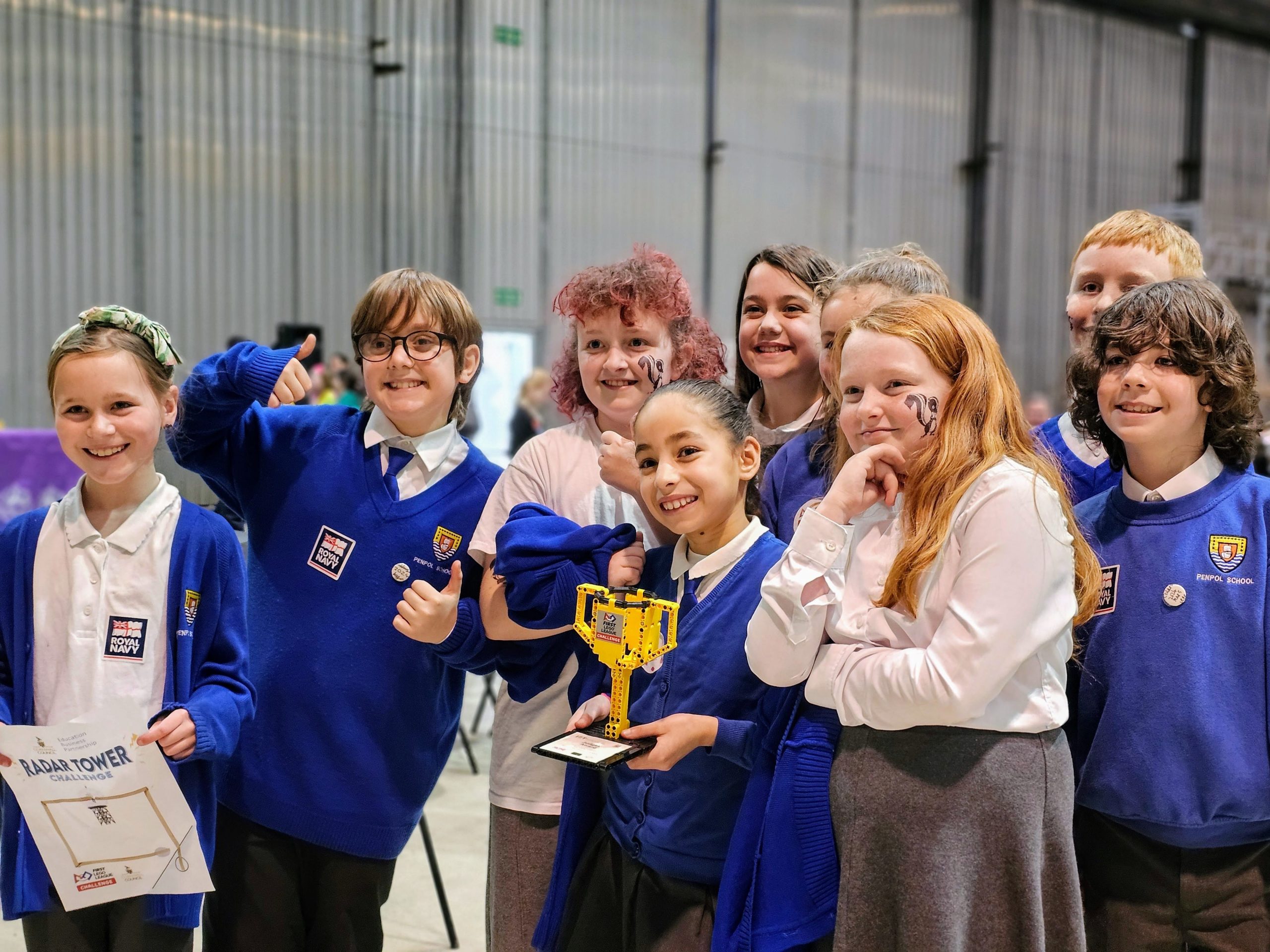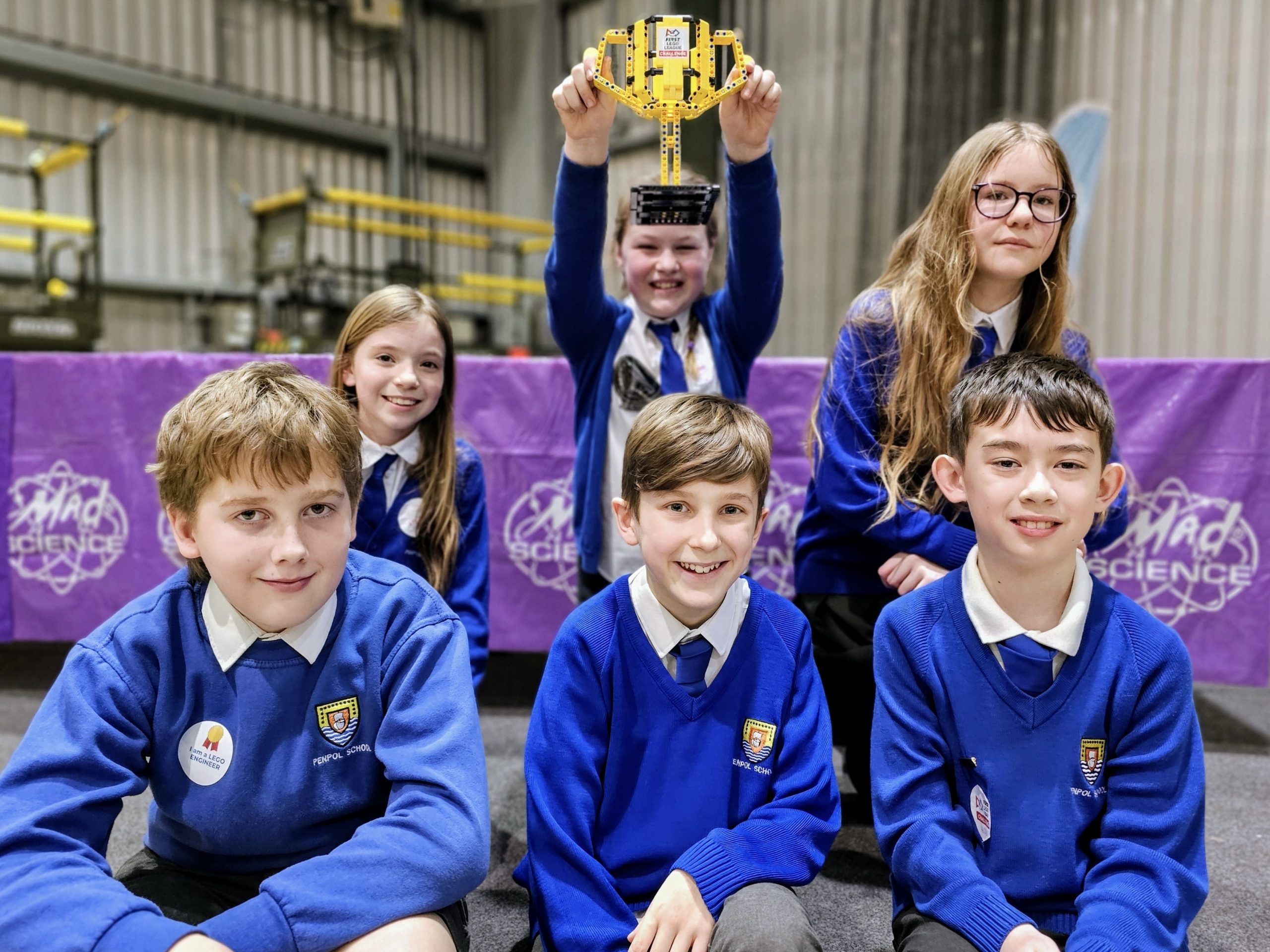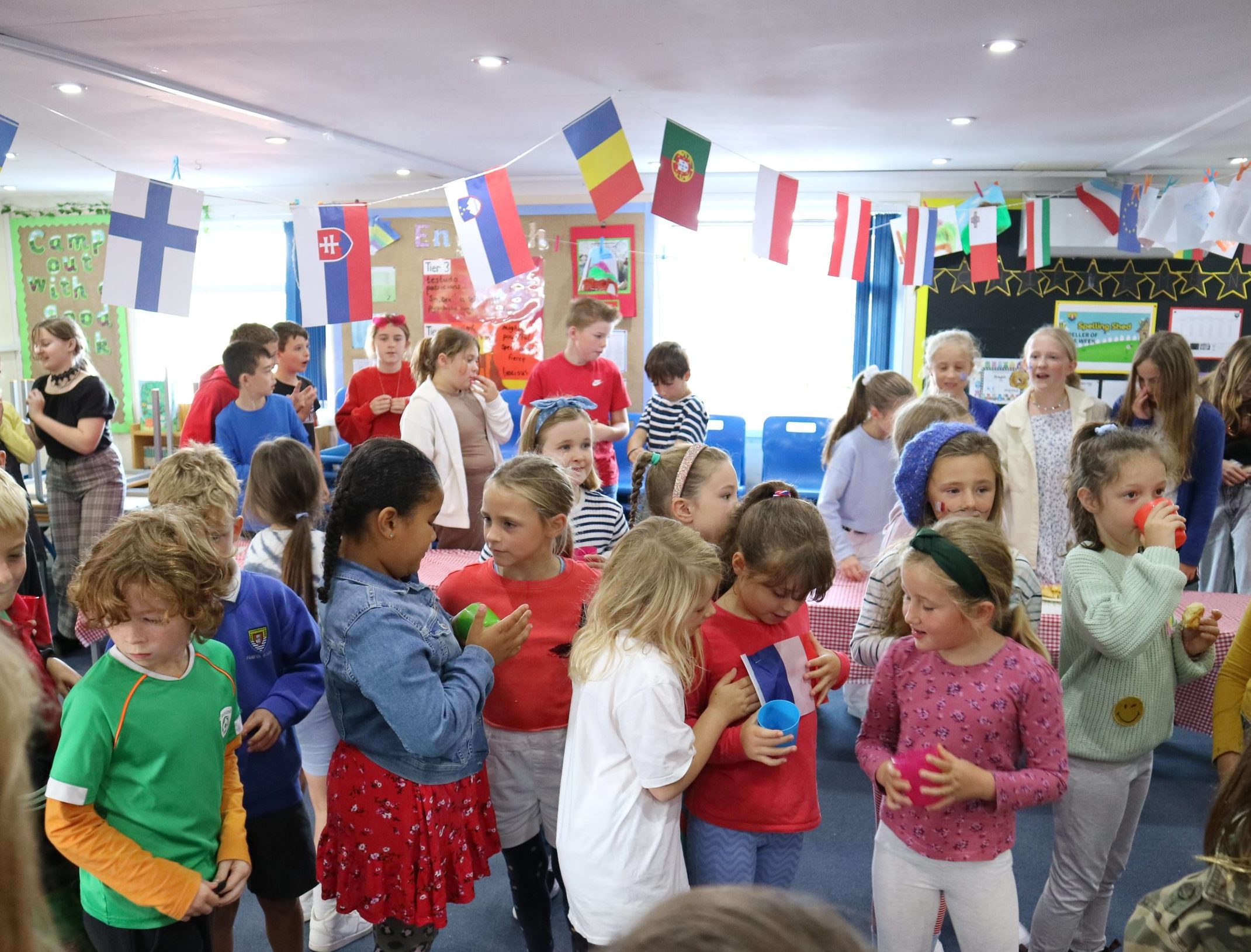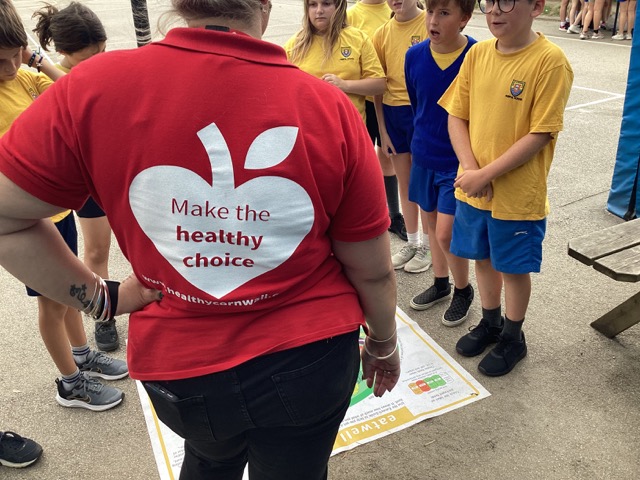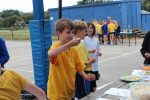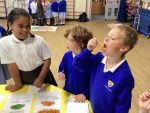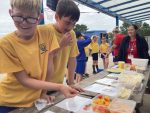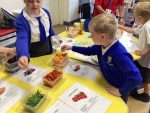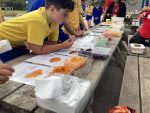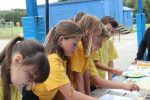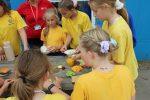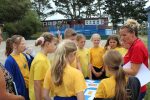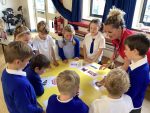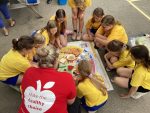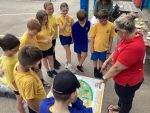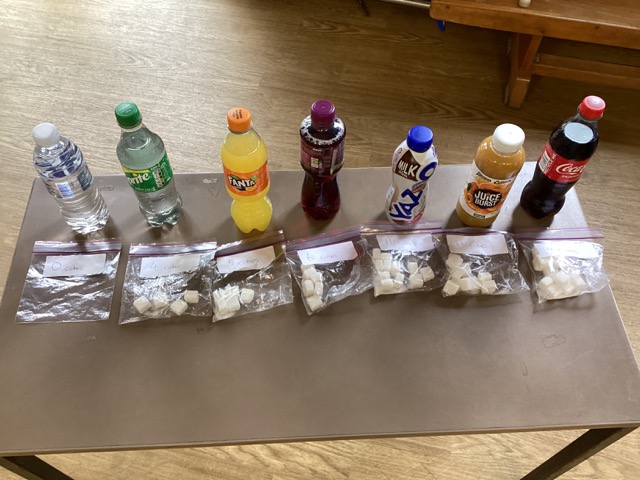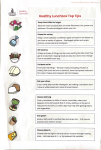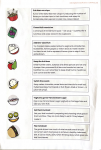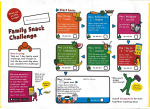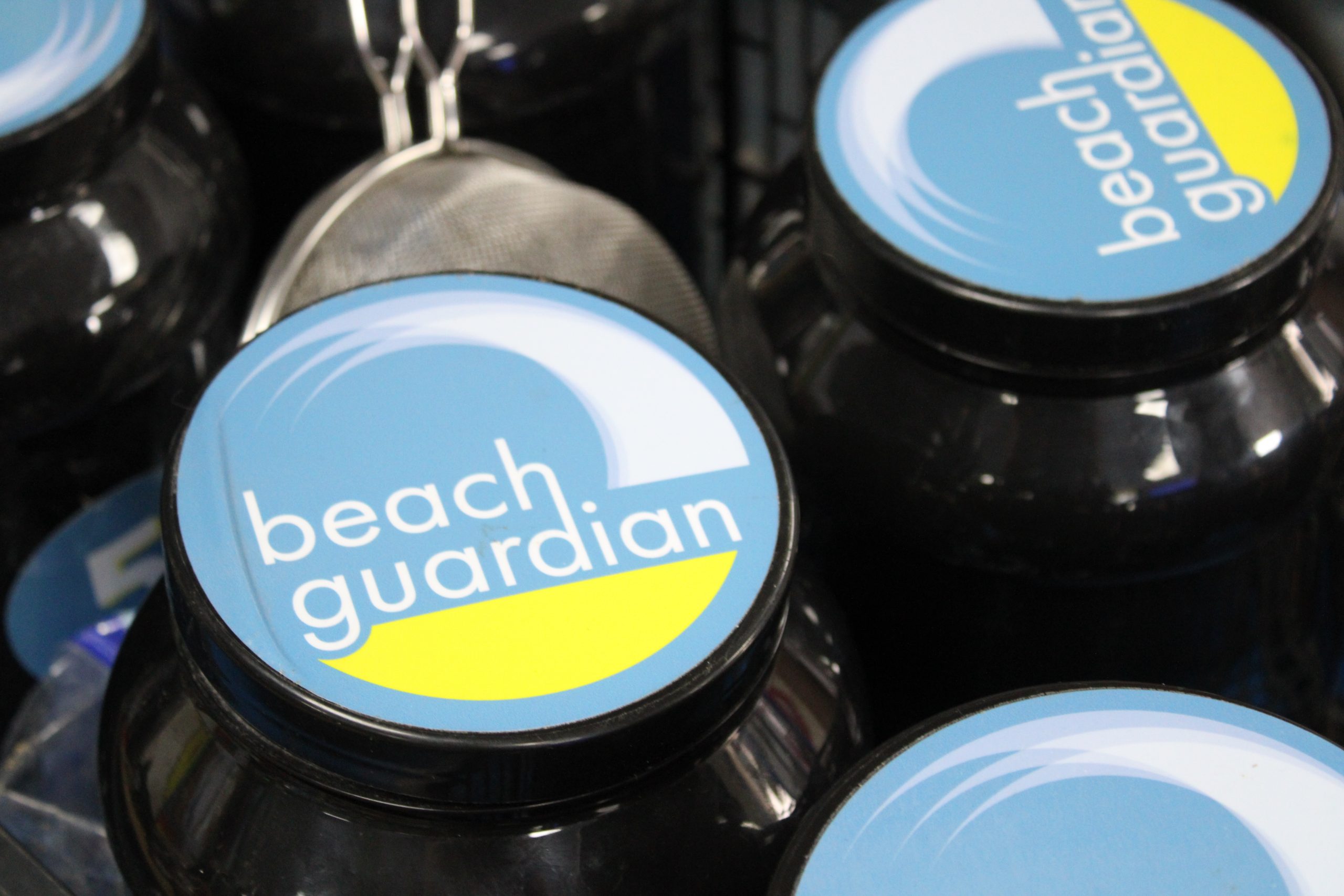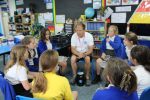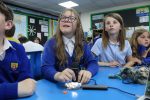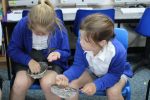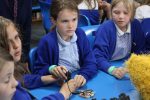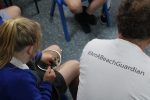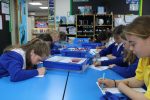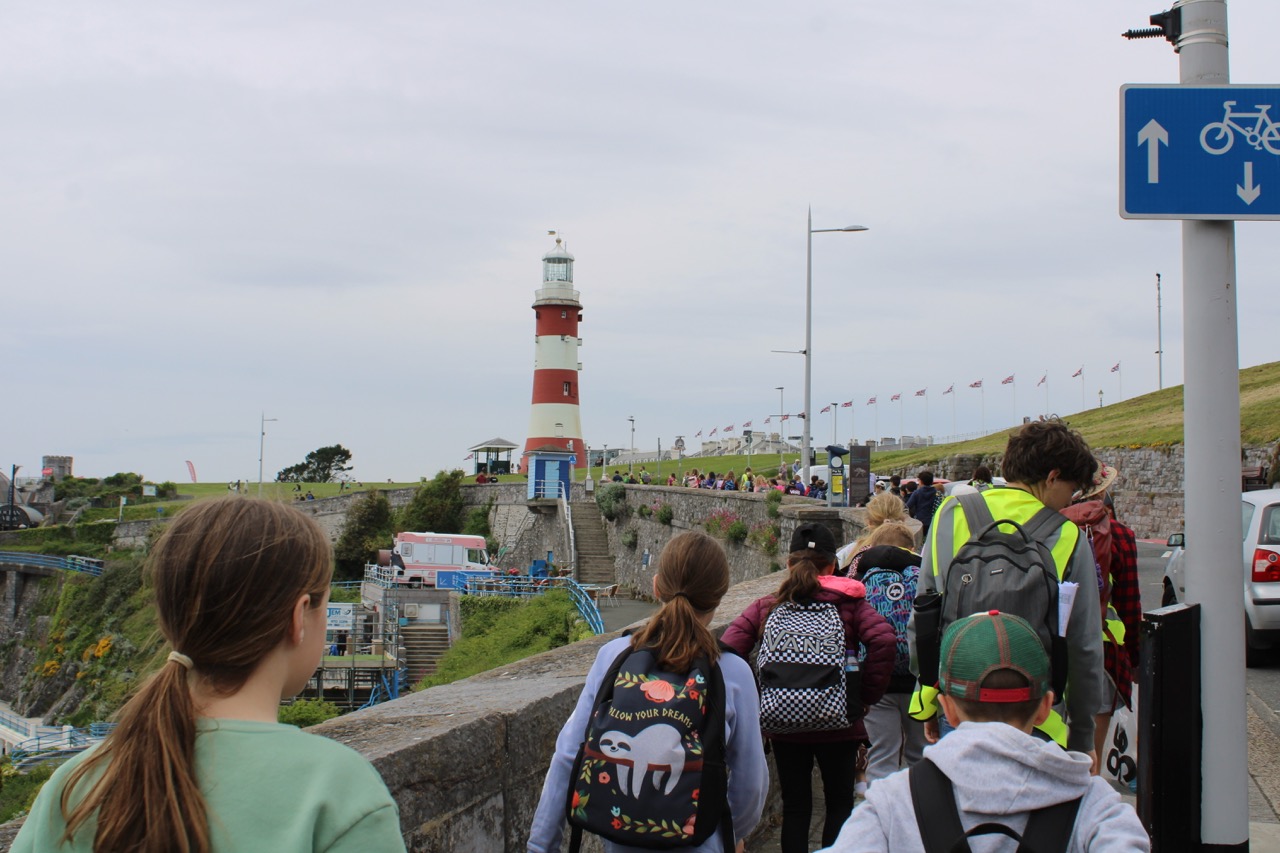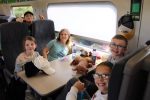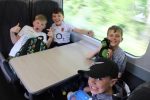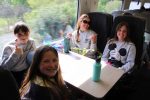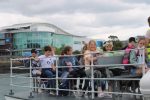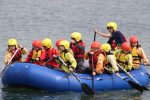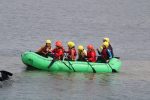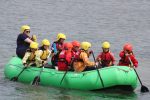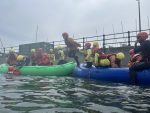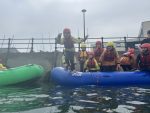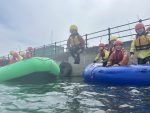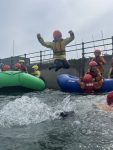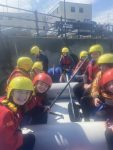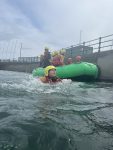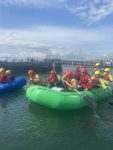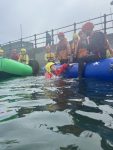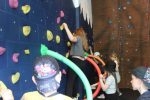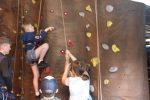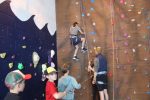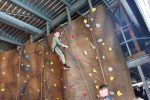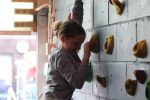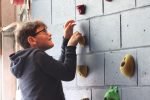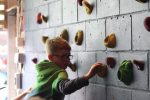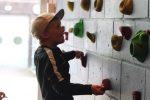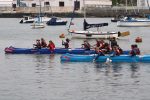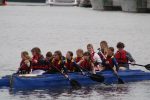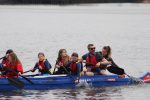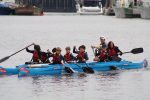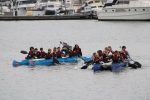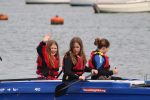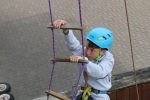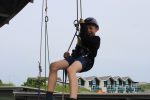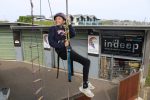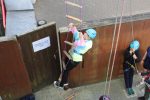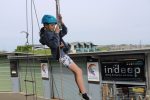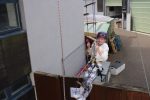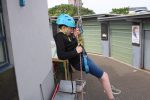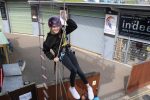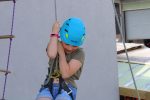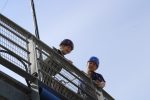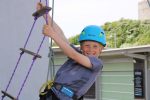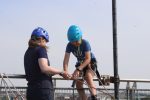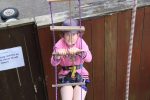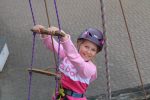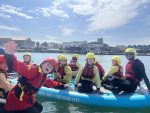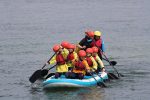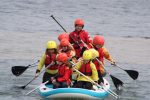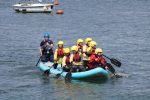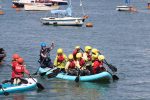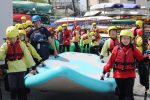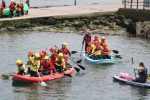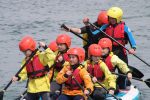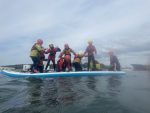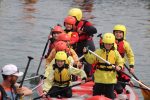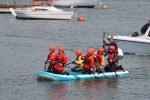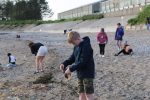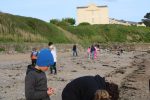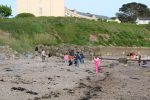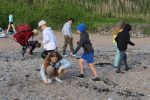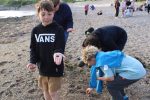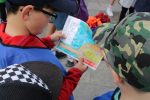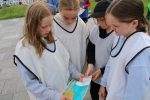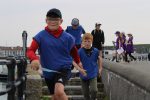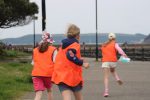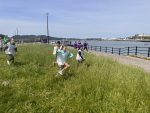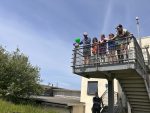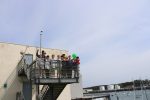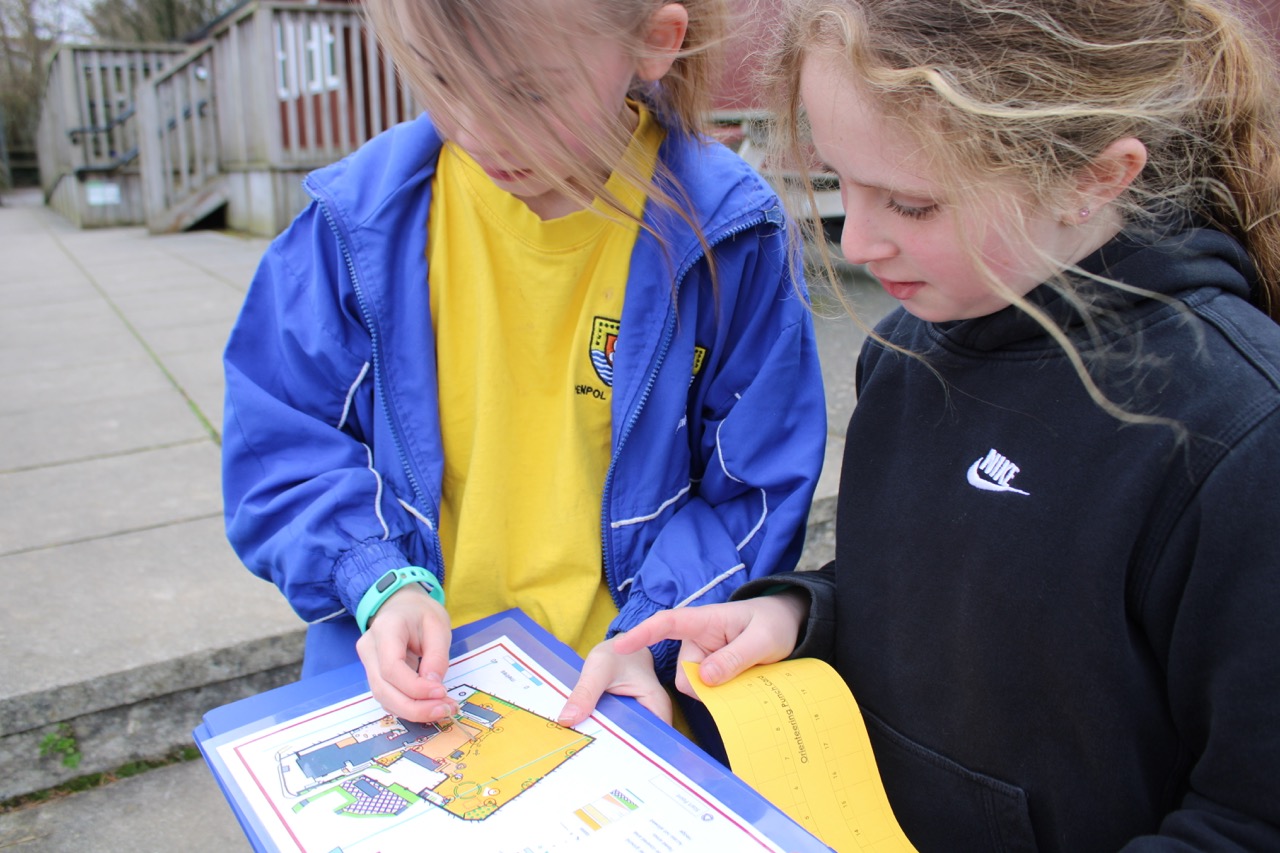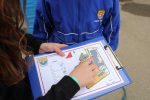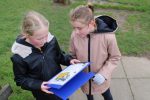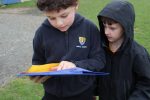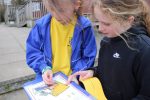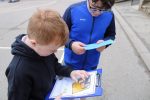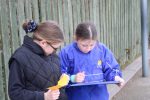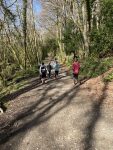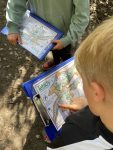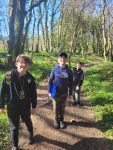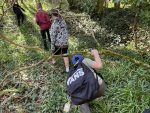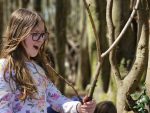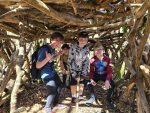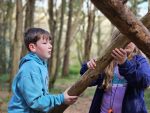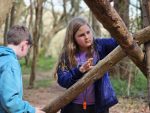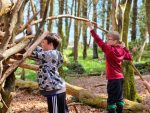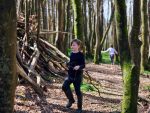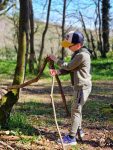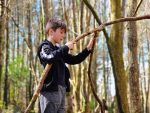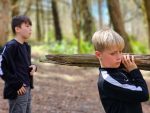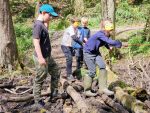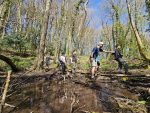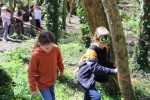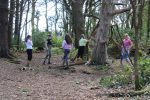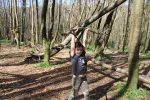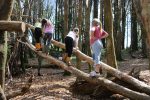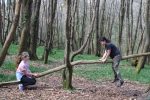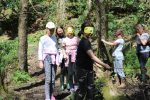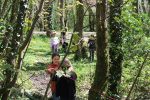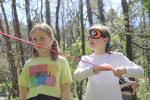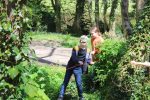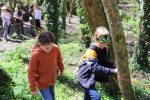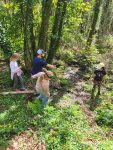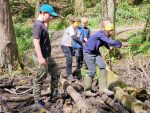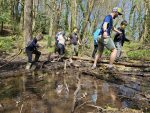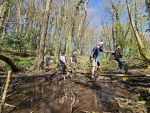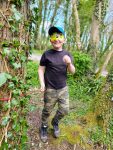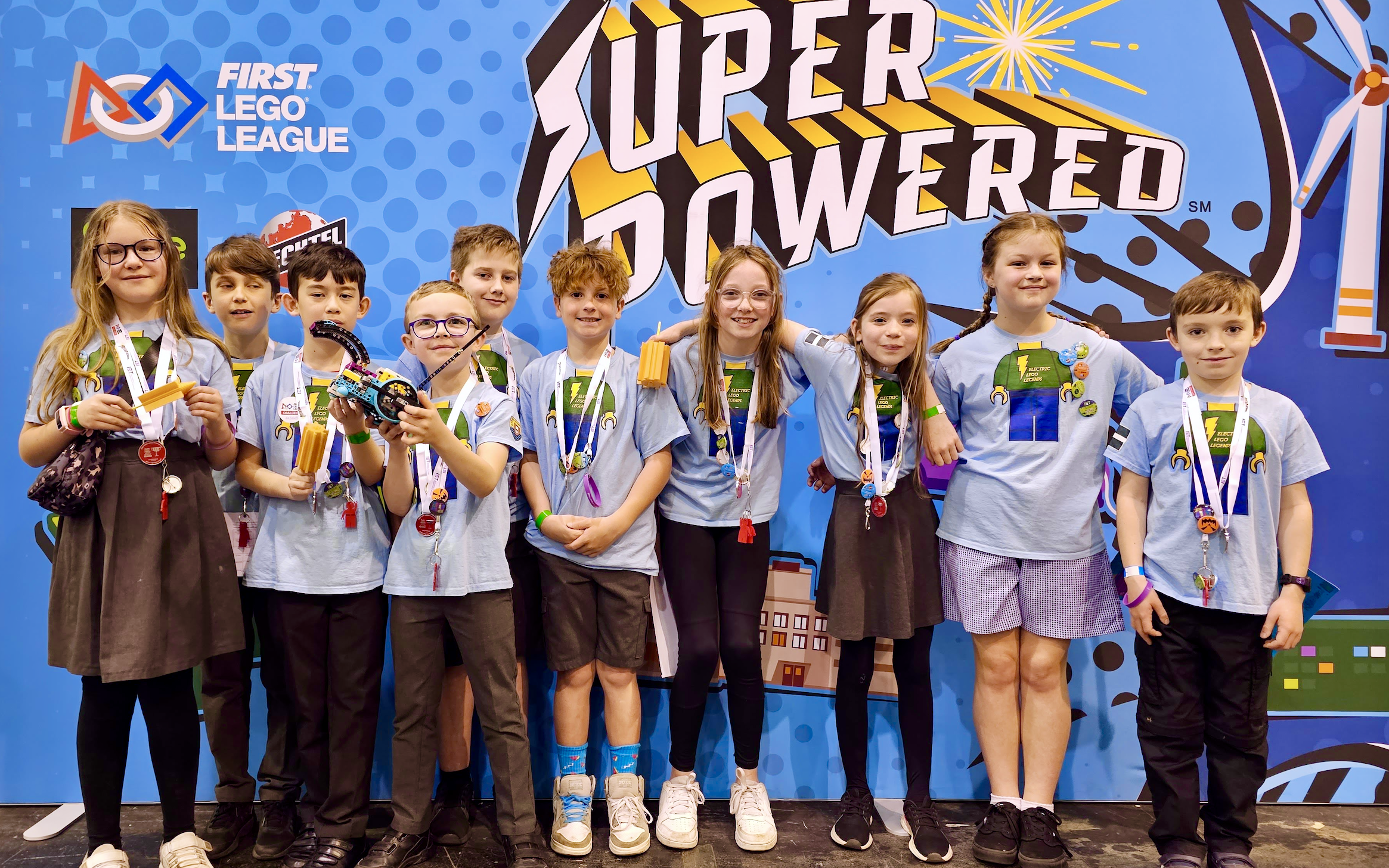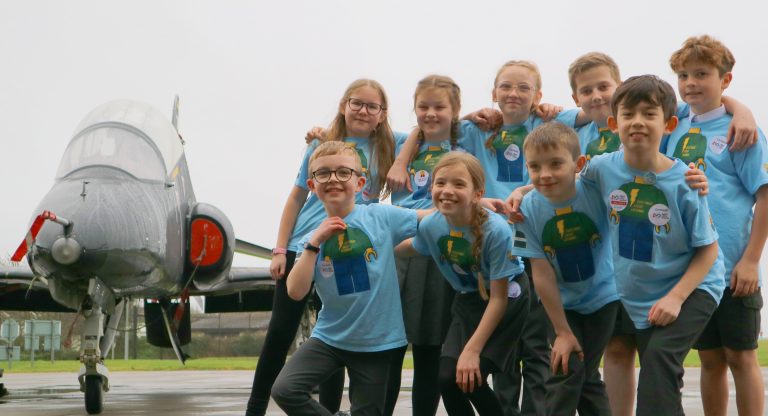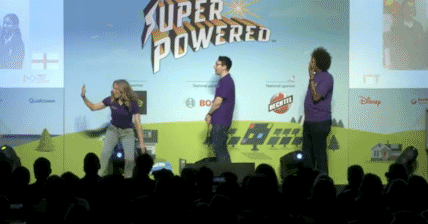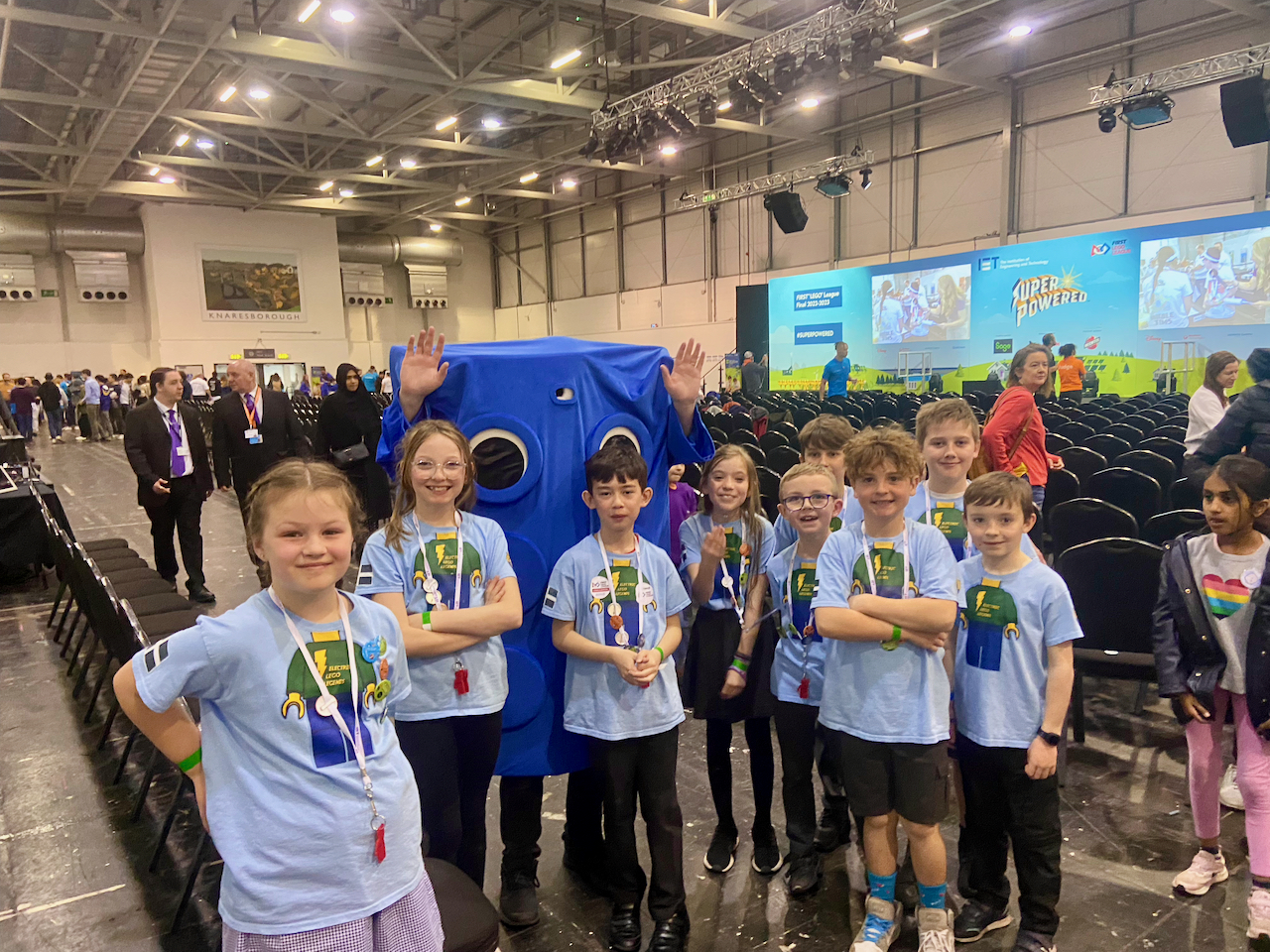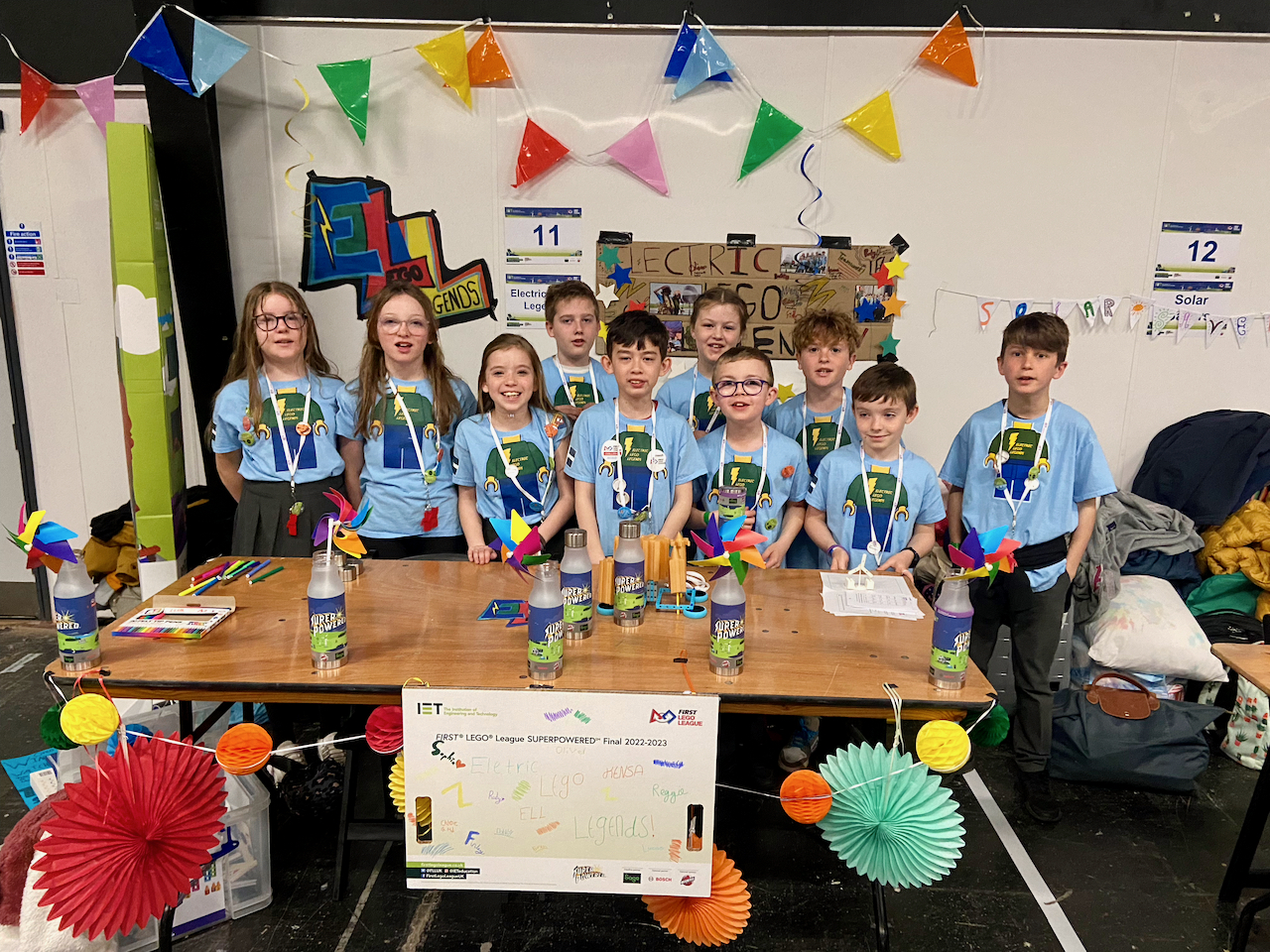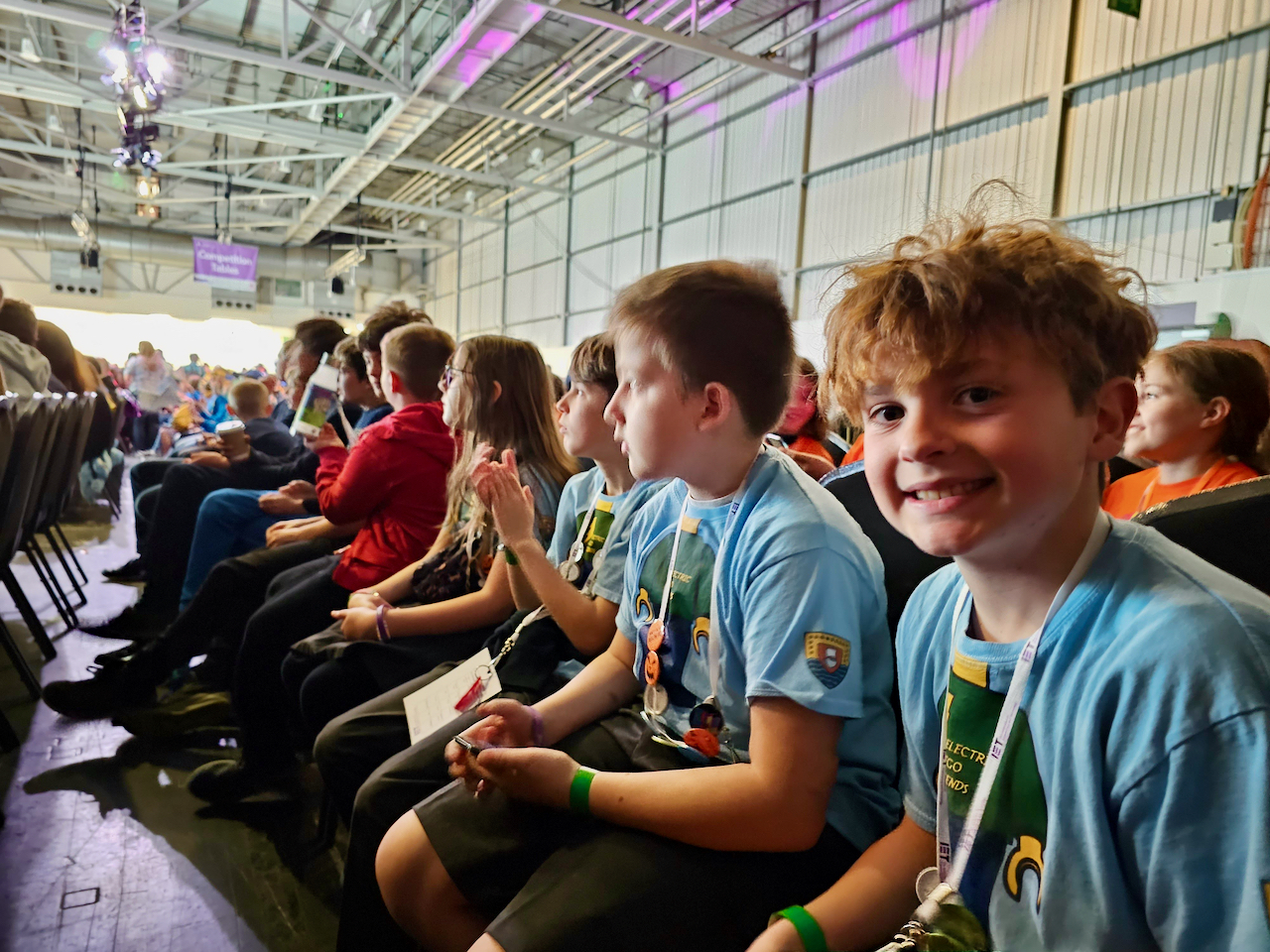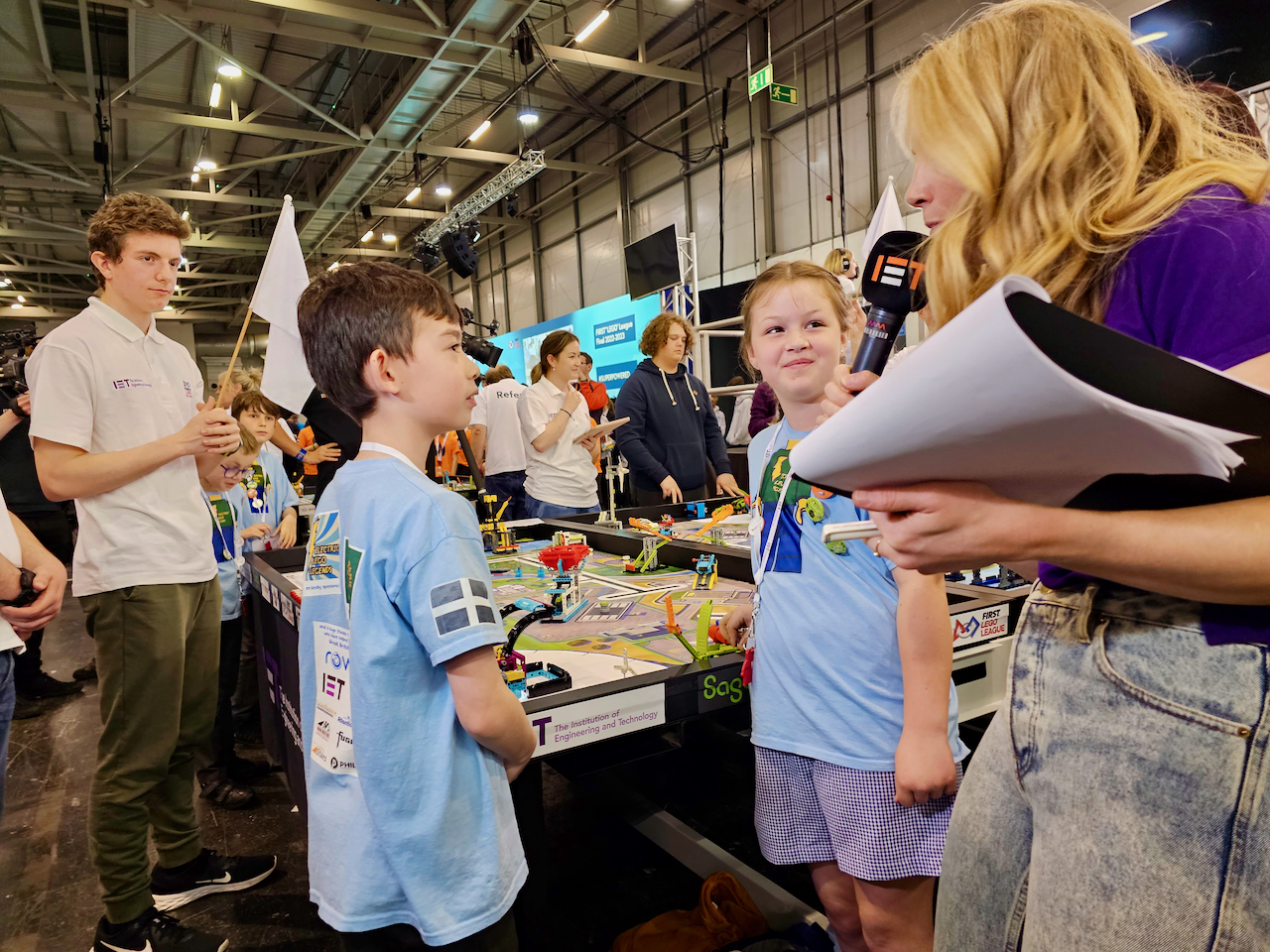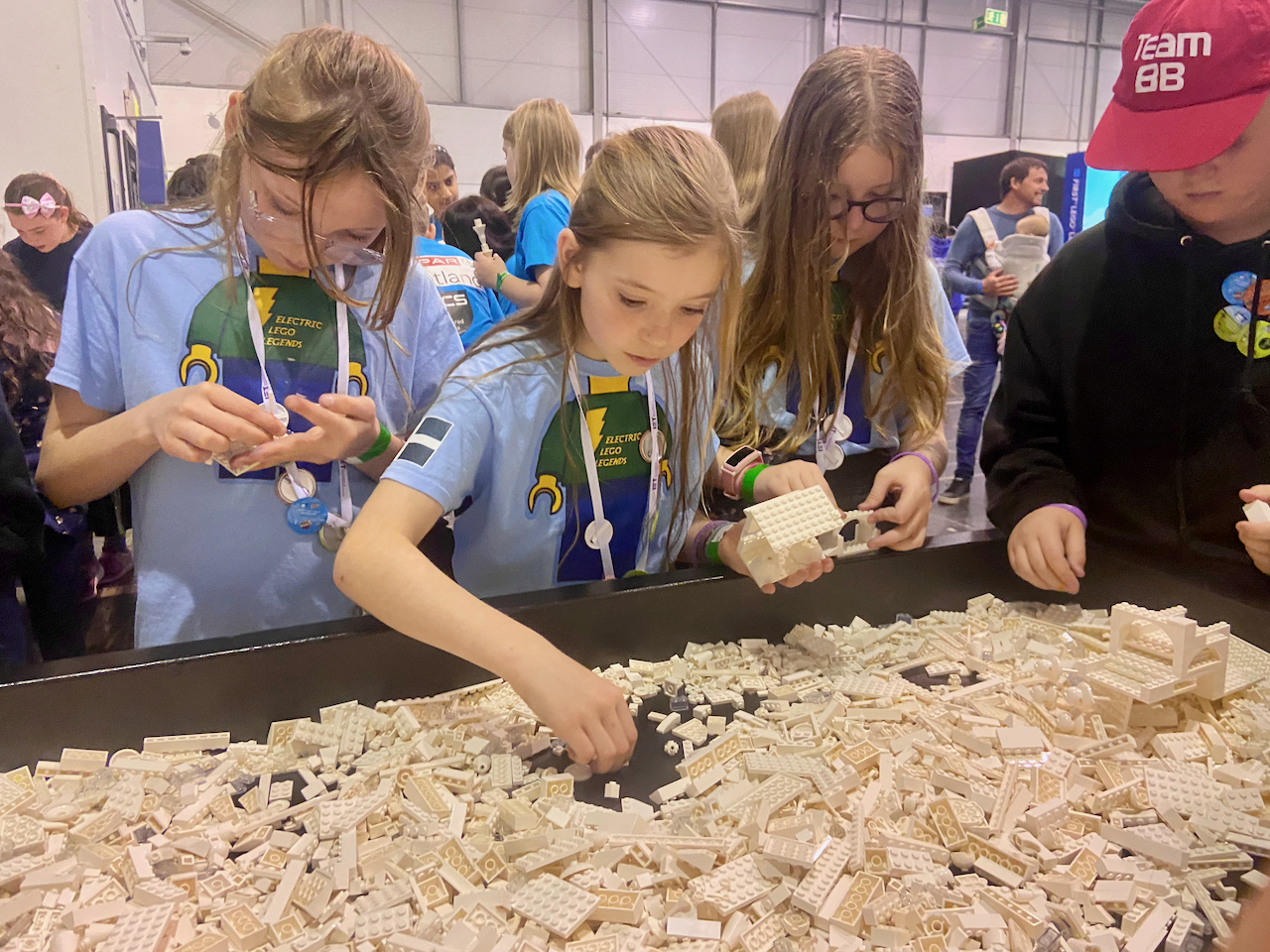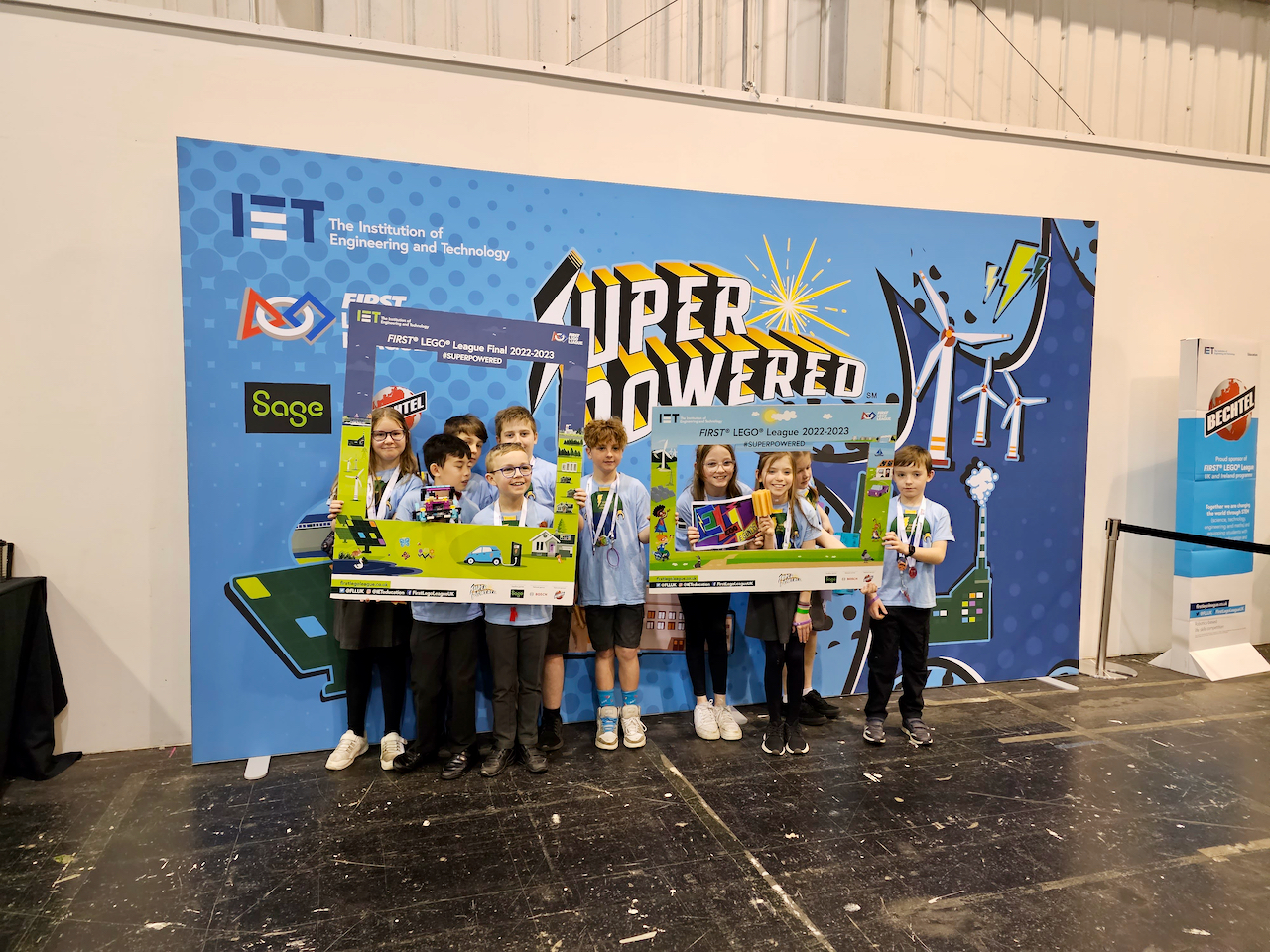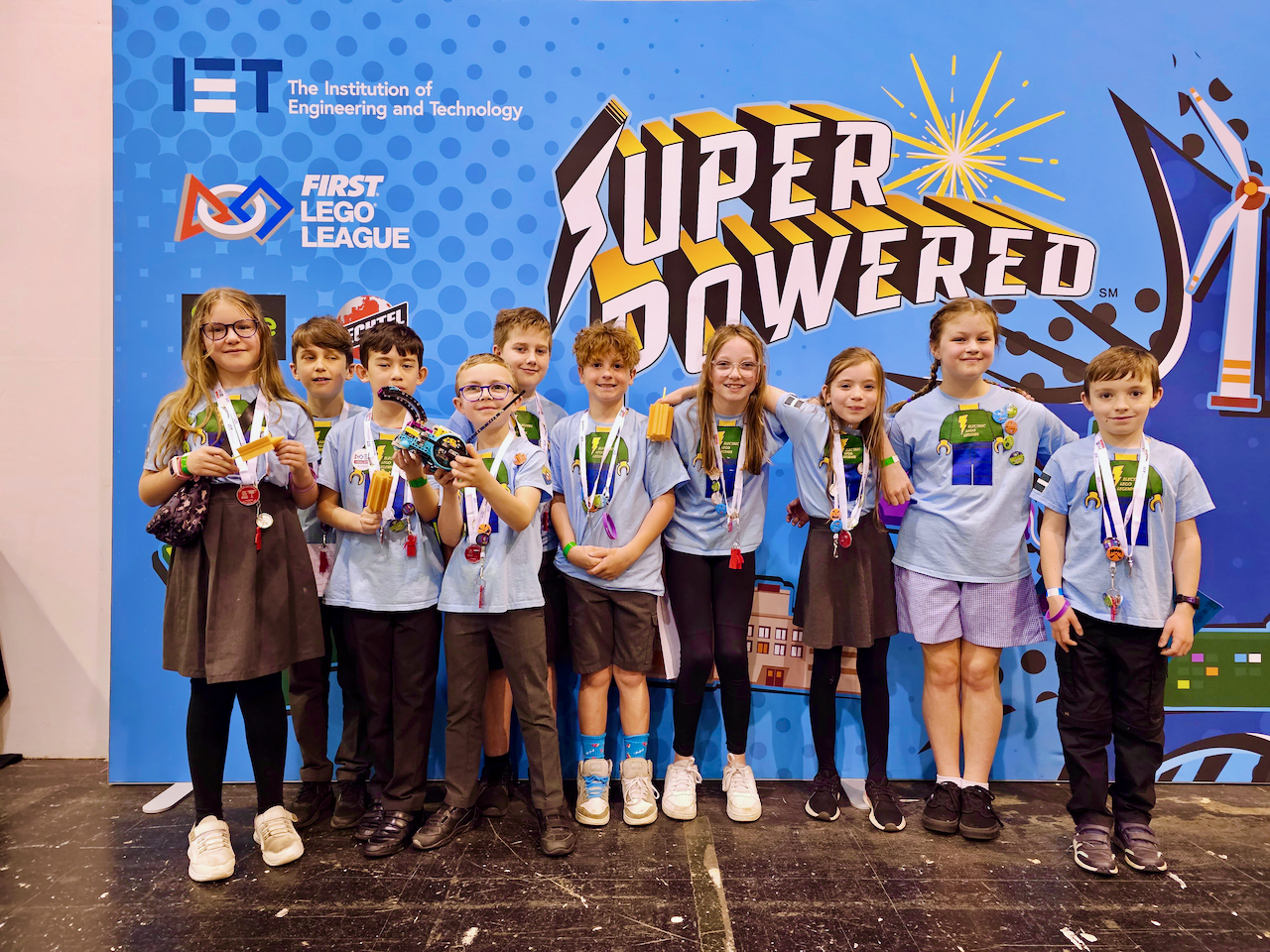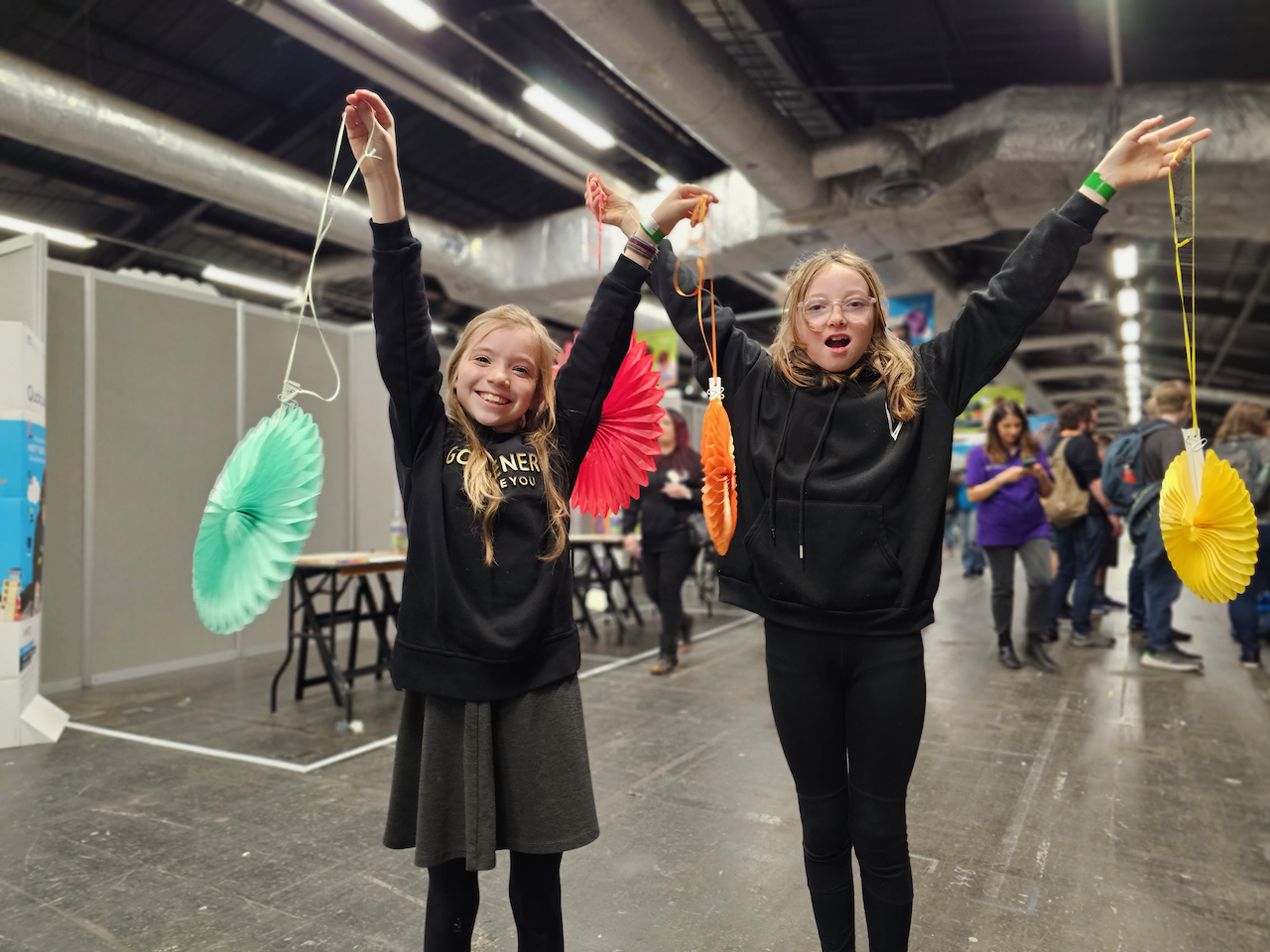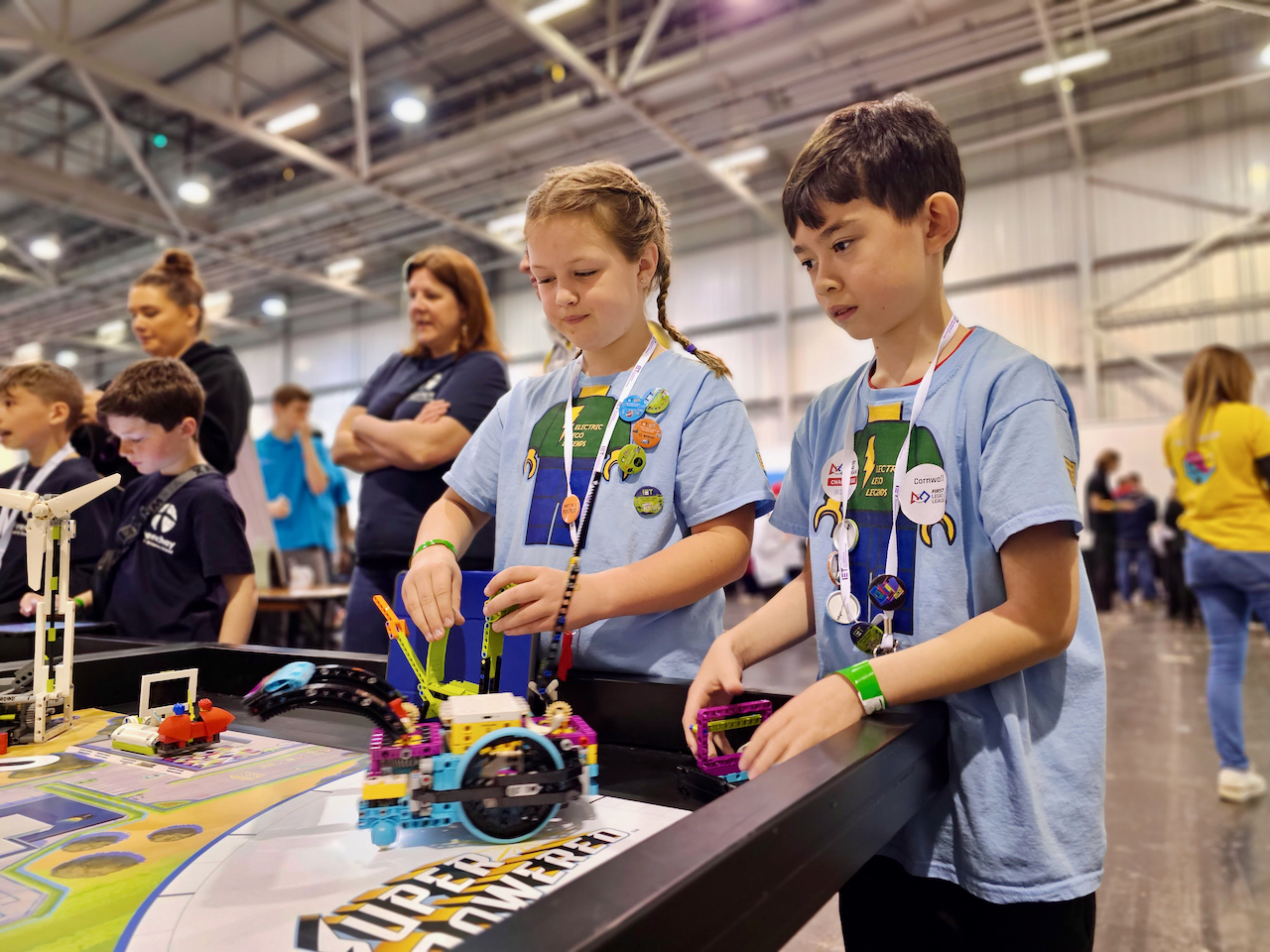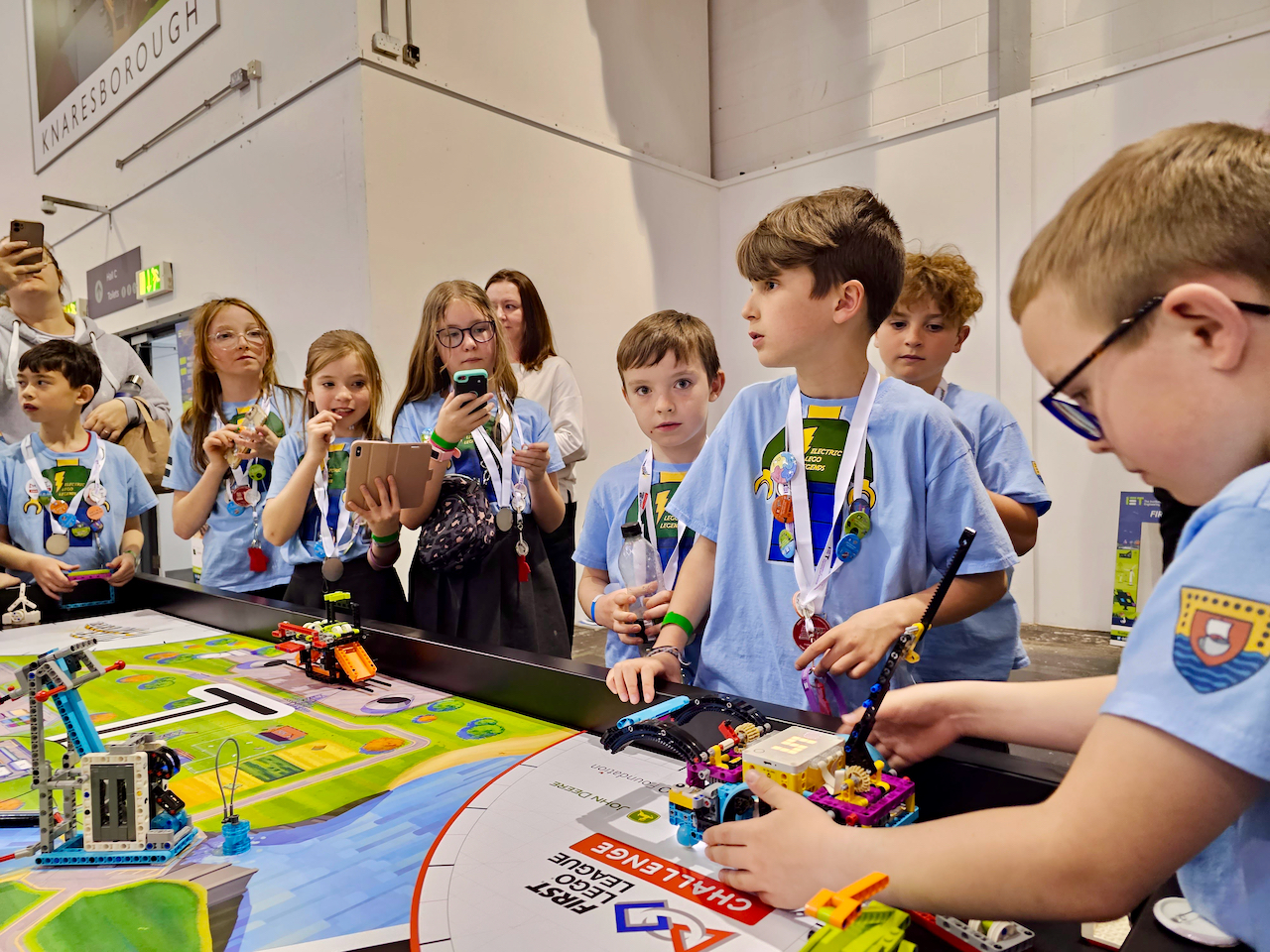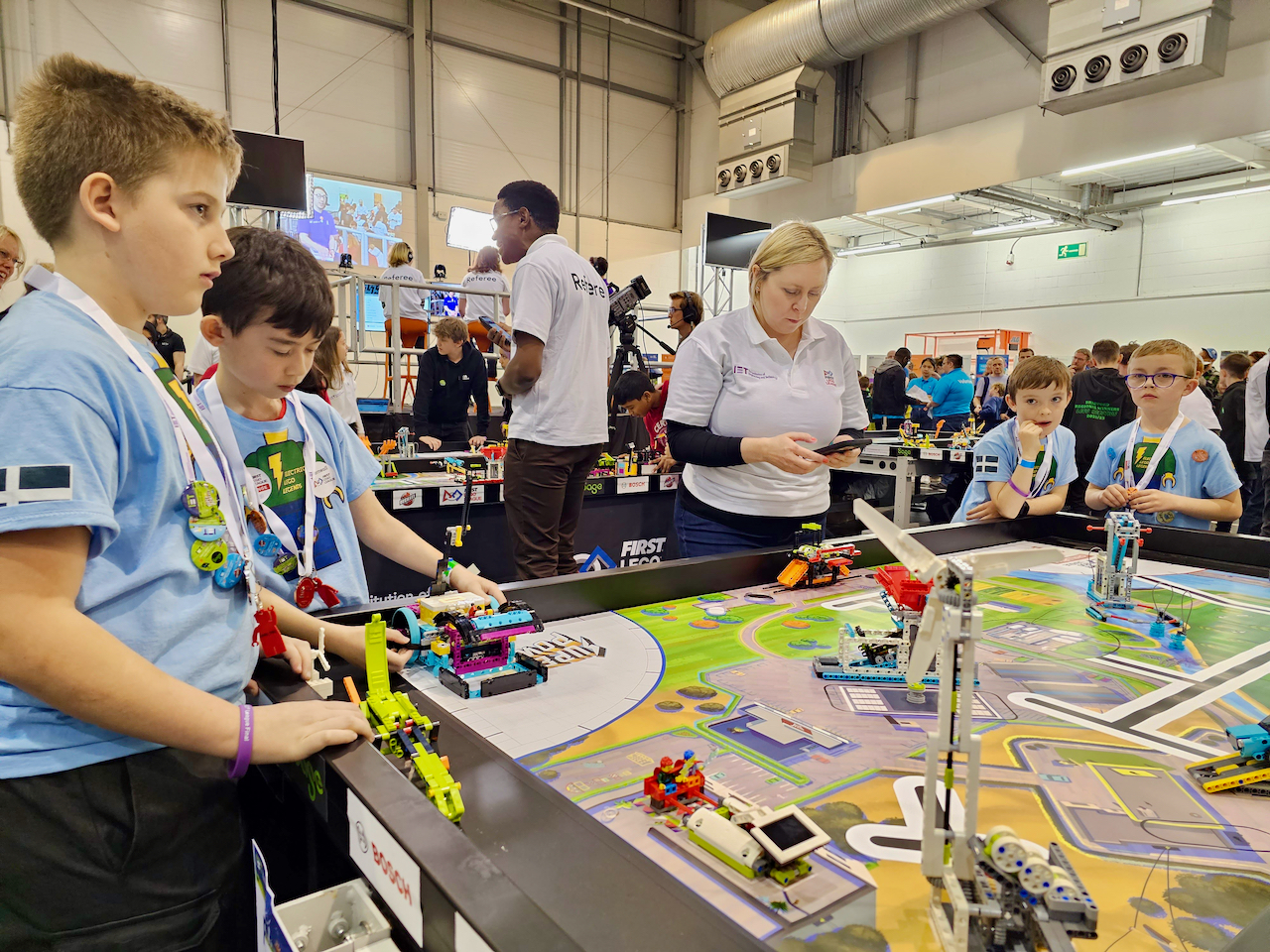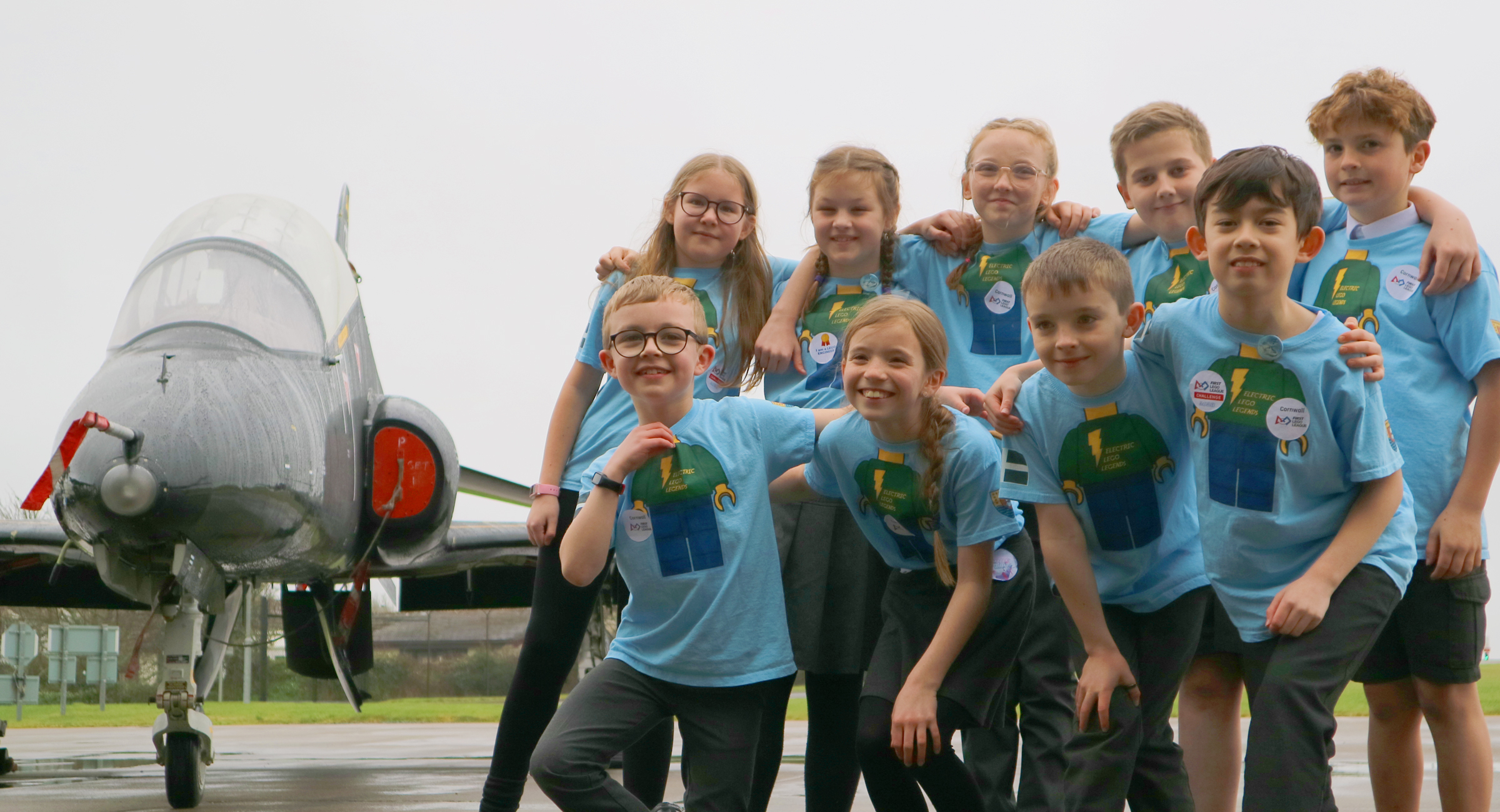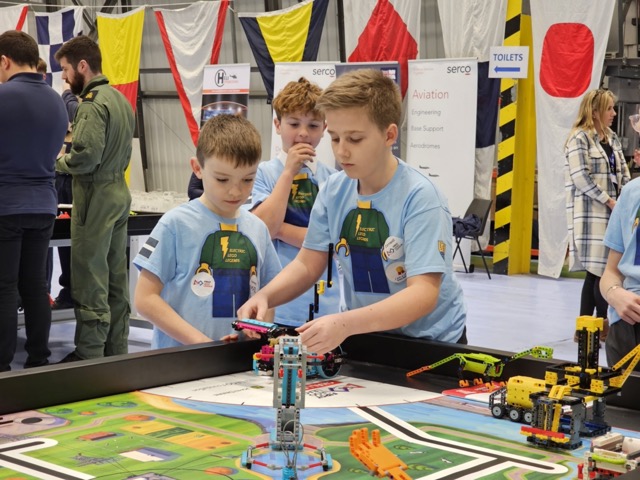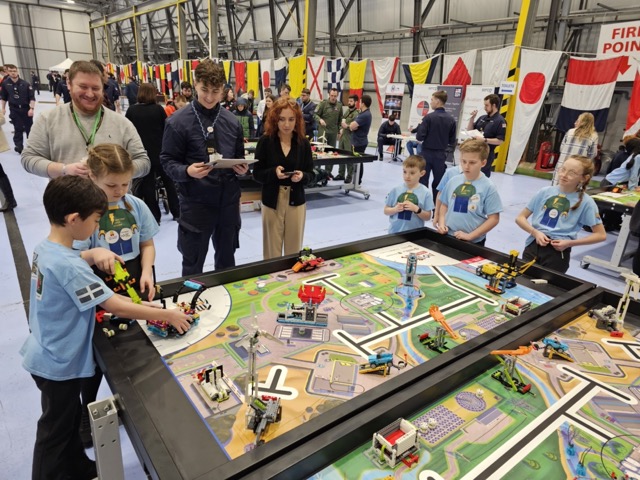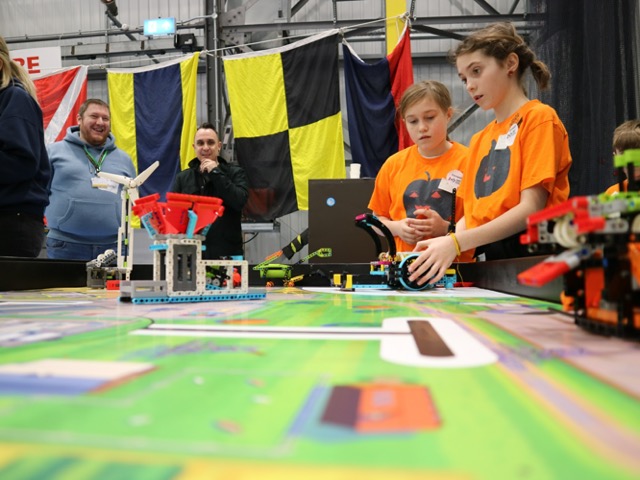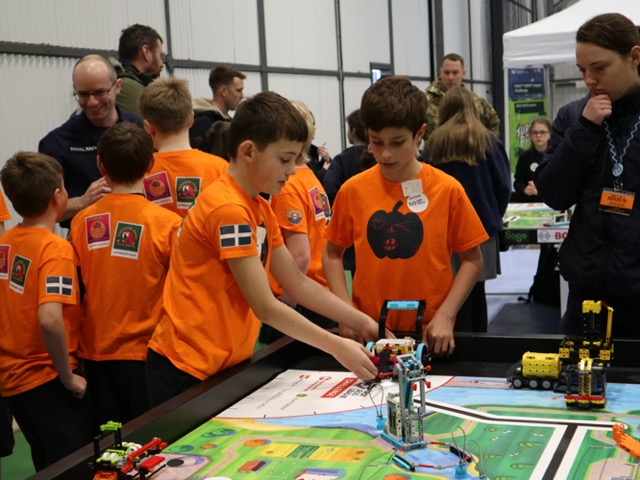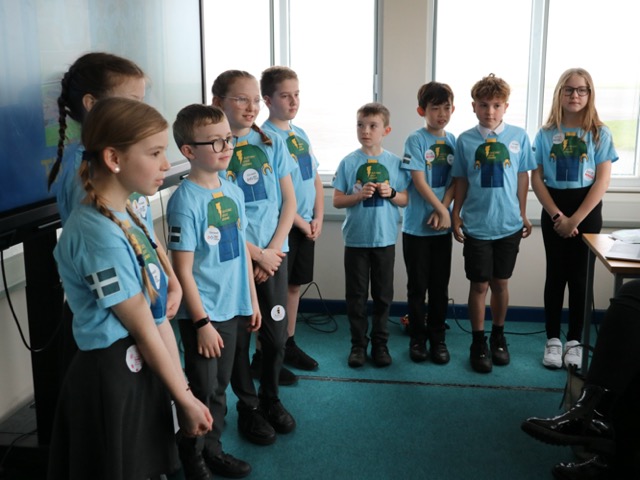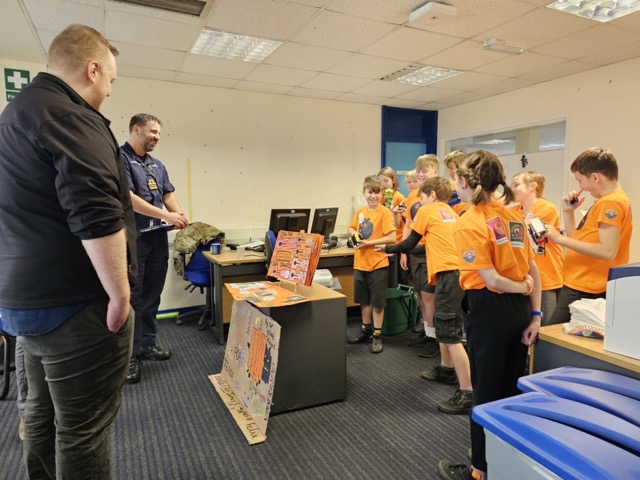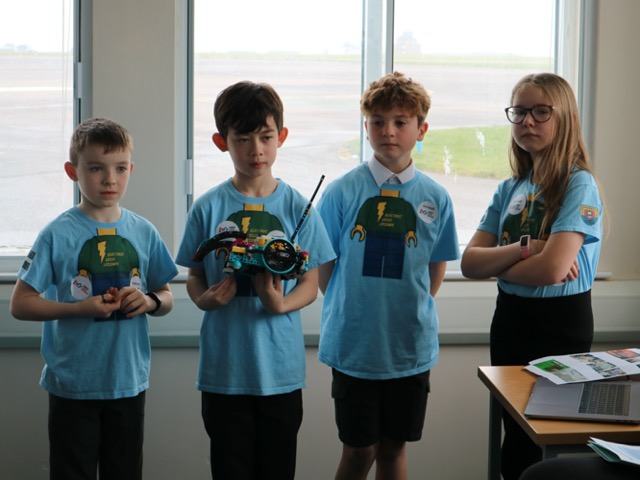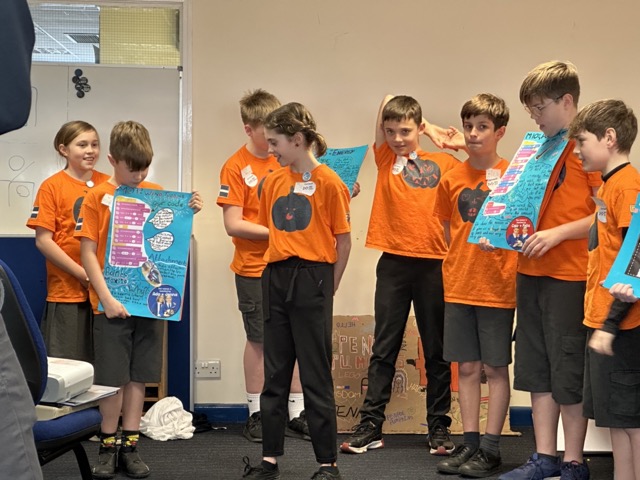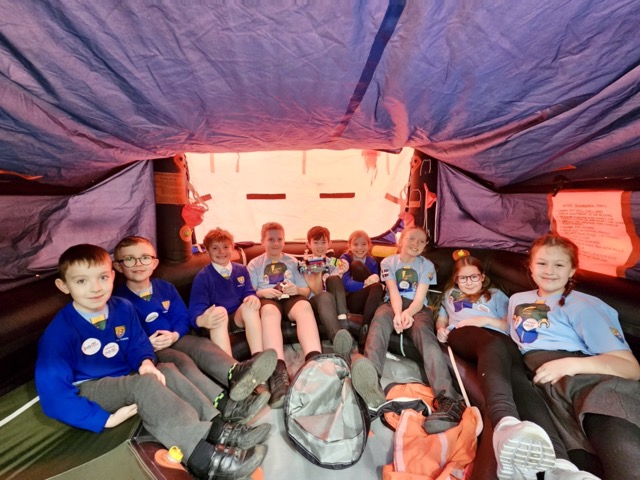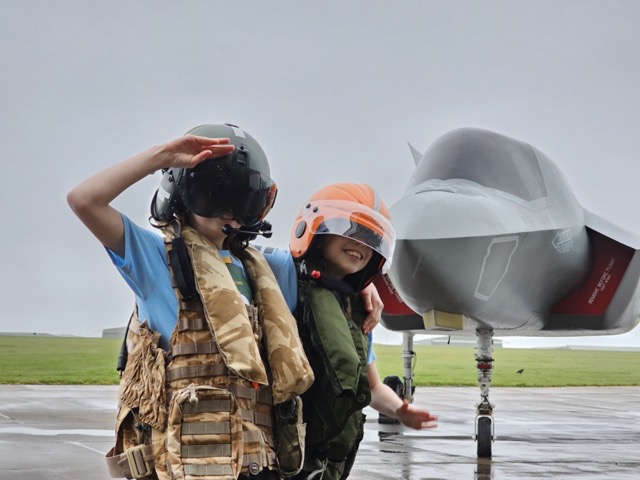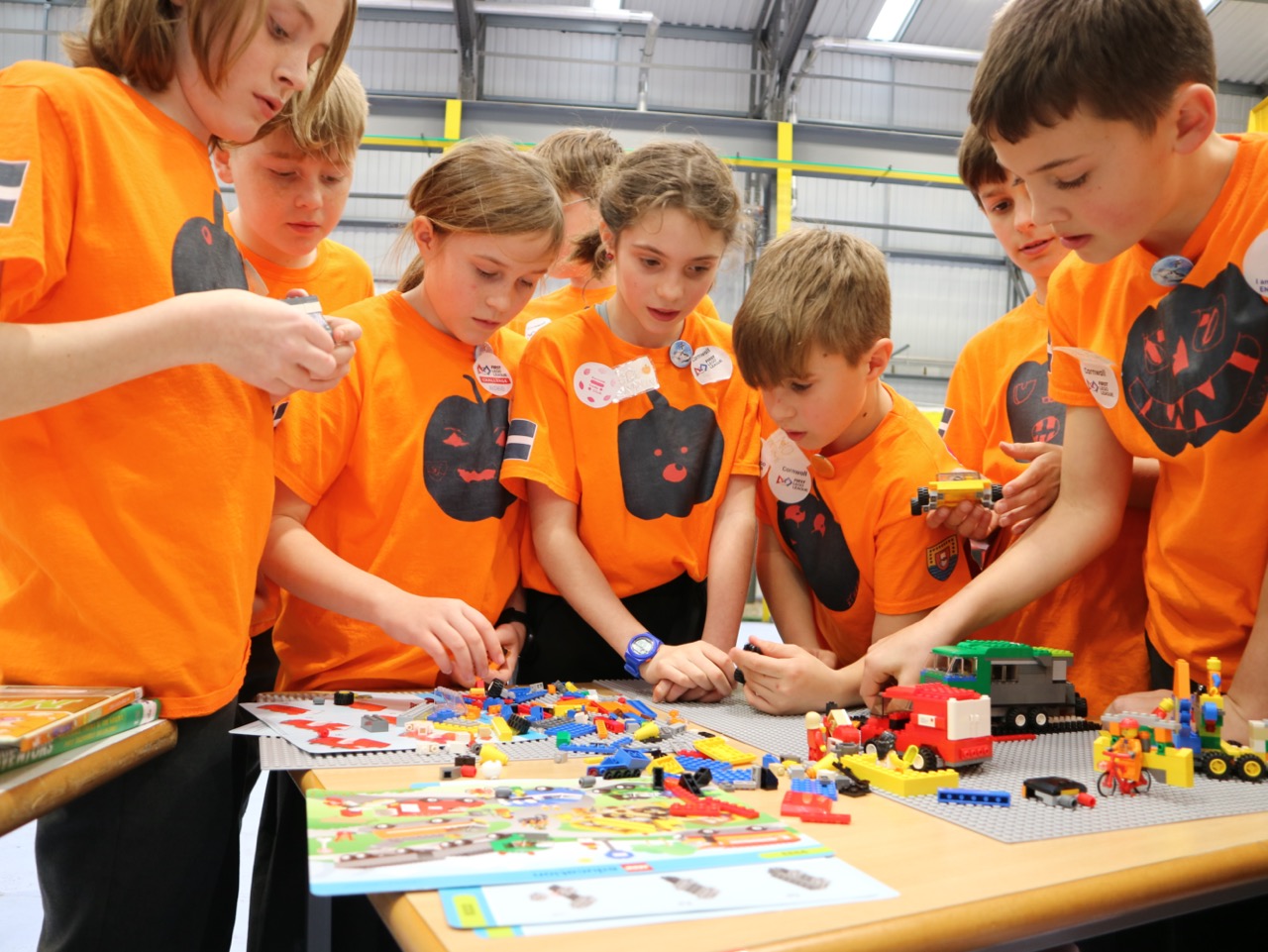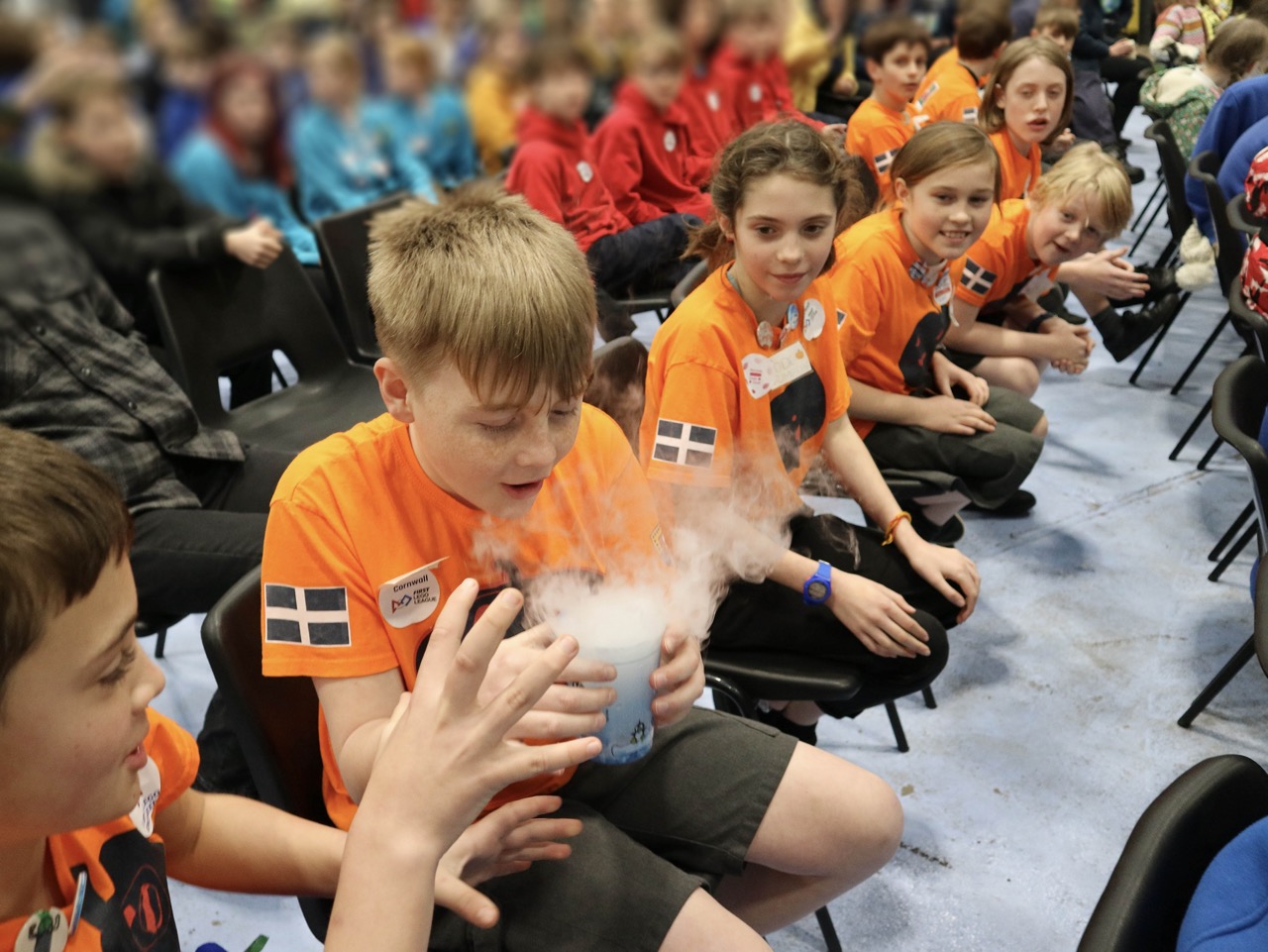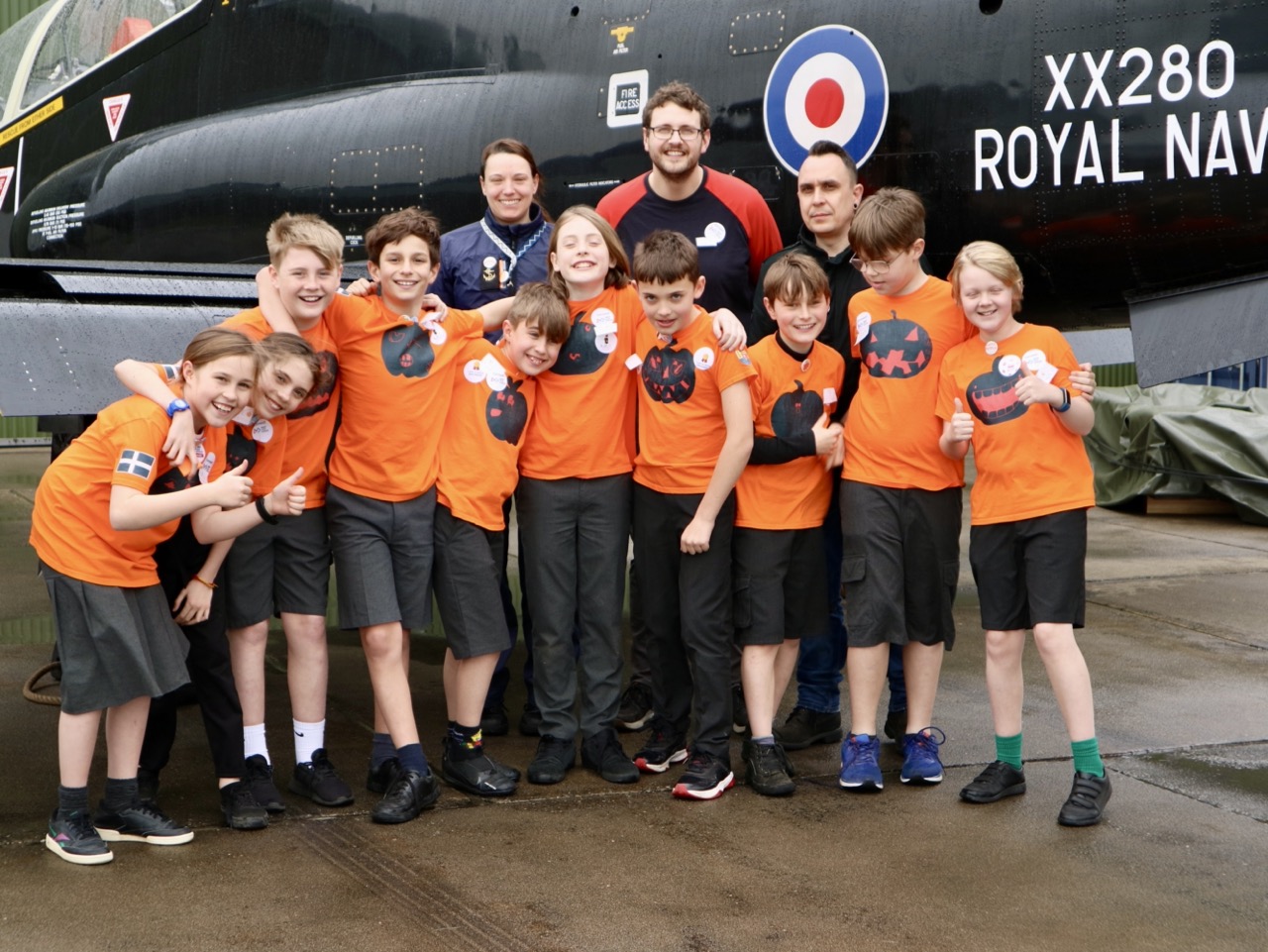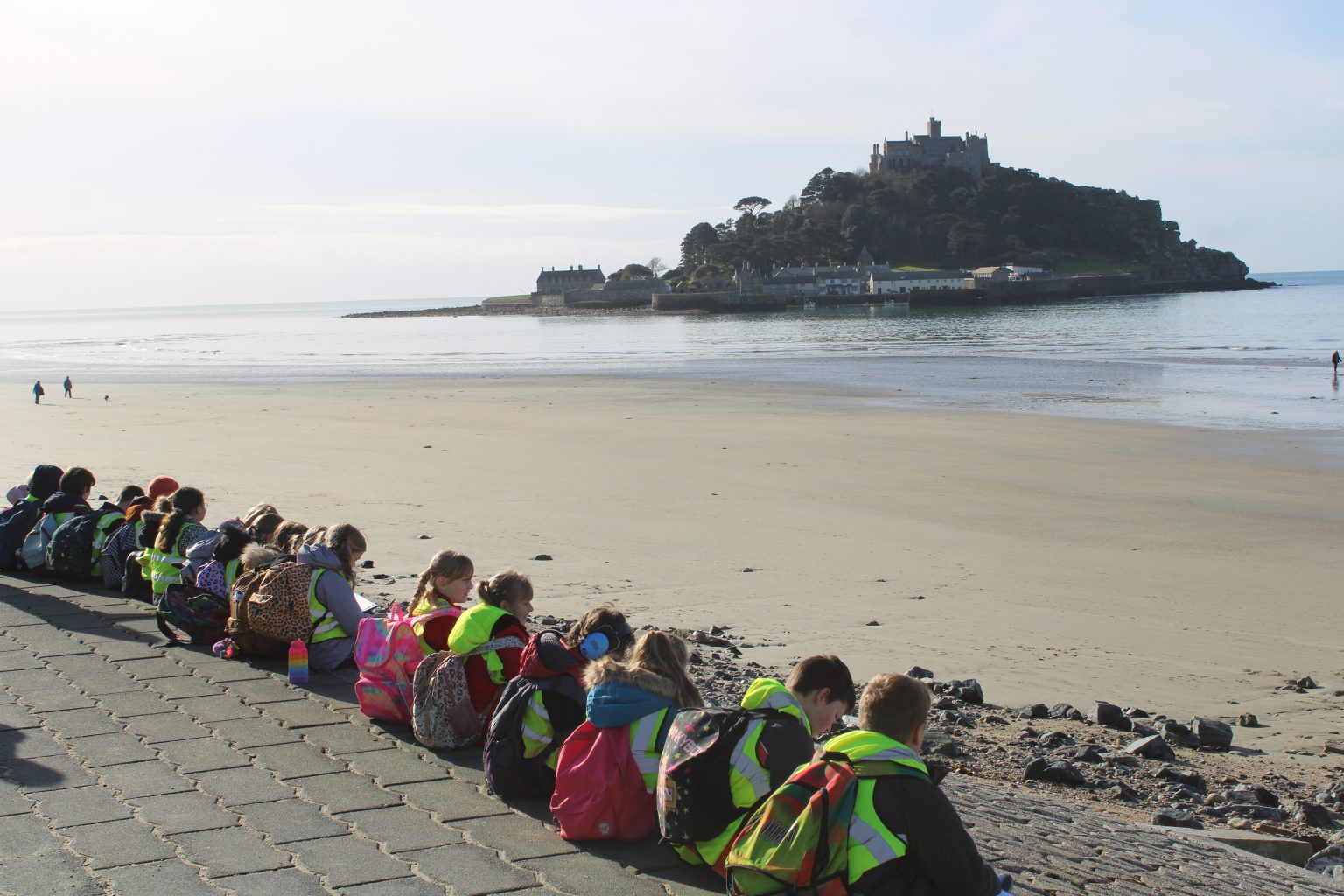
Year 5
Penpol Celebrates Languages Day 2023!
On Wednesday 4th October, Penpol School celebrated European Day of Languages for its 6th time. We are so fortunate to have so many languages being spoken as either a first or second language by our students. For this reason, European Day of Languages is a prime opportunity to shine a light on each of these languages which represents our diverse learning community here at Penpol.
Back by popular demand, the French café was a favourite amongst students and staff. Like last year, KS2 students were invited to sample a French breakfast in Class 9 with Mr Emery and his year 4 group. Each class enjoyed singing in French and were then able to order from KS2 students, learning the basics such as ‘Bonjour’, ‘s’il vous plaît’ and ‘merci.’ KS2 students then put their French linguistic skills to the test to then host their KS1 reading buddies in their classroom.
Finally, at the end of the day, Mrs Curnow and Mrs Best had KS1 enthralled with a reading of ‘Goolan’ to celebrate the Cornish language. In addition, Mrs Best and Mr Jones serenaded the children with songs featuring Welsh, Cornish and French. Mr Jones and Mr Emery led a European singalong in KS2, which culminated in a school record of 8 languages being sung in one song. This rounded off a fantastic day which marked an important day in the school calendar.
A huge ‘Meur ras’, ‘diolch yn fawr,’ ‘merci,’ ‘gracias,’ ‘dzien dobry,’ aciu’ and ‘obrigado’ to all of those who helped to make the day a huge success. 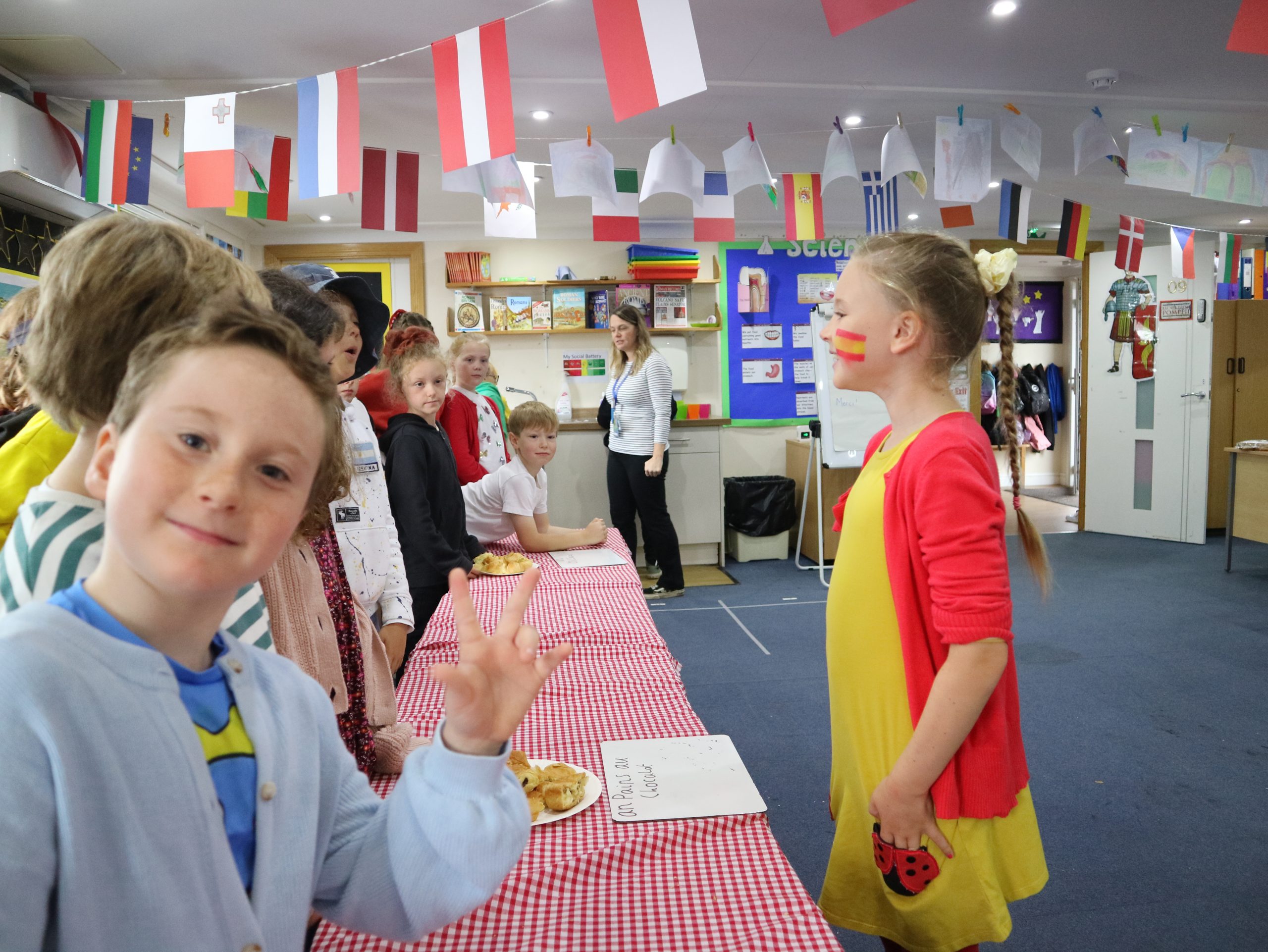
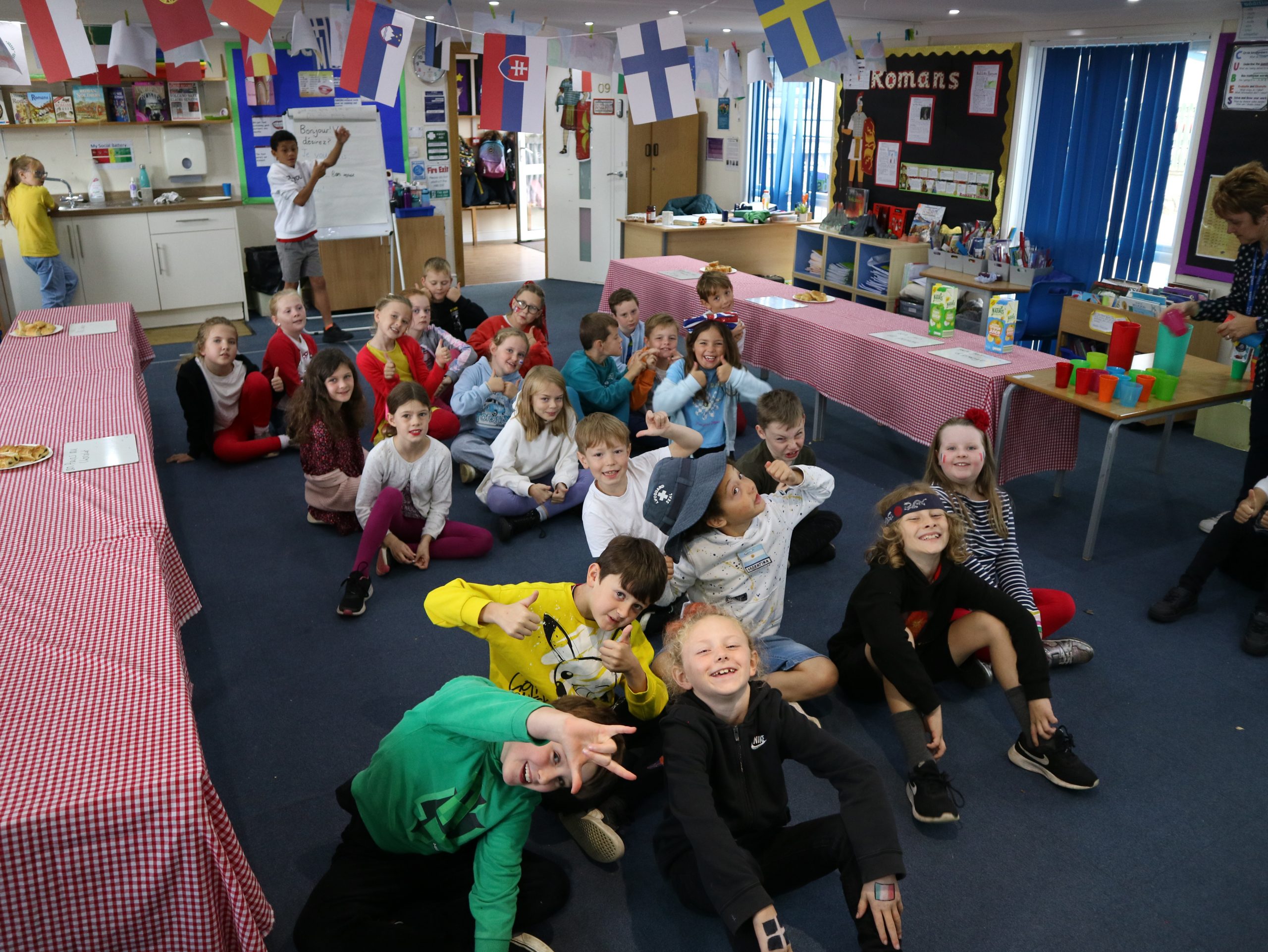
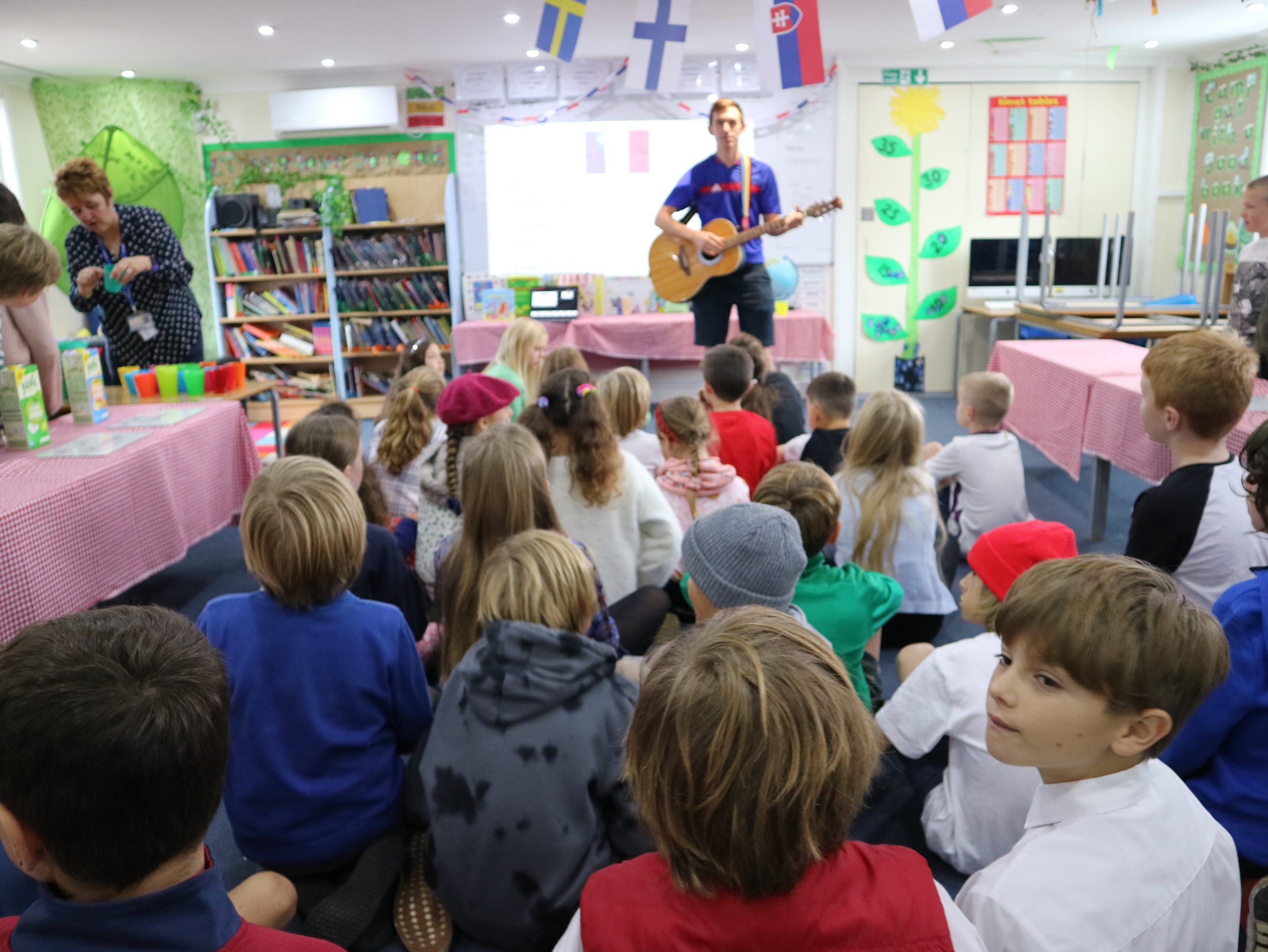
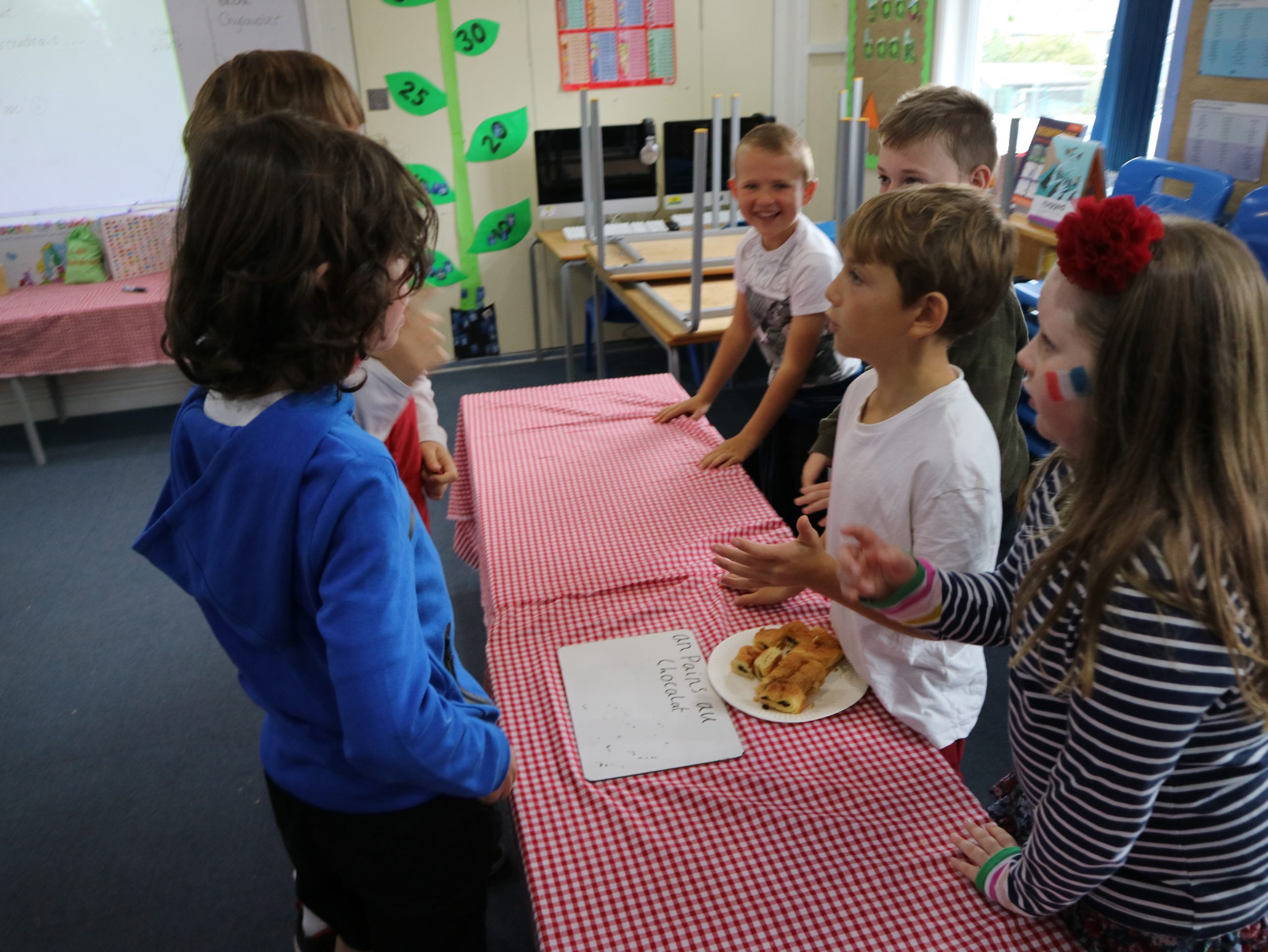
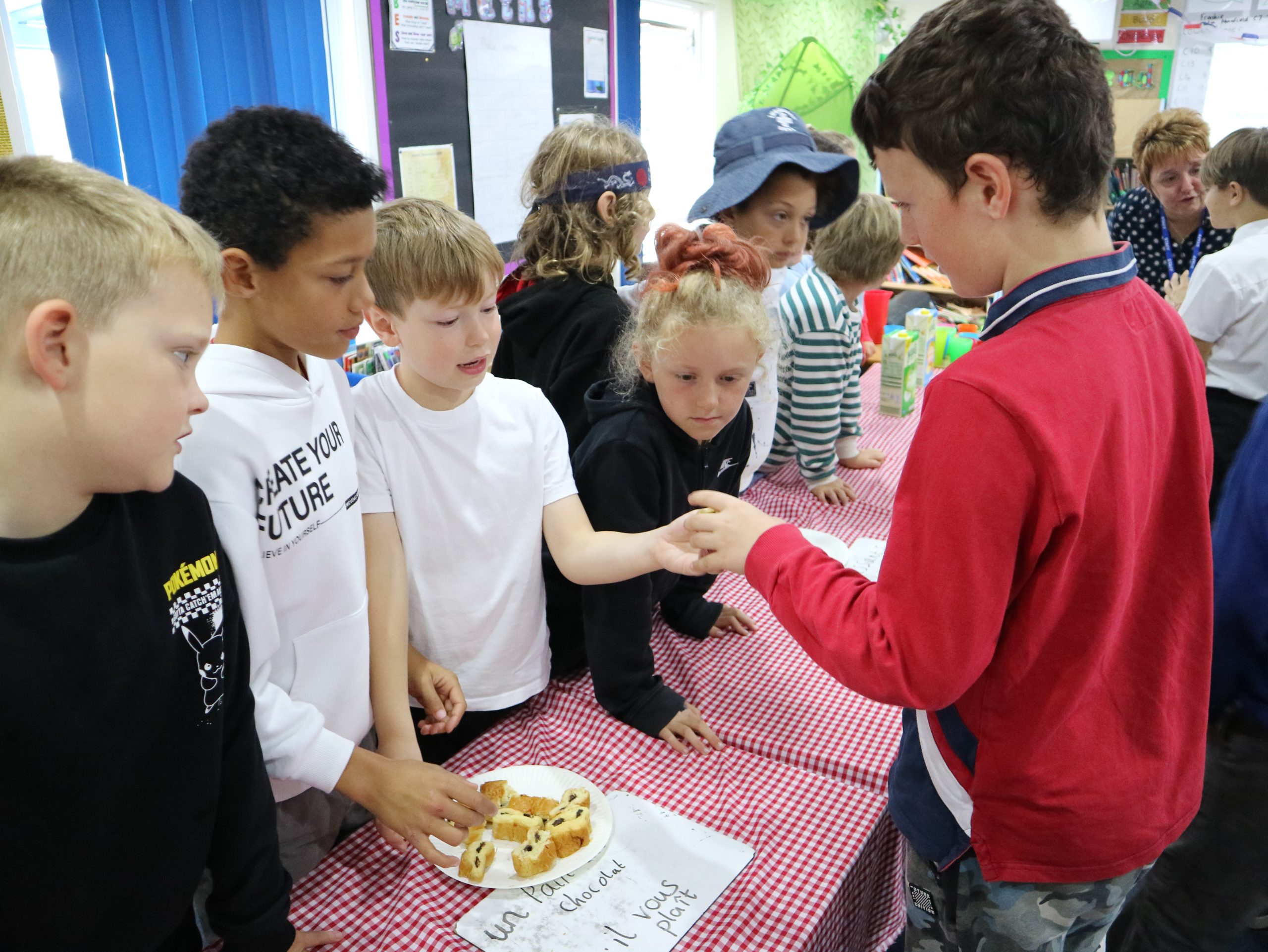
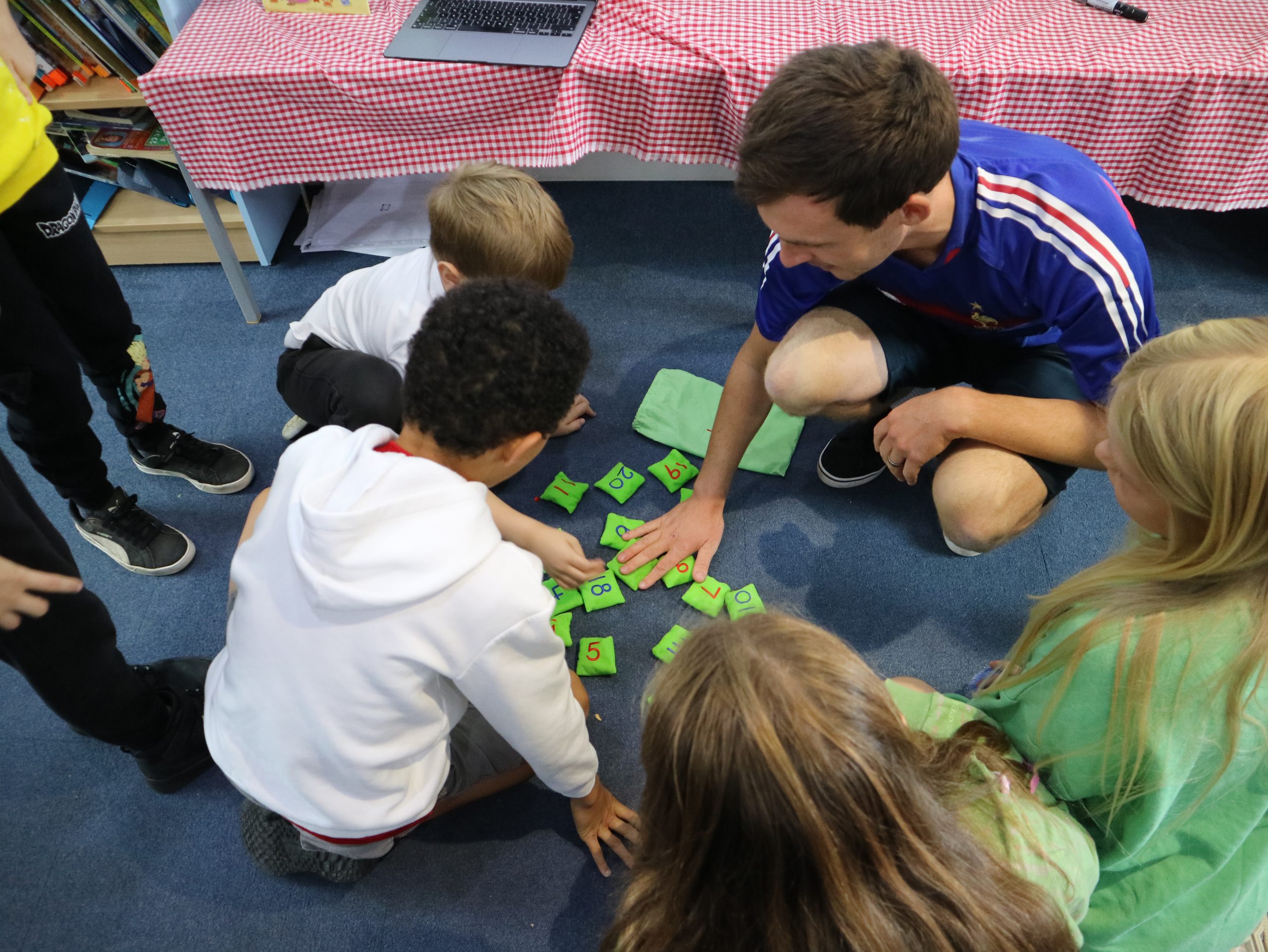
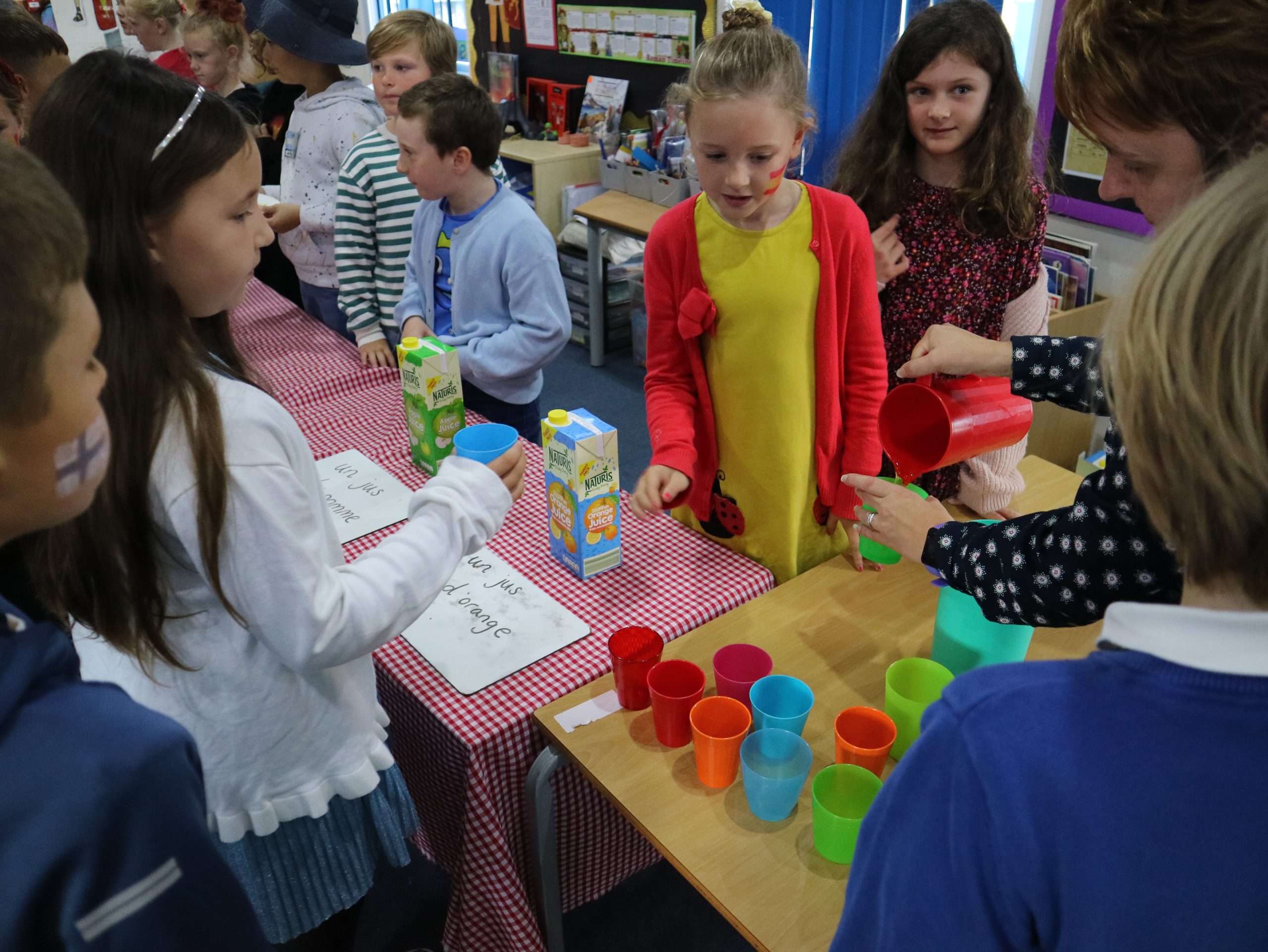
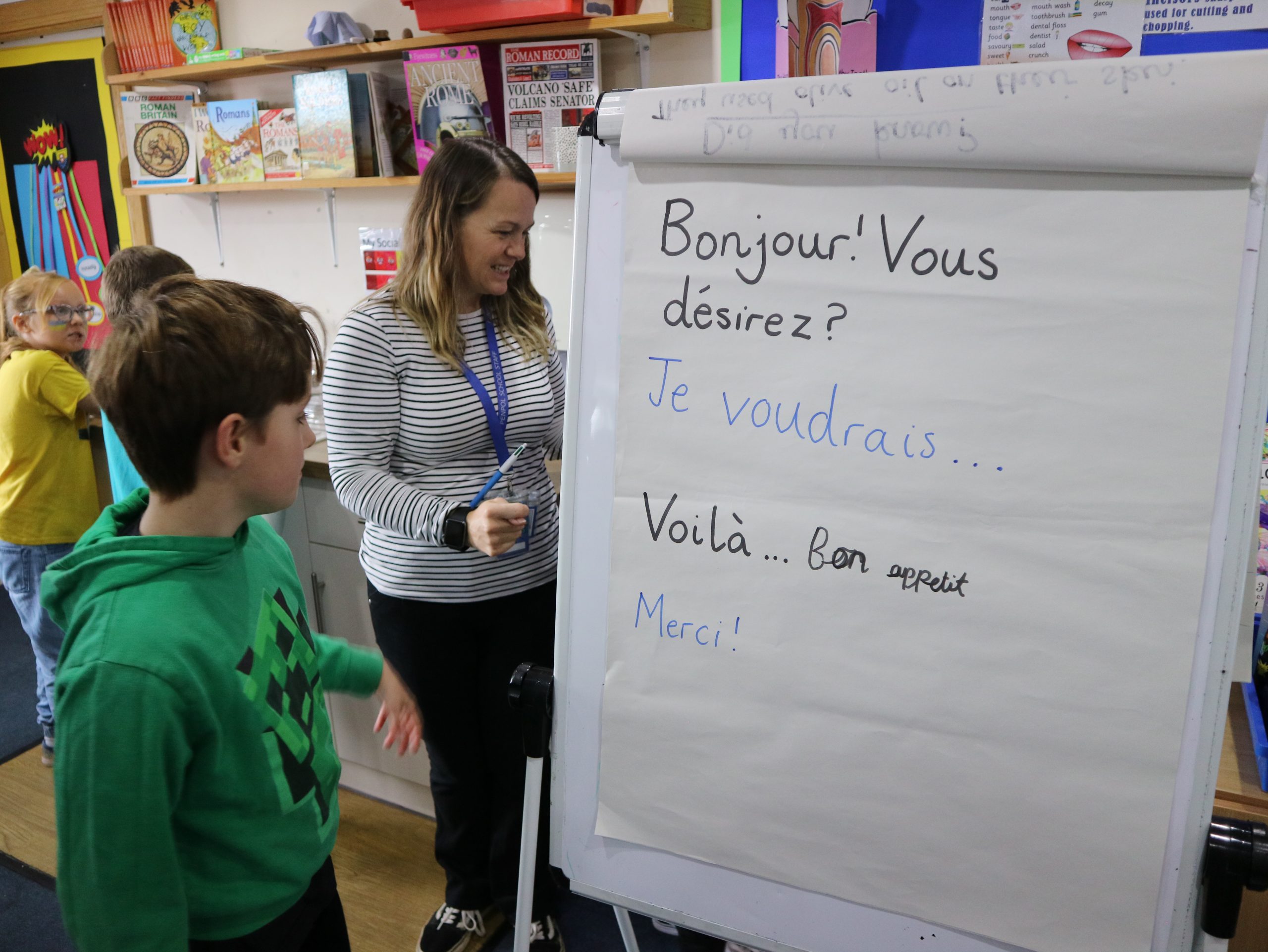
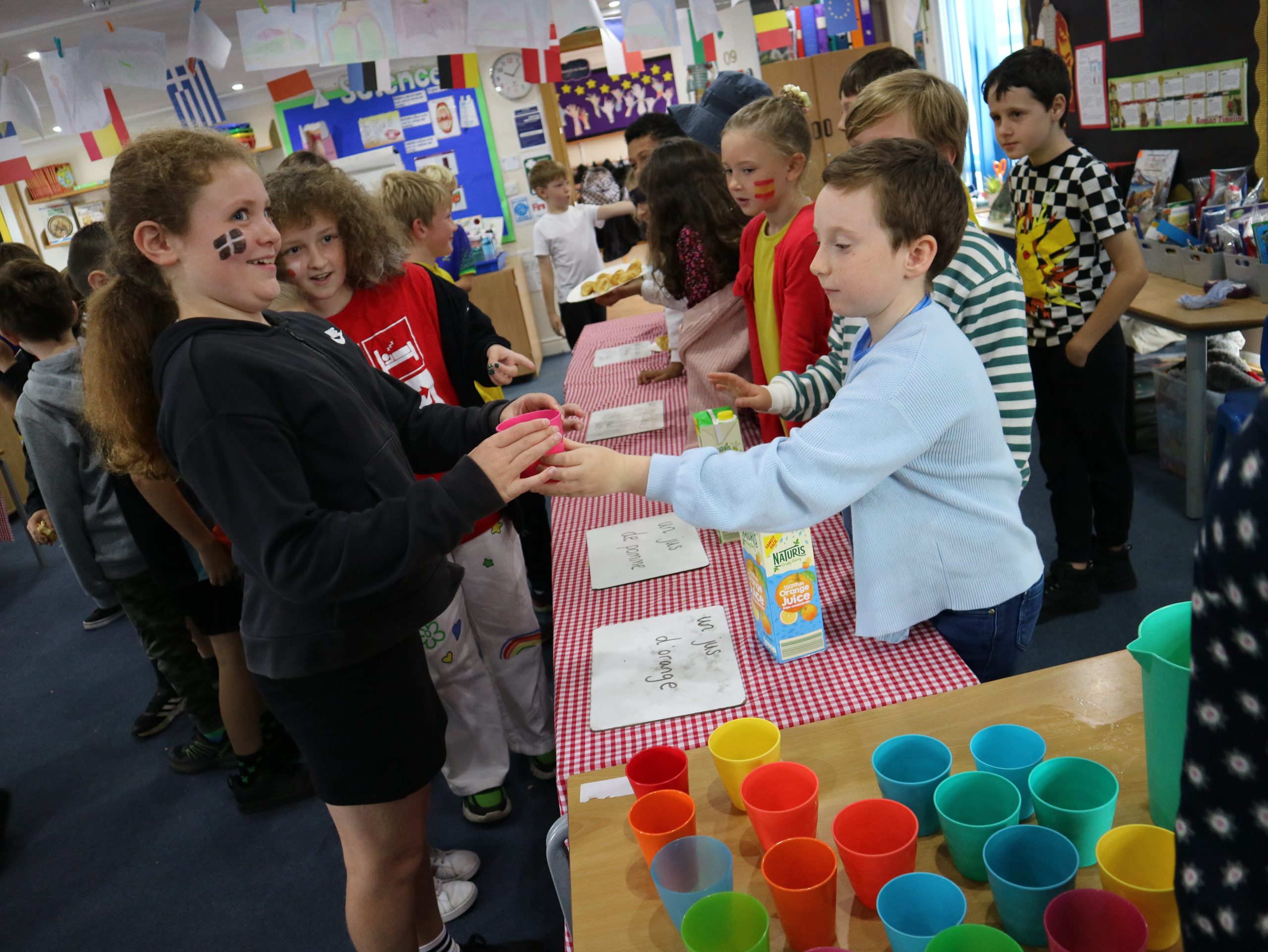
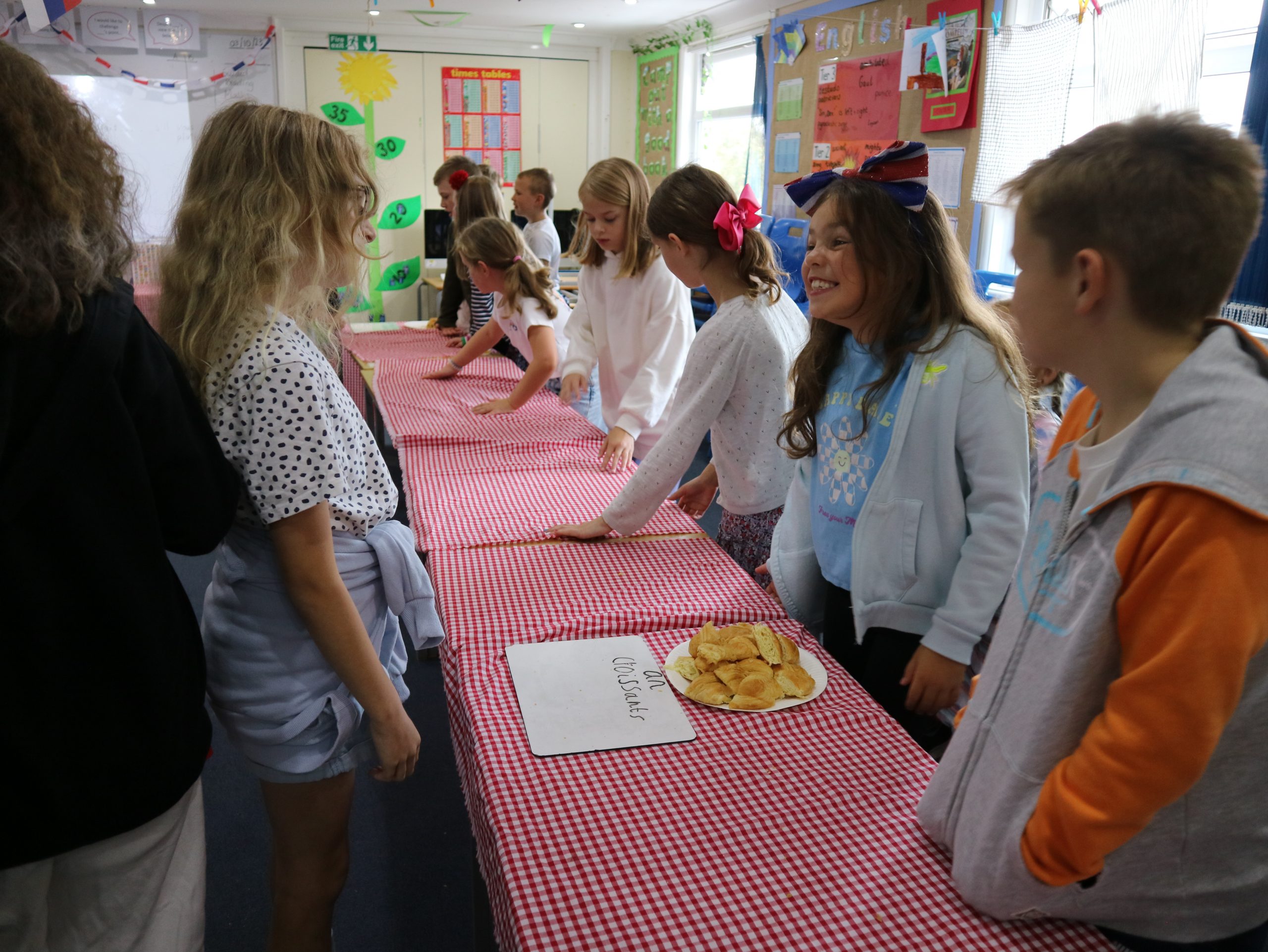
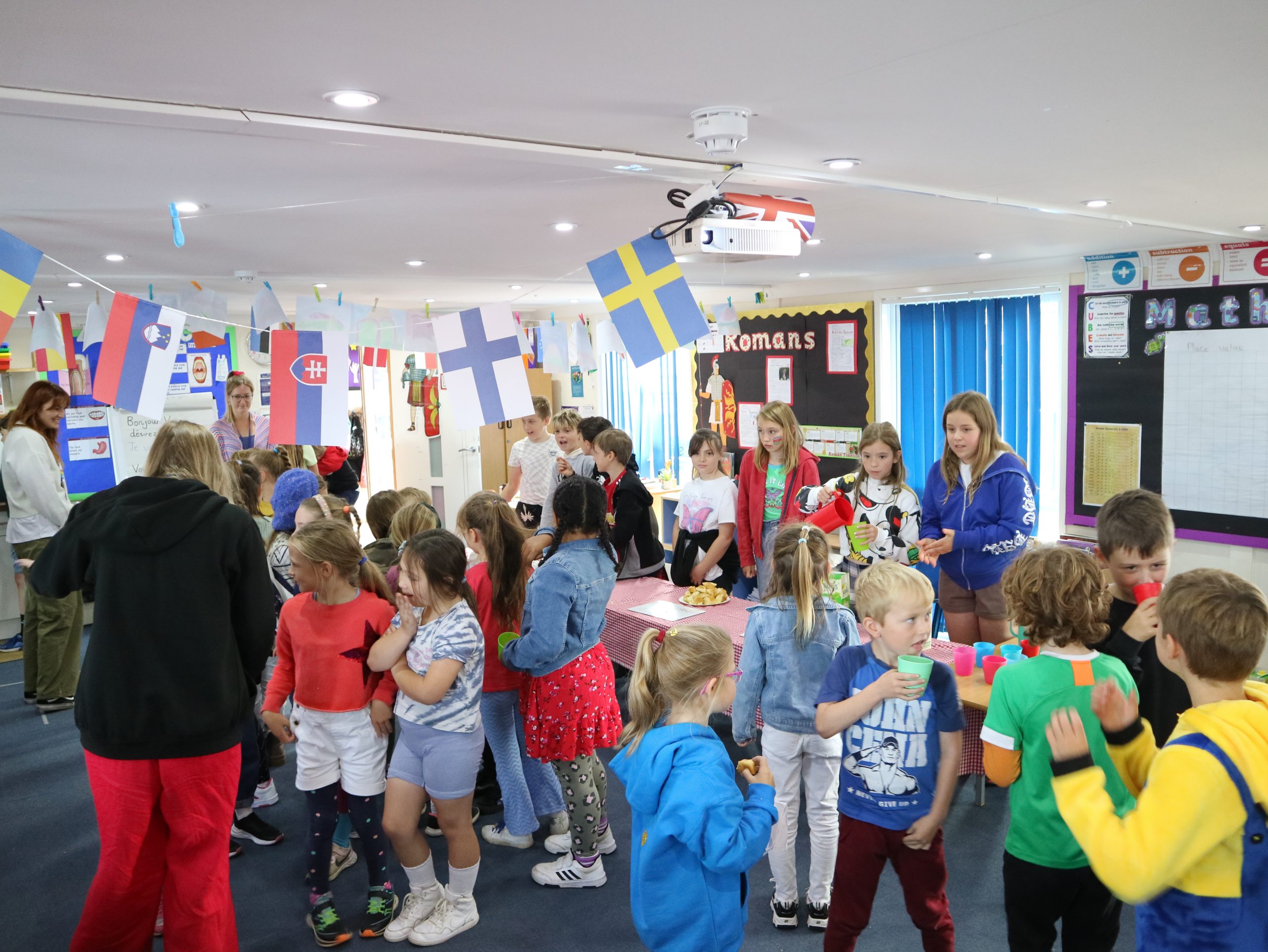
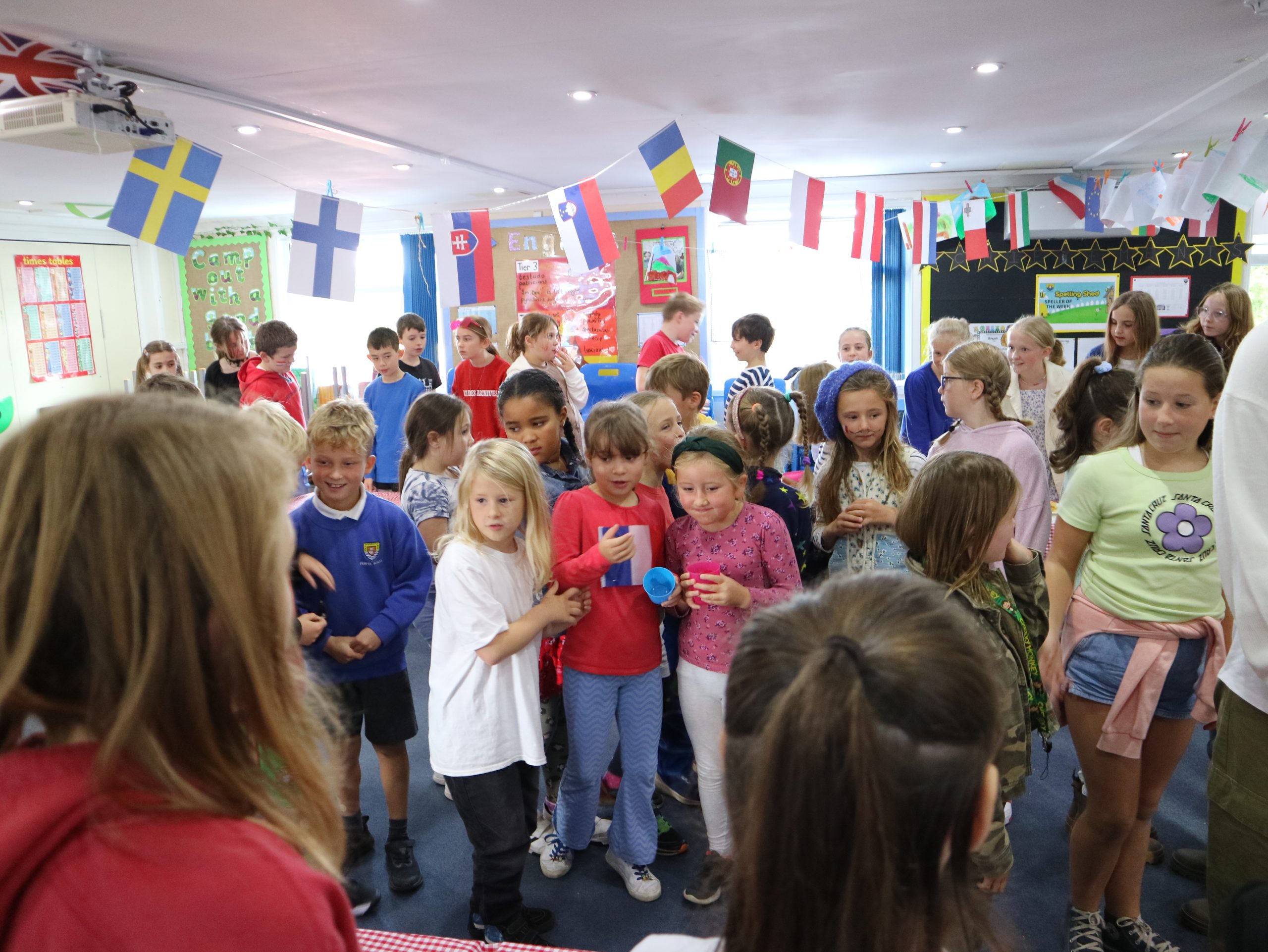
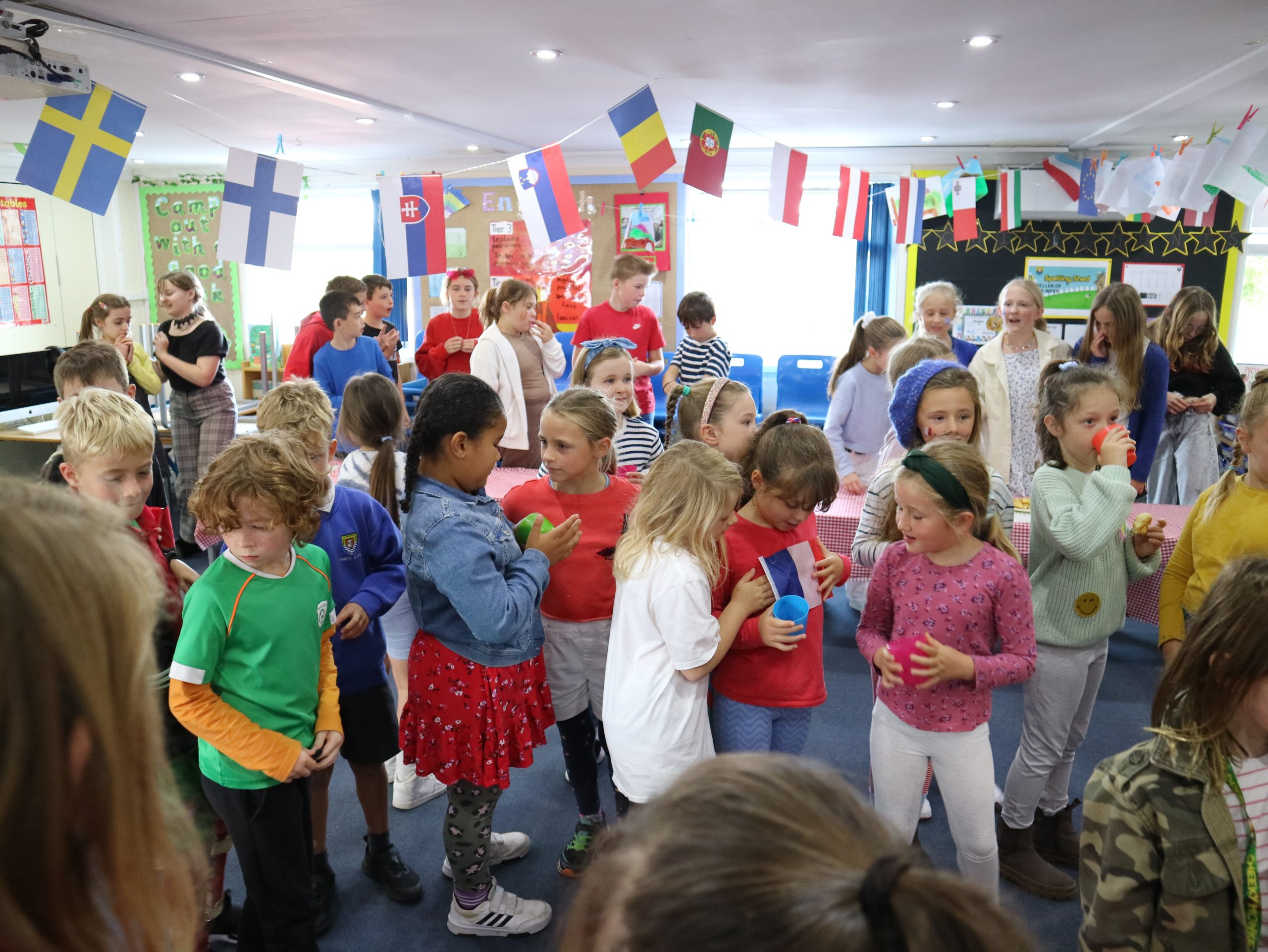
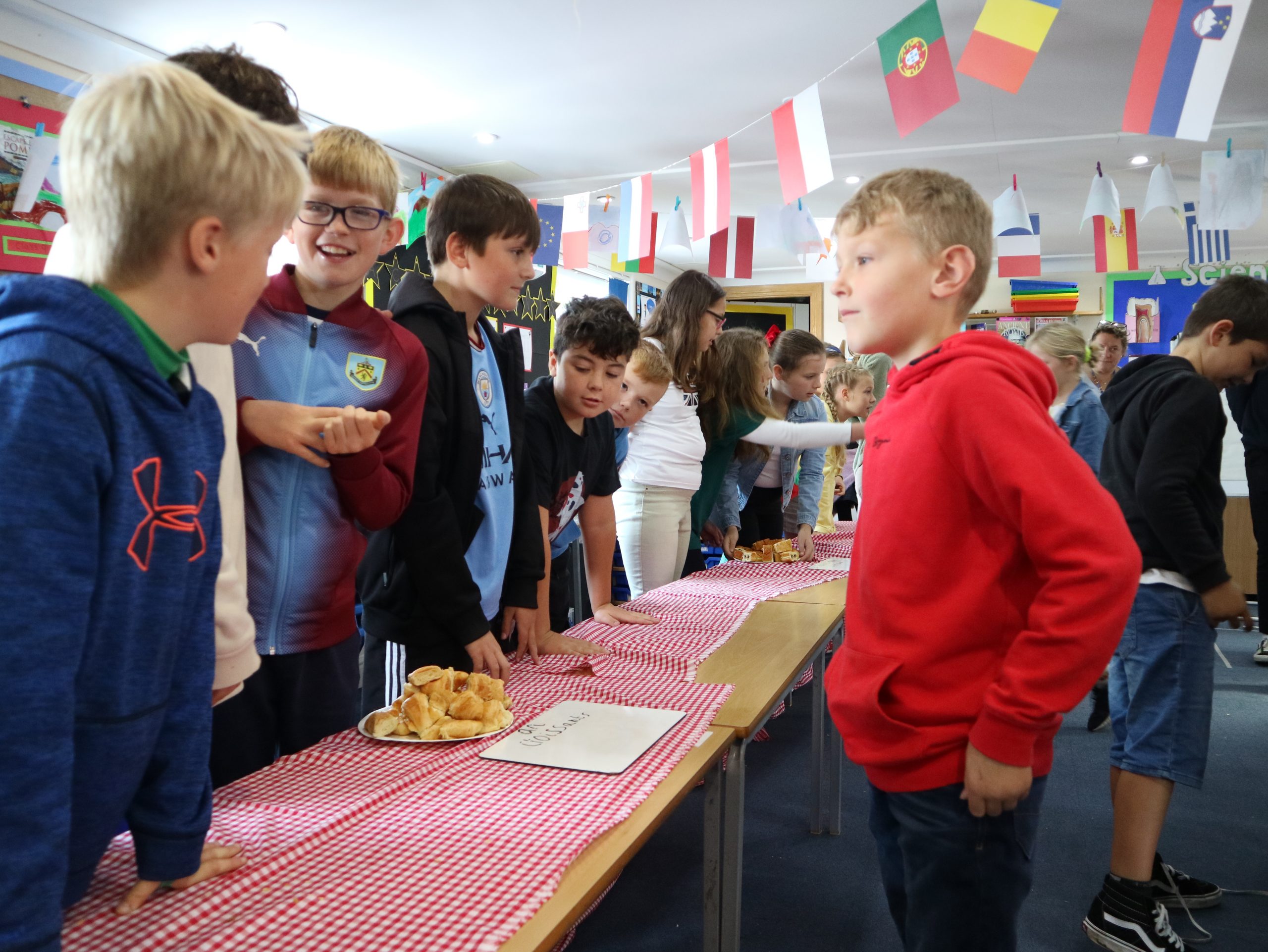
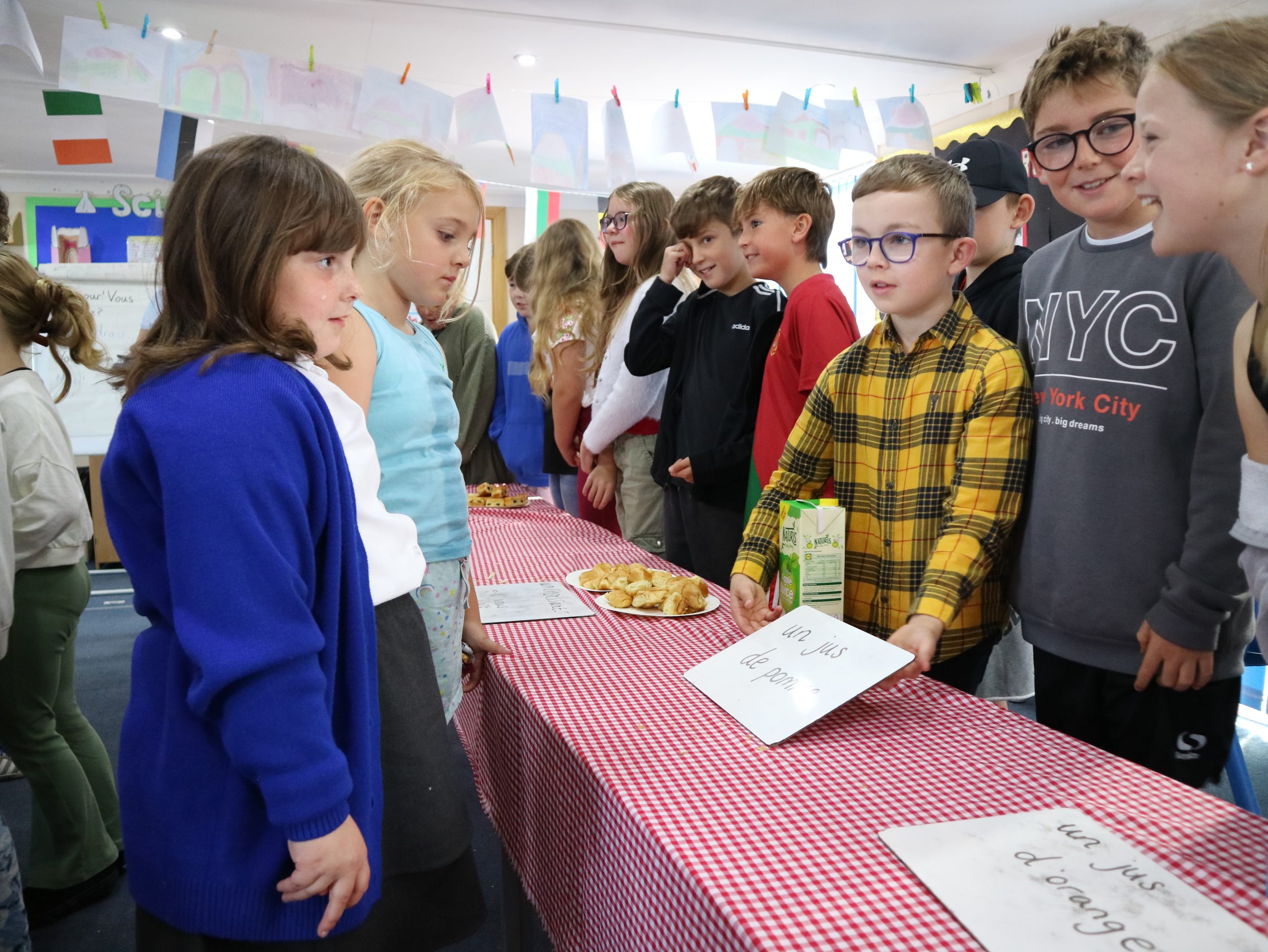
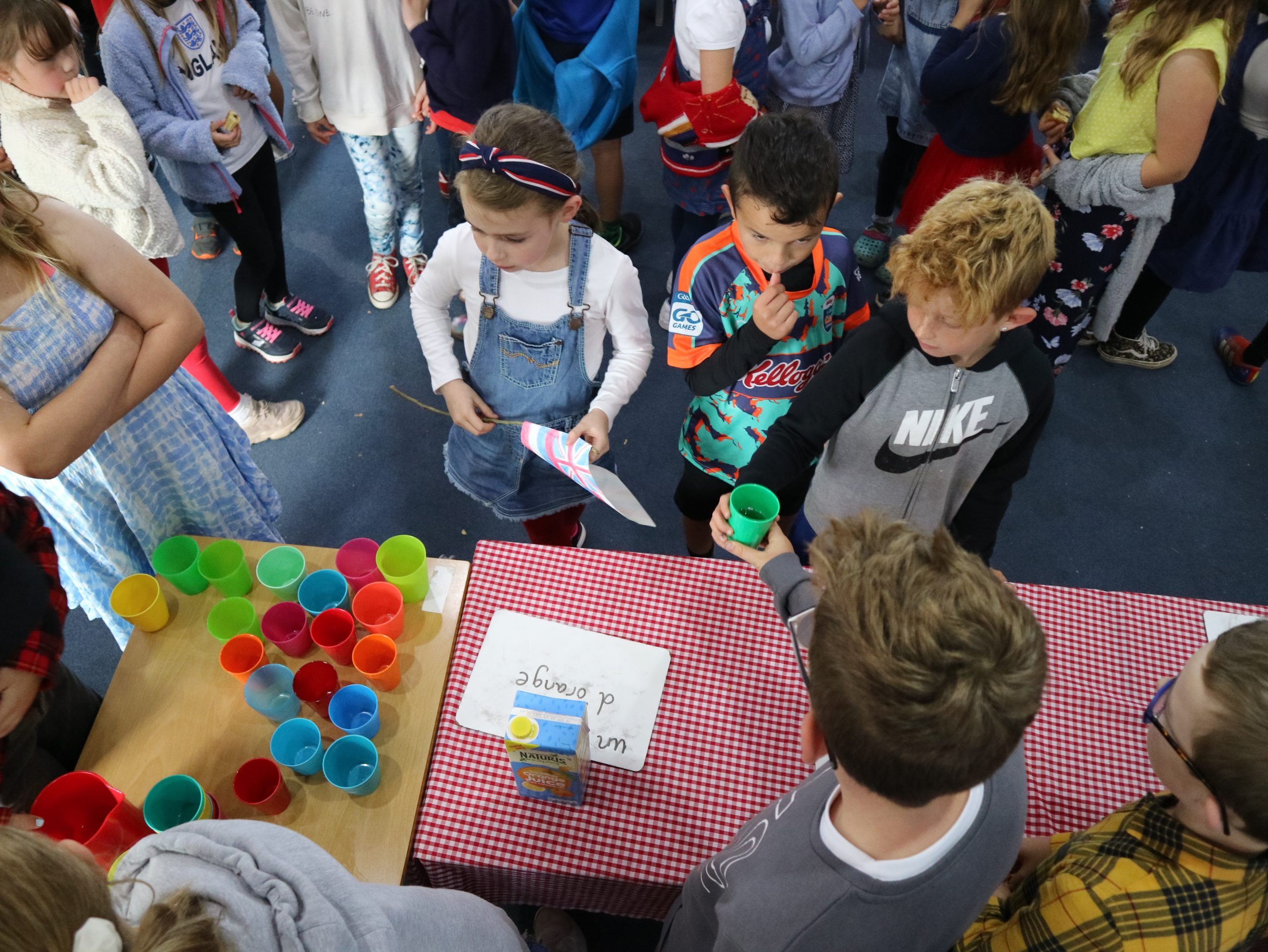
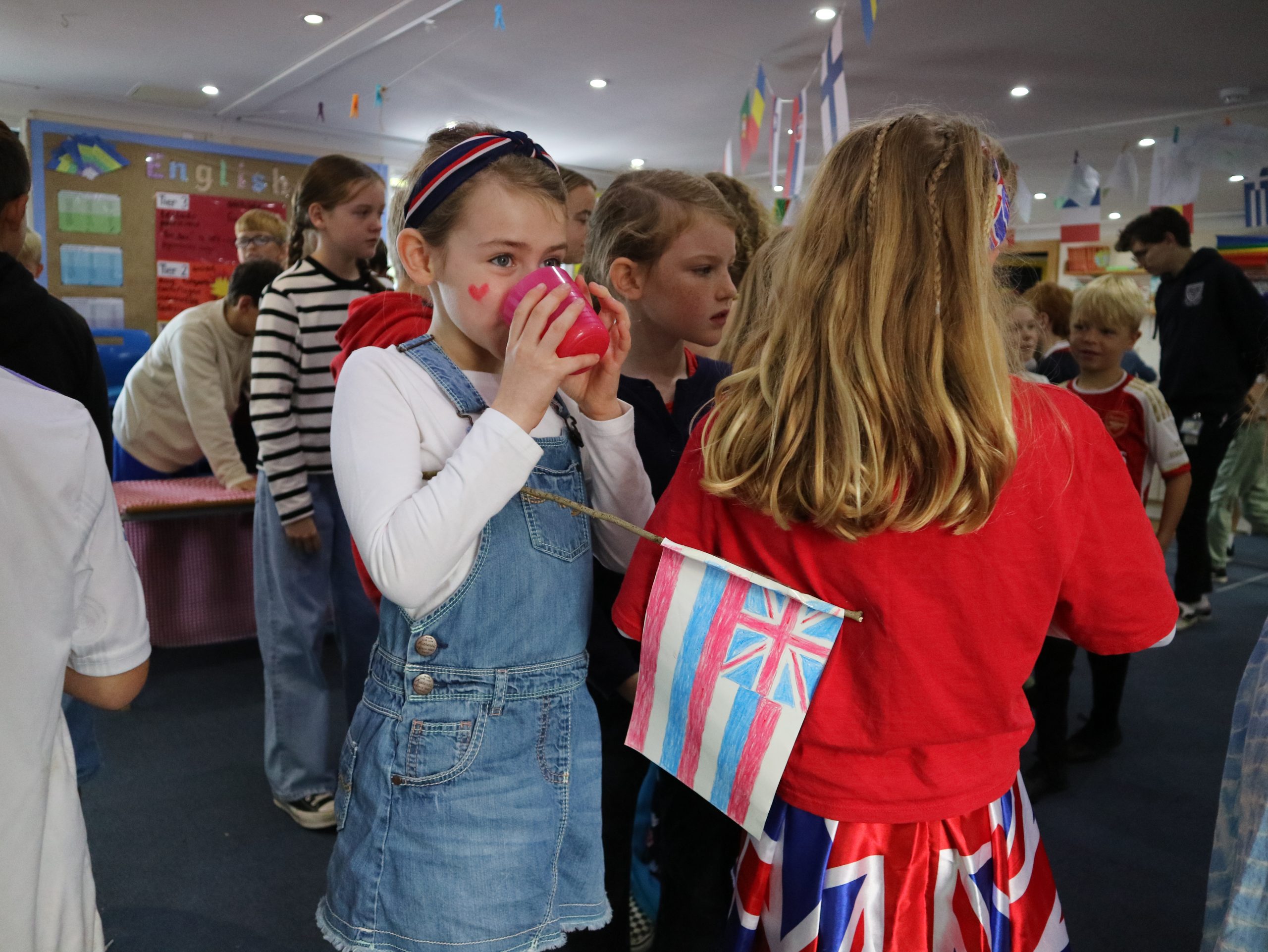
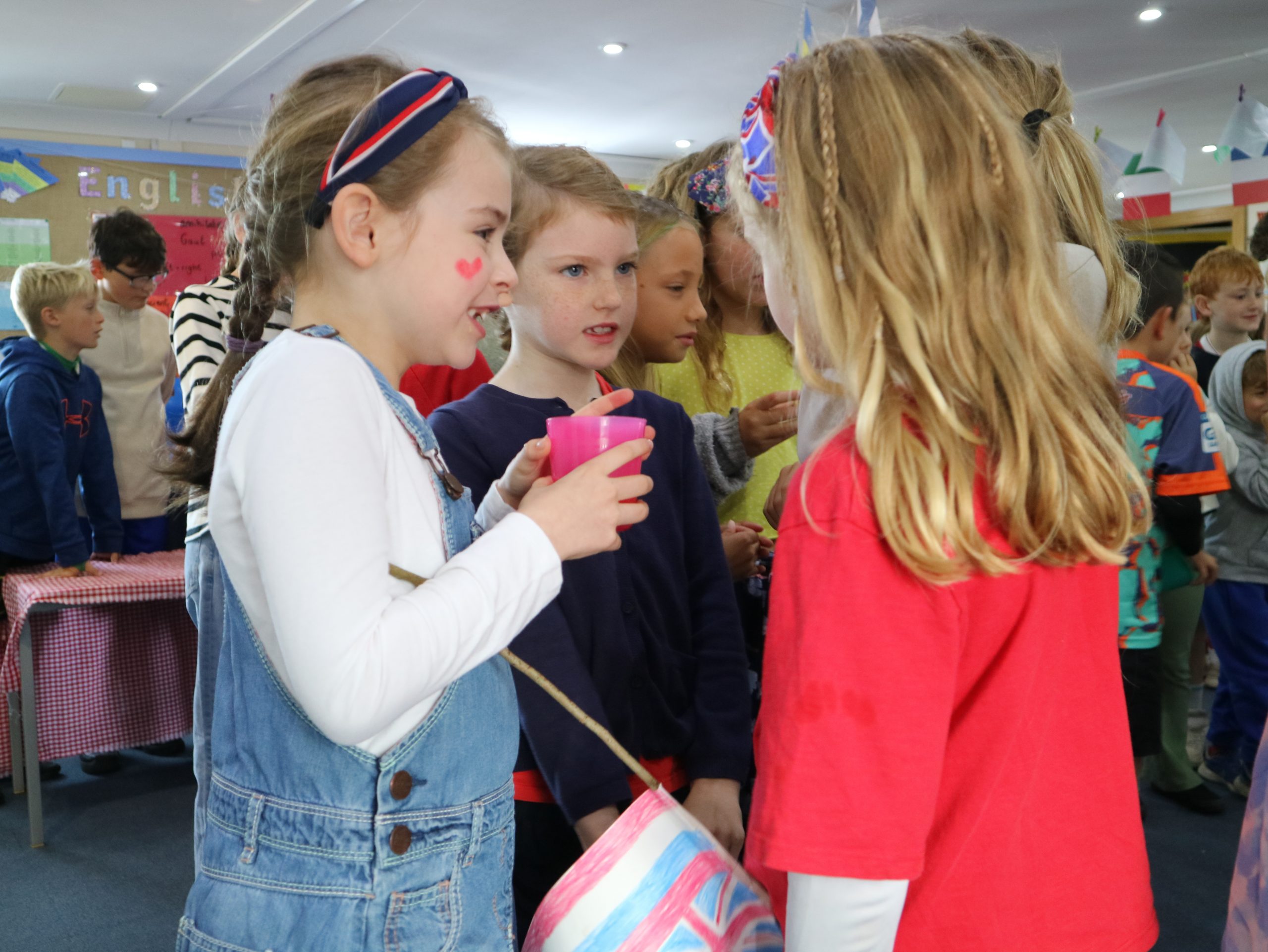
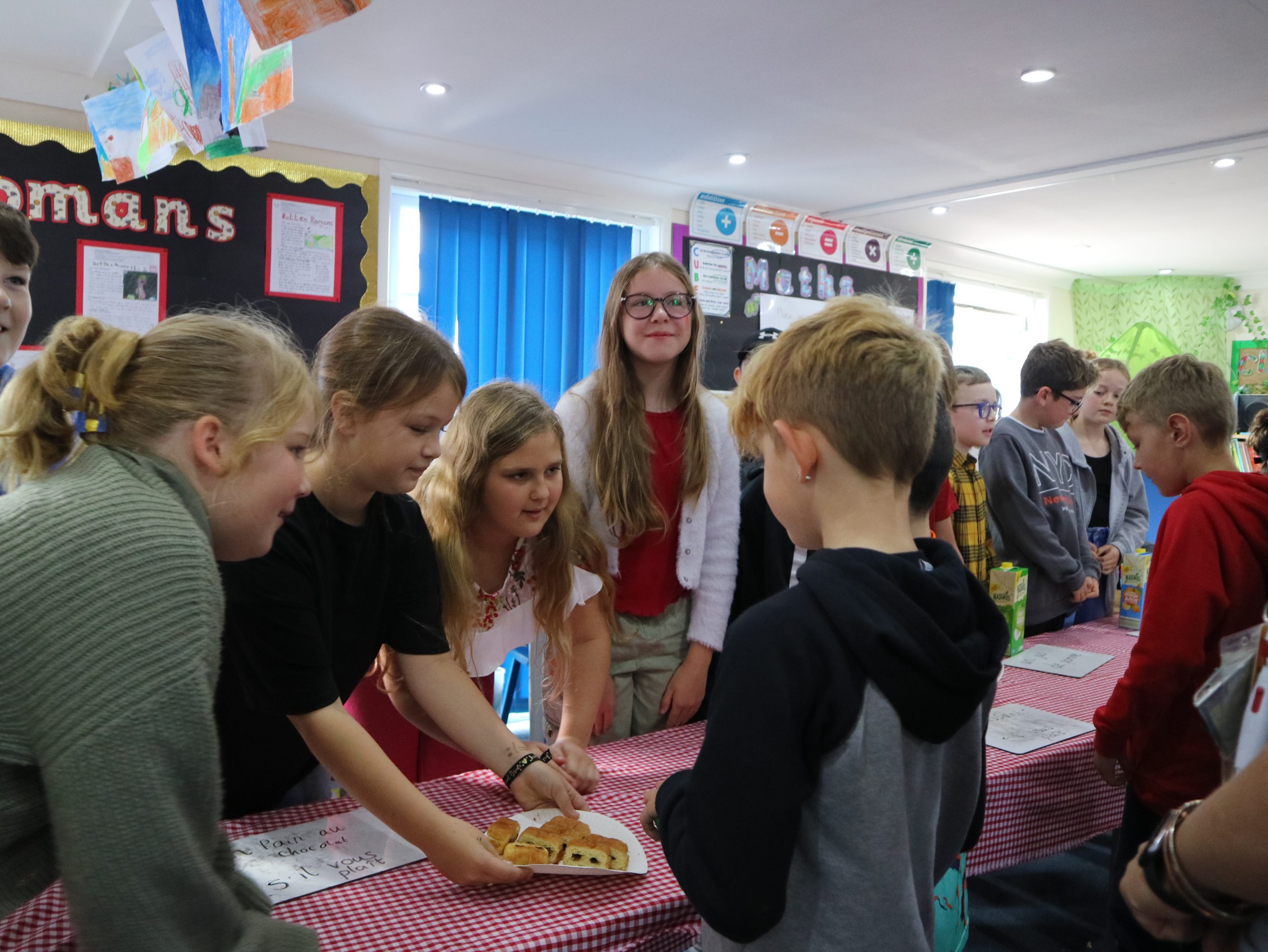
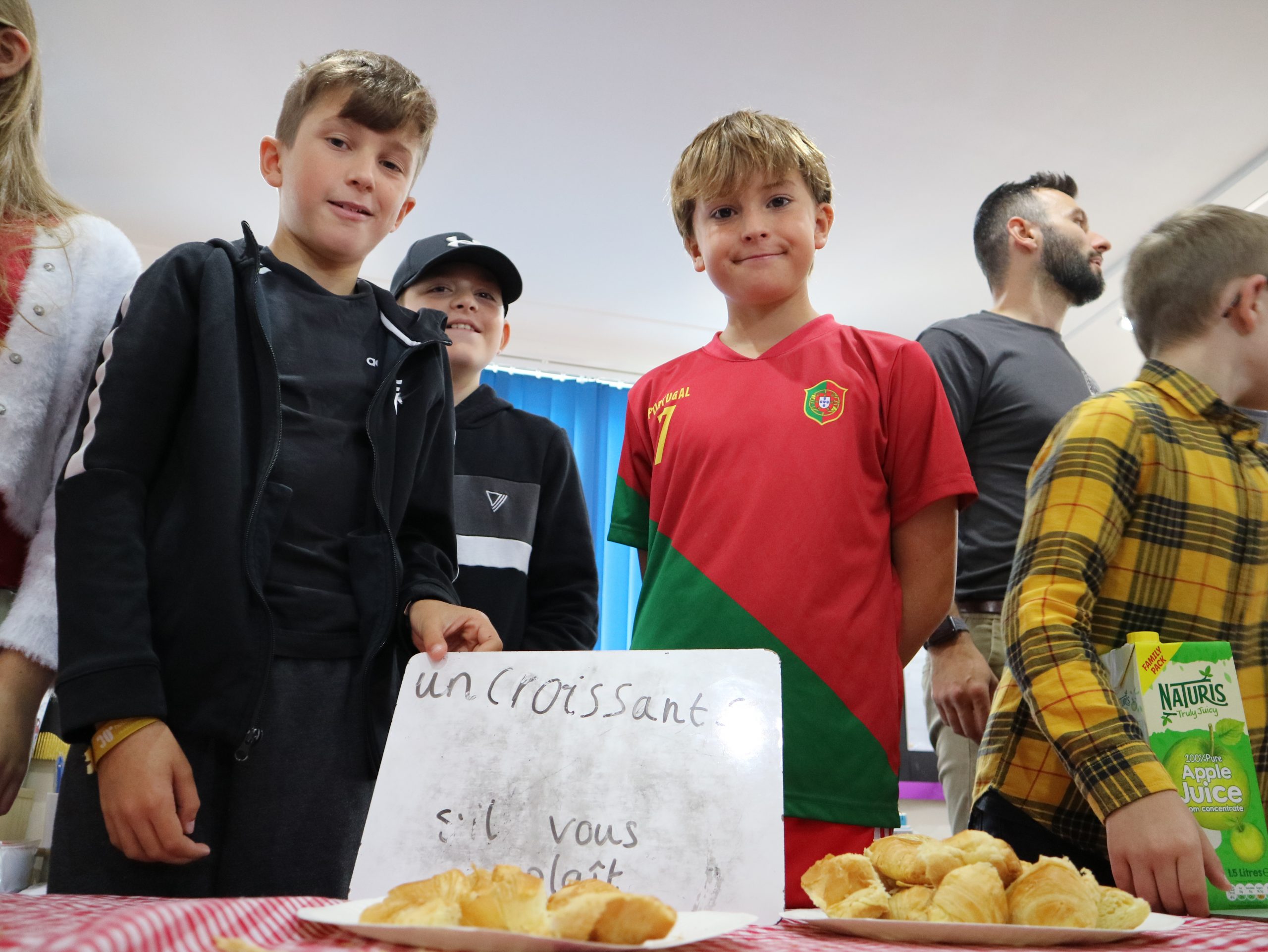
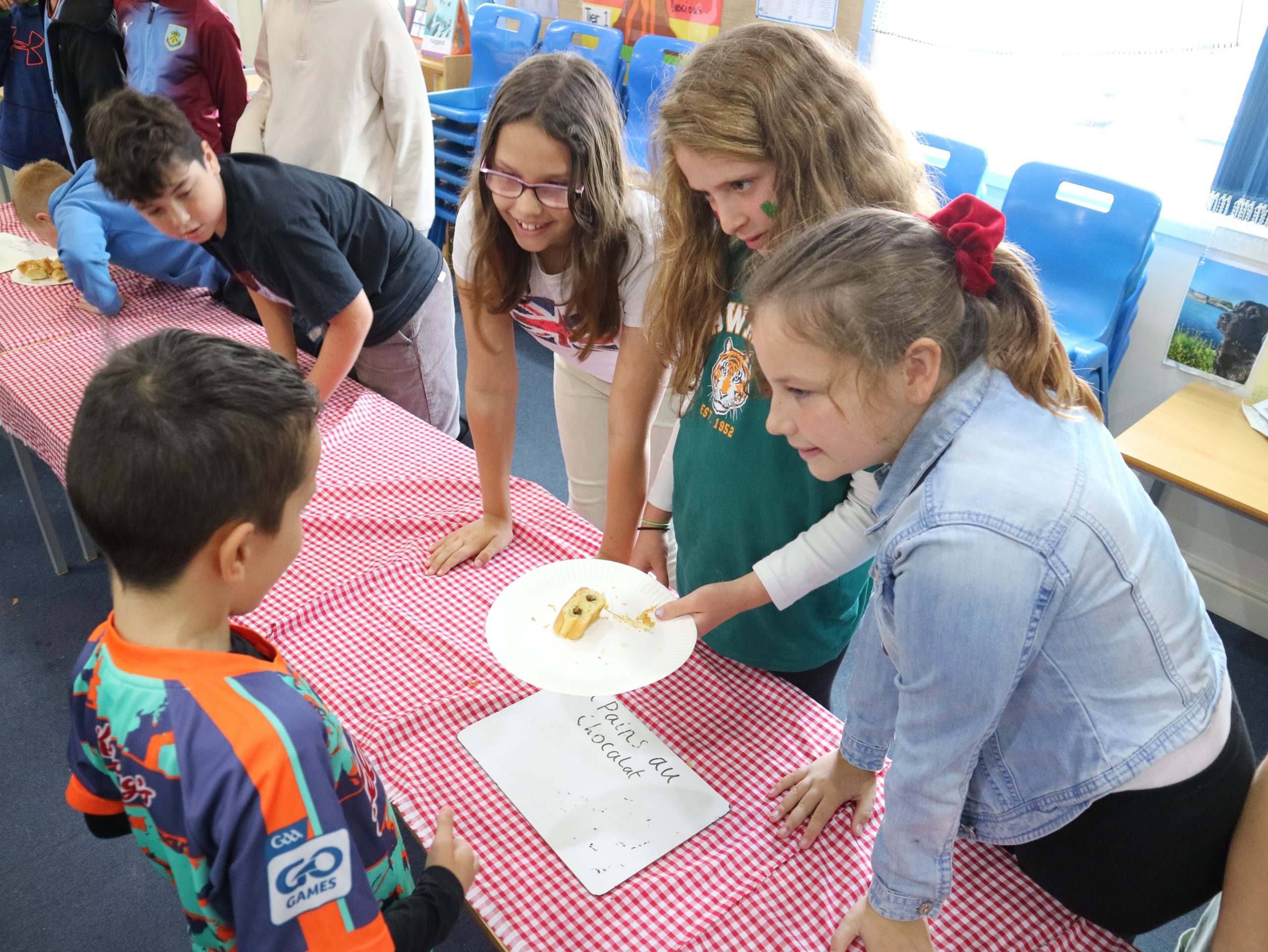
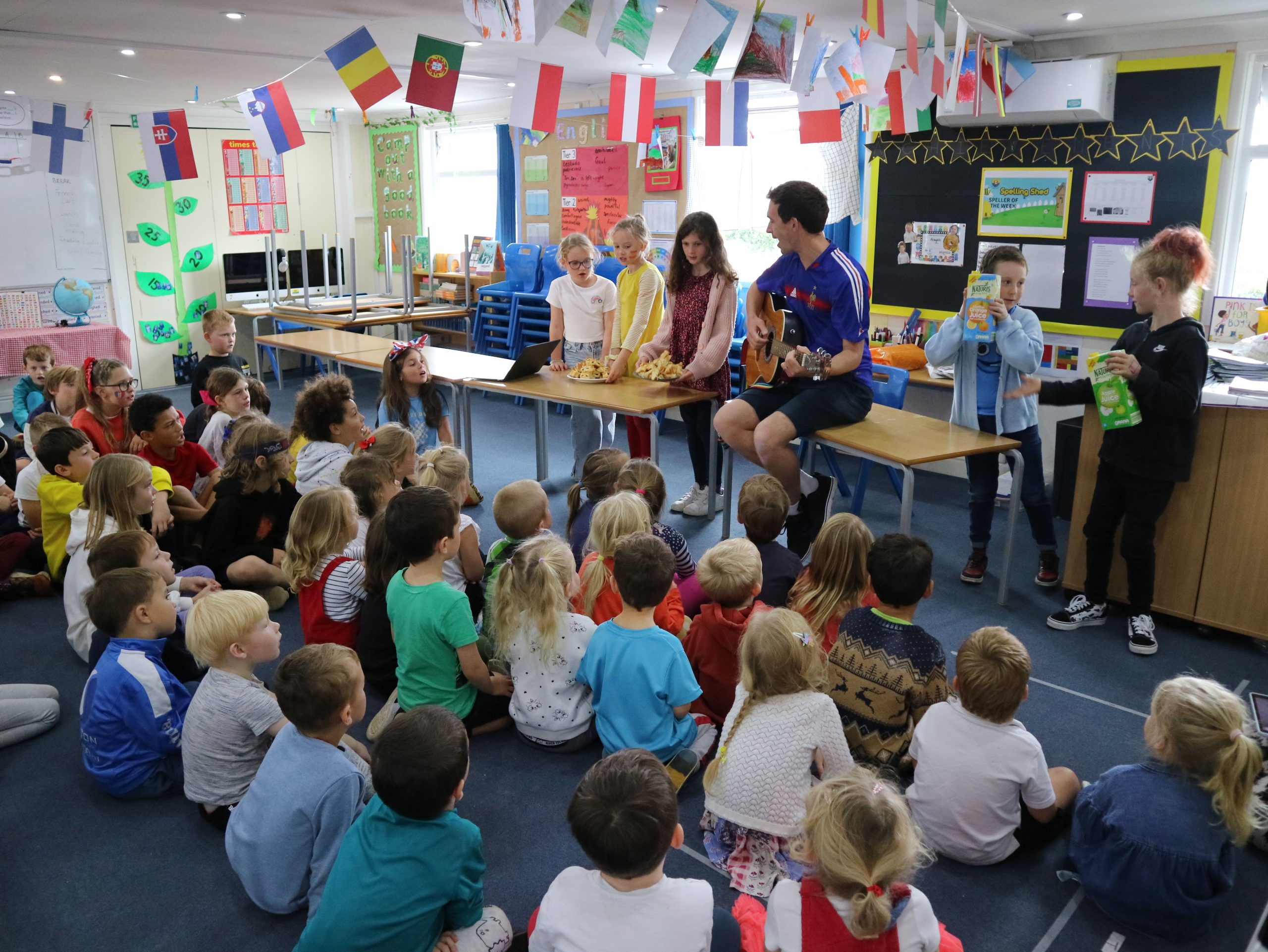

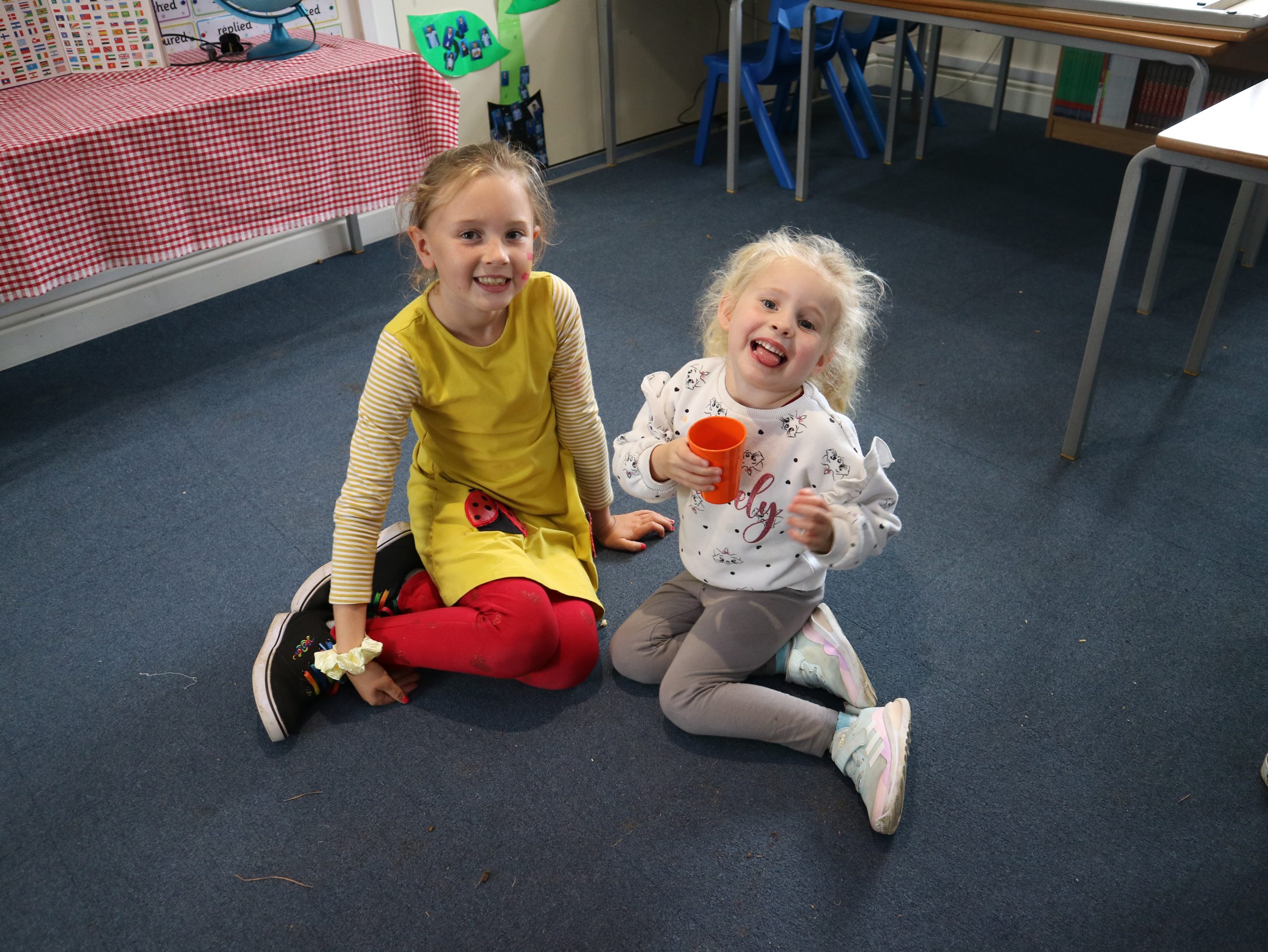
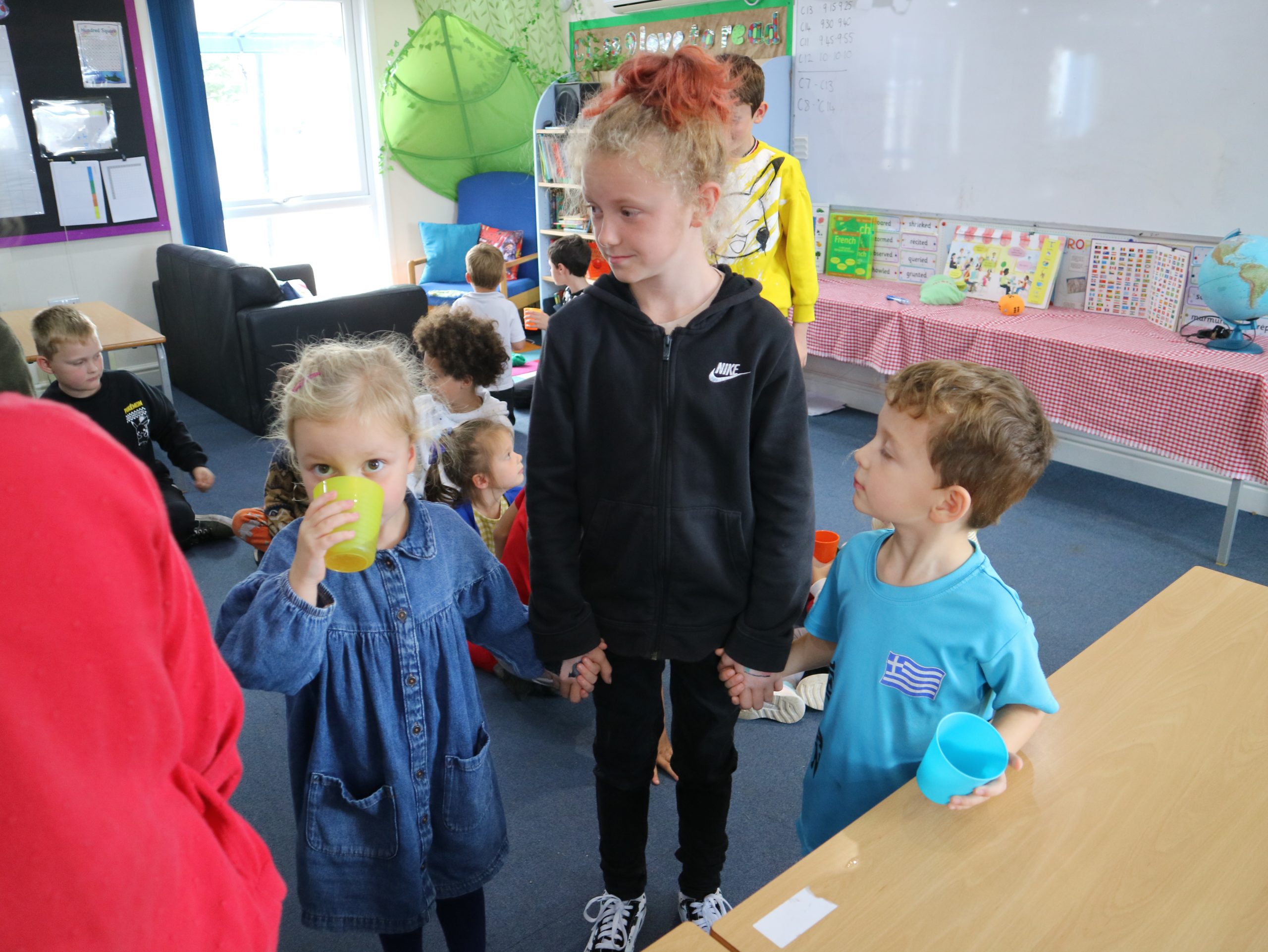
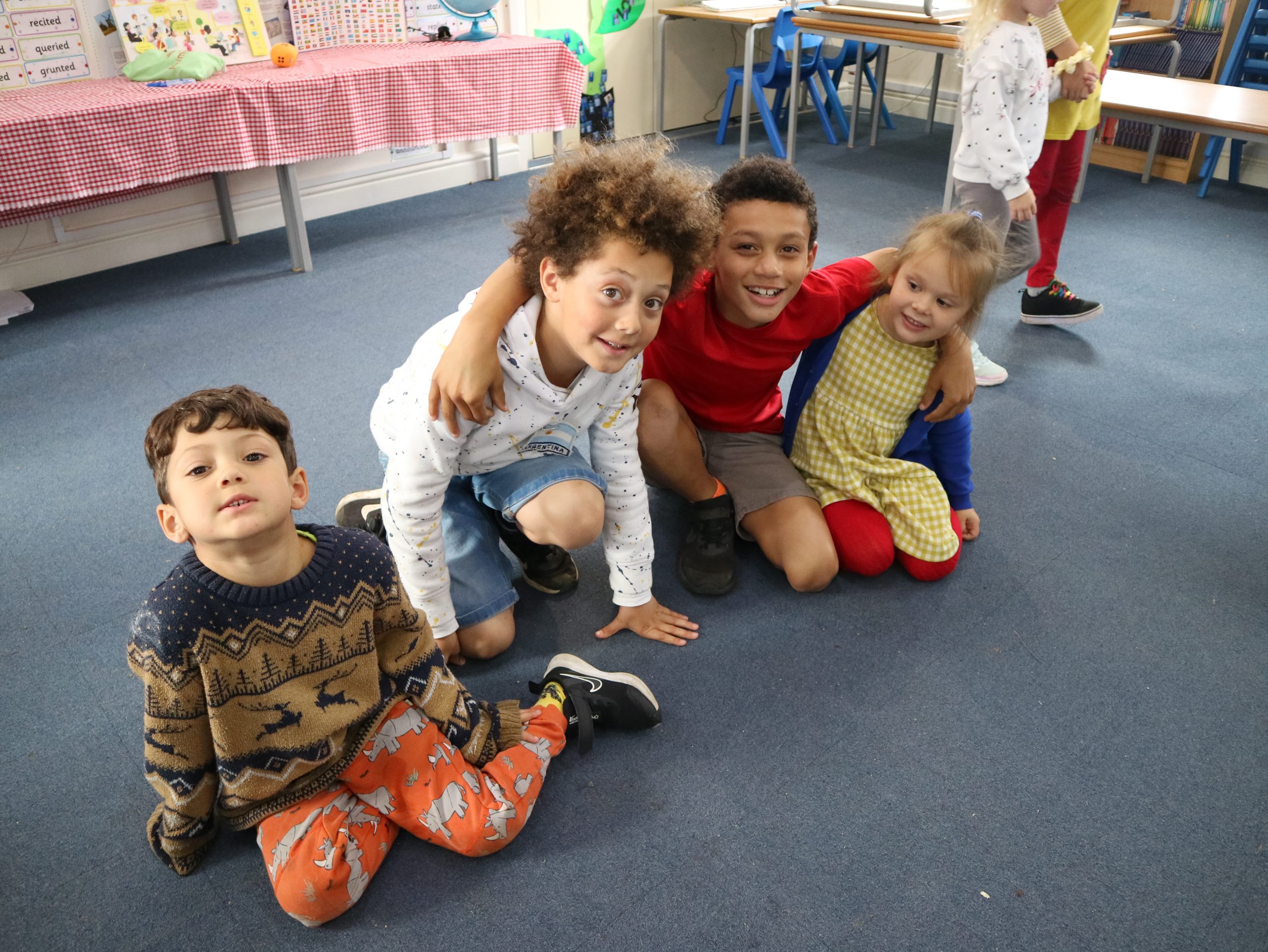
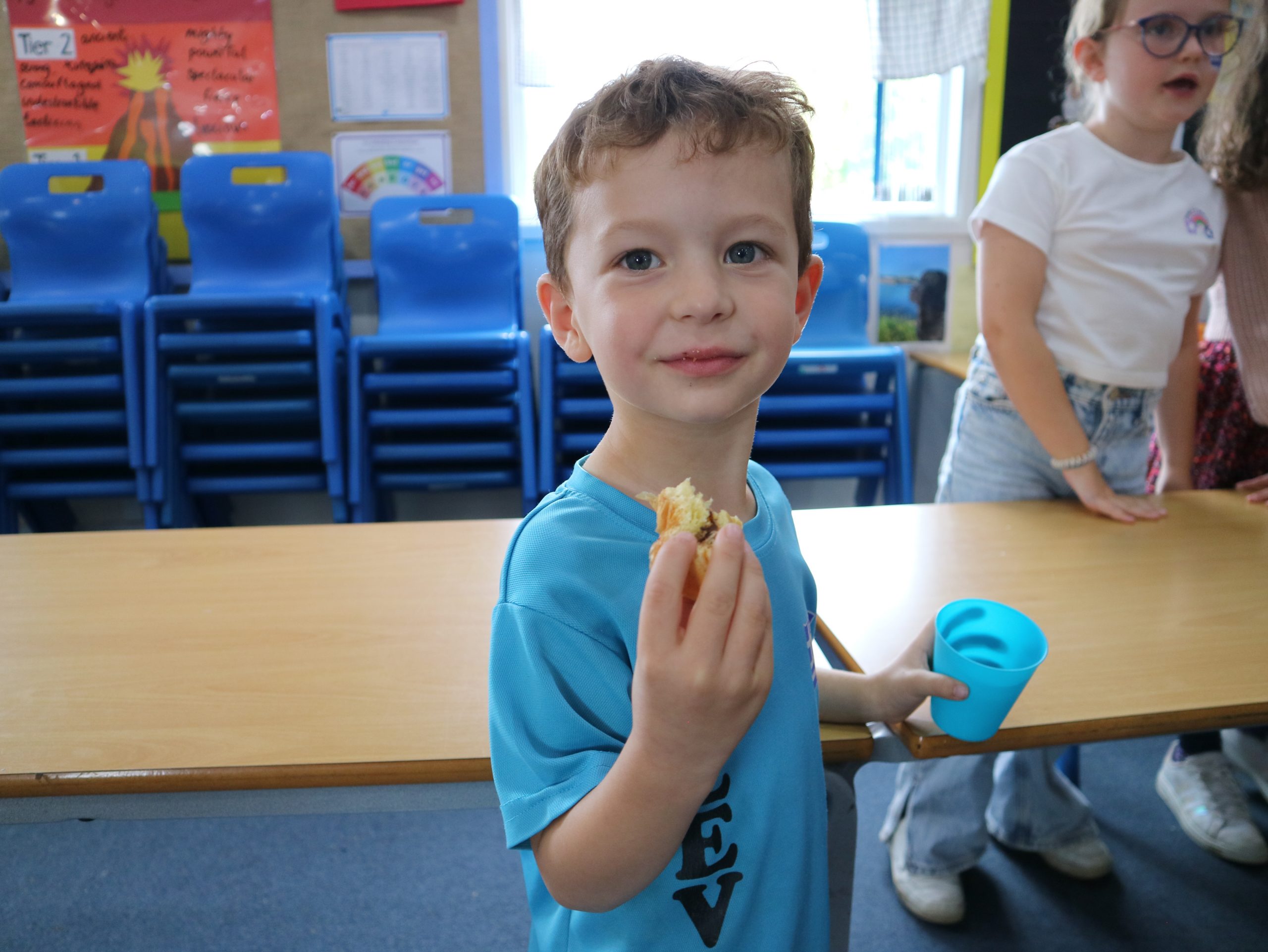
Healthy Choices on the Menu at Penol
Earlier this week, we were visited by educators from the Council’s Healthy Cornwall team who worked with all of ur KS2 pupils . The idea for this session was the empower our children to make their own healthy choices when choosing what to fuel their bodies with. The Healthy Snack Family Challenge is attached below.
The session included 3 different activities: the tasting of different healthy snacks including, beetroot, dried apricot, sugar snap peas and humus; what a balanced diet looks like and how it contains lots of different food groups in moderation; and finally, shattering the myth that healthy food have to be expensive. The children all tasted different foods, with many doing so for the first time.
The children learnt all about the ‘Eatwell Healthy Plate’ and discussed how different food groups serve different purposes and how each are individually important to the growth, development and maintaining of a healthy body and mind.Our Year 5 and 6 pupils also took a more in-depth look at the calorie content of different foods, both healthy and unhealthy and took a closer look at the monetary cost vs nutritional output of each food.
They were particularly shocked at the sugar content of some their favourite drinks! With one even commenting “that’s why were encouraged to drink water!”
All children in KS2 then were gifted a free water bottle to celebrate their participation in which was some information to share with parents and a healthy snack challenge, all of which is included below. It has been wonderful to see so may children making healthy choices with their snacks continuing to celebrate the learning they have undertaken in science, PE and PSHE around health and wellbeing.
Year 5 visited by The Beach Guardians
Yesterday our 2 Year 5 classes had some very special visitors. We were joined by the Beach Guardians. Beach Guardian is a community interest company that aim to ‘engage, educate and empower against plastic pollution. Based in Cornwall they perform regular beach cleans and conduct educational work shops and we were lucky to have them bring their workshop to Penpol School.
During the work shop the children had chance to sift through the sand and take a look at many of the plastics which had previously been collected from the beach. They also had chance to look at some of these micro-plastics under the microscope as well as design a poster to encourage people to do what’s right and take their litter home with them.
We also discussed the impact of physical geography as well as the human impact and discussed how currents can take plastic waster all over the globe. They shared with us a bottle that was produced and Malaysia which washed up at Perranporth.
The aim of the session was to motivate the pupils to continue ti spread the message of our topic teaching this term- improve health and well being of both people and planet.
If you’d like to find out more about their work or how you can get involved please follow this link
https://www.beachguardian.org/
Year 5 Residential at the Mount Batten Center
Last week the majority of Year 5 headed on the Train to Plymouth for a three day residential; not content with the one mode of transport we then headed across Plymouth Sound on a ferry. The Mount Batten Centre is a Water-sports centre based right on the water front. Here we spent the week orienteering, bell boating, giant SUPing, climbing and abseiling.
Rafting
The children set off in their white water rafts on to the calm waters of Plymouth Sound where they had to work together in teams to paddle and steer around the buoys to race each other in a friendly race. They then had the opportunity to jump in, a real challenge for some but one in which the children accepted.
Climbing
We had the opportunity to take advantage of the onsite climbing and bouldering wall. Again an activity that required strength, flexibility and teamwork as the children were responsible for ‘spotting’ and belaying their friends and class mates.
Bell Boating
The bell boating was quite leisurely. That was until we payed a game where you had to drop your paddle between the two boats and crawl to the back to catch it before we paddled off without it!
Abseiling
It was on the abseiling and ladder that many children felt uncomfortable but many a fear was conquered. The still images of the ladder do not show how violently it wobbles as you try to climb it! The sheer nature of the ladder meant that every run the children climbed was a huge step in conquering the fear of heights some possess. The abseiling was not only fun and exciting but provided the opportunity to look over over the sound to Barbican and beyond. The abseiling was the firm fan favourite amongst the children.
SUP
The giant stand up paddle boards should be renamed to ‘ the giant sit on paddle boards’ as standing and balancing with 7 to 8 other people was neigh on impossible but boy did the children give it go! The paddle boards again required a huge amount of team work as well are core strength.
Beach Clean
One evening we went for a wander and stumbled upon a small beach; here the children decided to perform a beach clean. This was particularly pleasing as in class we have been studying the topic of conservation and the dangers of plastic pollution. We found lots of different things which we disposed of safely as well as some shells and sea glass to bring home with us.
Orienteering
After the extensive work we have undertaken learning how to orienteer at school, this was a walk in/near the park. The children needed to use their map reading skills to find some clues. These clues were then work different amounts of ‘Mount Batten Money’ which the children exchanged for different materials to protect and safely bring an egg down to land from the balcony- here we had differing levels of success.
School residential are a wonderful way for the children to show a slightly different, more relaxed side to themselves. The provide a wonderful opportunity to spend a night or two away from family, some for the first time and try lots of different things they would maybe never have done before. Residentials are brilliant and this one was no different.
Year 5 Find Their Way Around Orienteering
Over recent weeks Year 5 have been learning how to orienteer. Some may say a dying skill with the maps we now have readily available on smart phones and watches but a valuable one none the less. We have been ;earning how to read a compass, grid references and also, most importantly, a map and its symbols.
Through PE we have had the opportunity to practice these geographic skills by racing around our school site to find the permanent control points. The children have loved the element of competition with their peers as well as the freedom to explore the school site.
The culmination of our block of orienteering was a day in the woods. We headed to Tehidy Country Park with our maps in hand and set to work on finding the control points set out around the 250 acre site (we didn’t cover it all though) The children had great fun zipping and zooming around in the hunt of the control points in small groups with their adults struggling to keep pace (no names mentioned!) hence the lack of orienteering photos.
After a well deserved lunch the children set to work building dens; here they had the opportunity to put their first school skills learnt back at Penpol into action with a plethora of different branches and trees to choose from.
In addition to den building we also out the children’s trust and communication skills to the test with a very carefully constructed ‘blind trail’. This consists of a partner leading their blindfolded partner through a boggy wooded section of Tehidy with only a guideline and their voice. Without clear instruction there was a risk of bumped heads on overhanging branches; soggy bottoms from the muddy sections and wet feet from the river crossing.














